SAINT EMILION
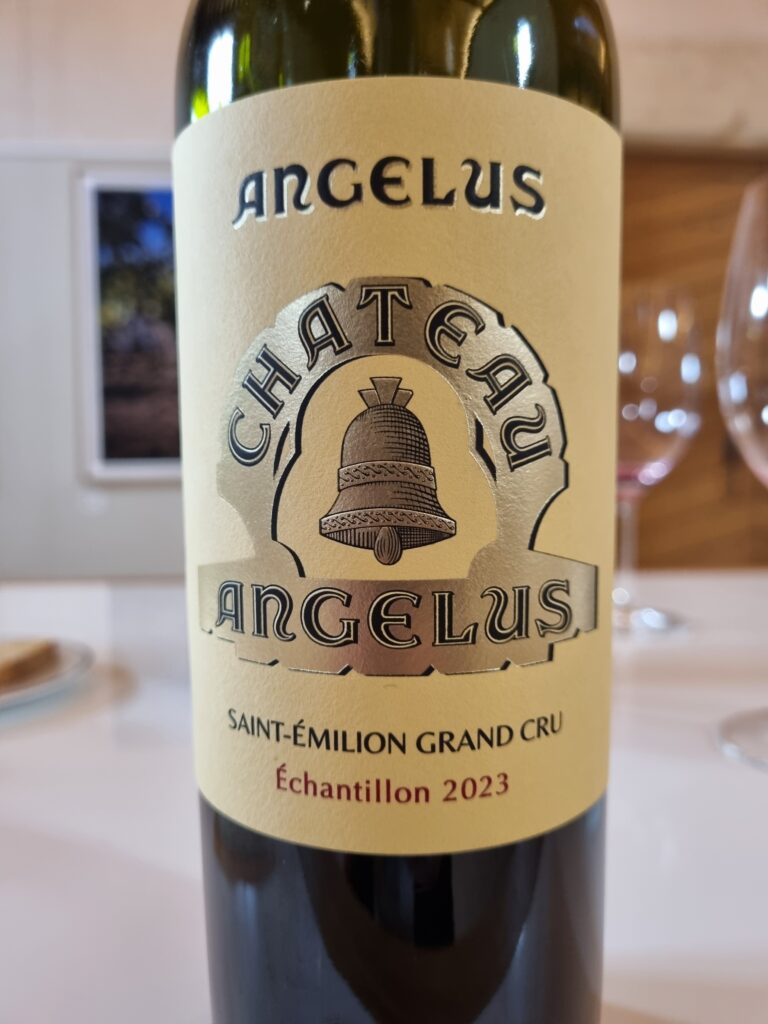
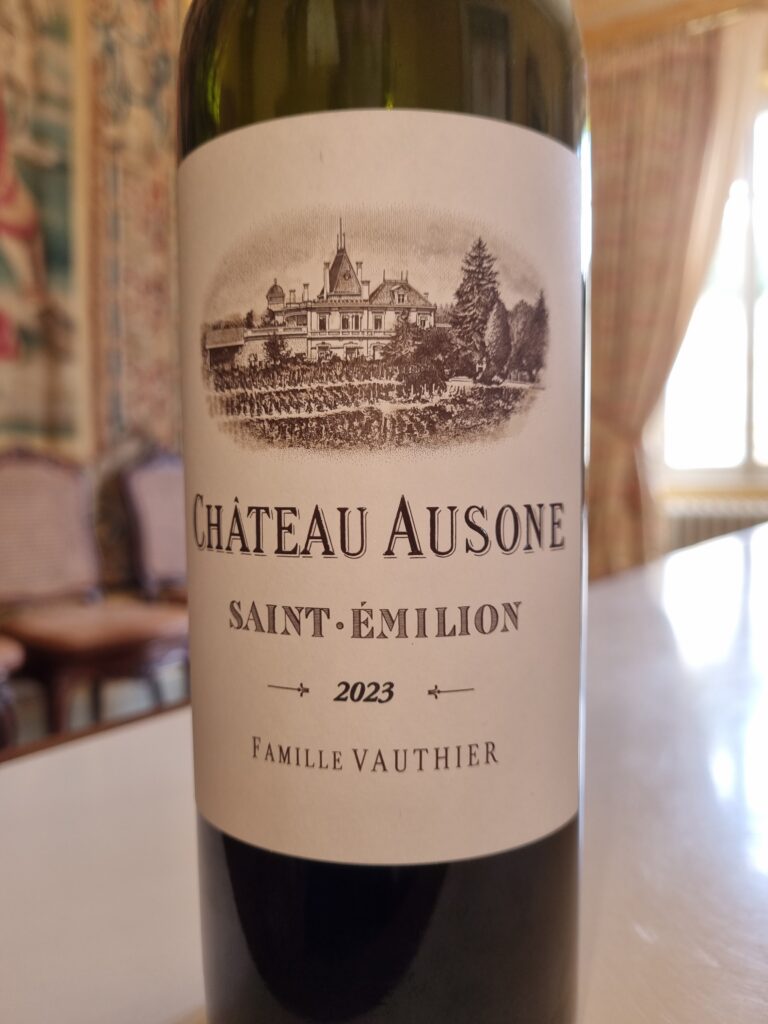
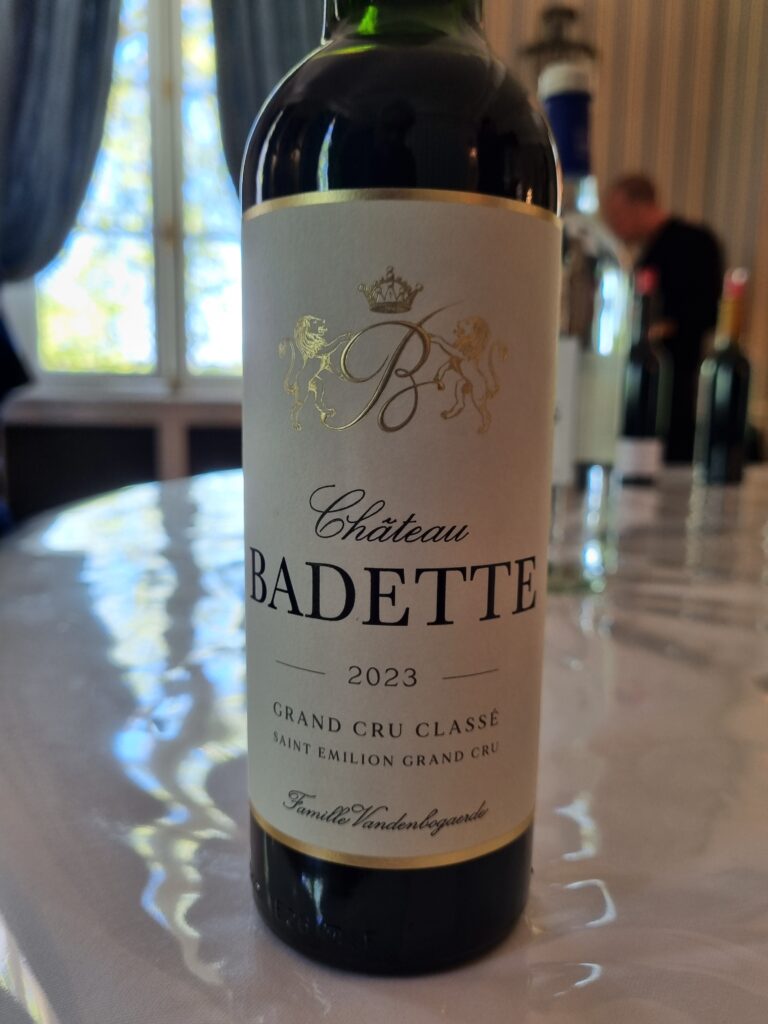
Angélus***1/2 – ****
N: Cellar aromas to accompany rich, deep, pure fruit along with some beeswax.
P: Big, but pure and smooth. Very well-made with finely-textured tannin and a certain hardness at this stage due to oak. I generally don’t mention second wines in my vintage appraisals to avoid information overkill, but I will say that 2023 Carillon d’Angélus showed remarkably well in keeping with this estate’s general toning down of oak influence and extraction.
Ausone****
N: Deep, dark, and mysterious. Restrained. “Old library” aromas and other subtle notes waiting to emerge.
P: Round, but with very fine underlying structure. Seems like nothing so much as a first-rate Pomerol before the trademark limestone minerality kicks in seamlessly. Superb tannic texture on the long spread-out finish. Cool super-long aftertaste. A more feminine style of Ausone this year.
Badette***
N: Sweet dark fruit.
P: Dense, concentrated, and deep. Good backbone and acidity with velvety tannin that wins out over a certain rusticity. Generous and will partner well with strongly-flavored dishes.
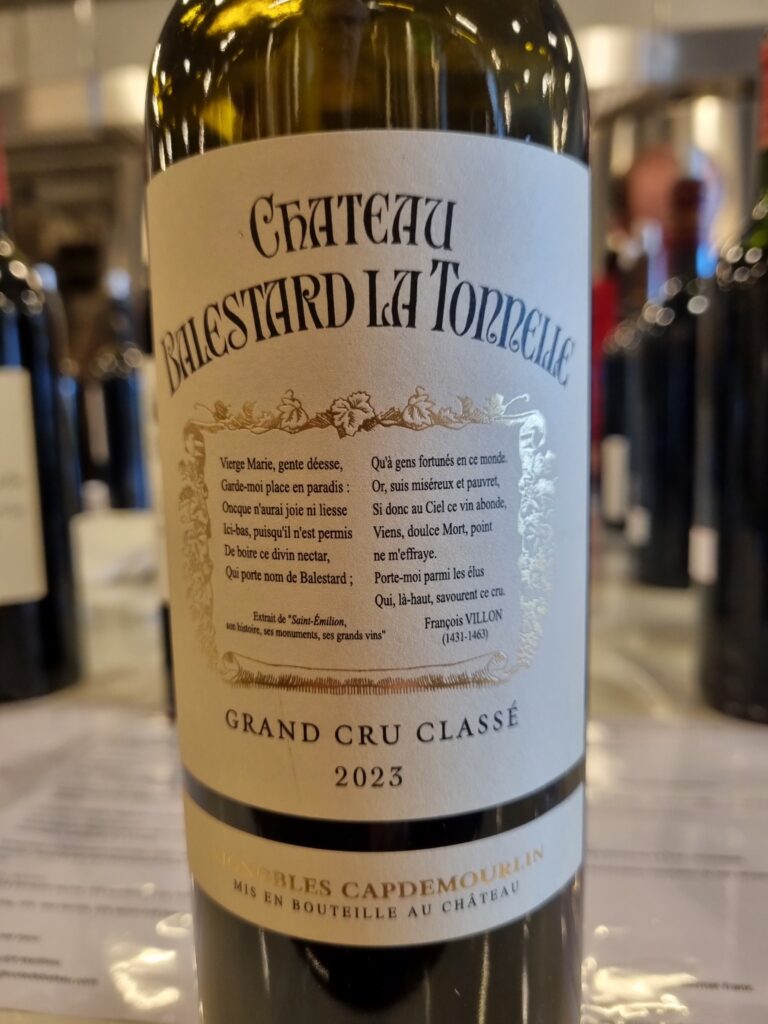
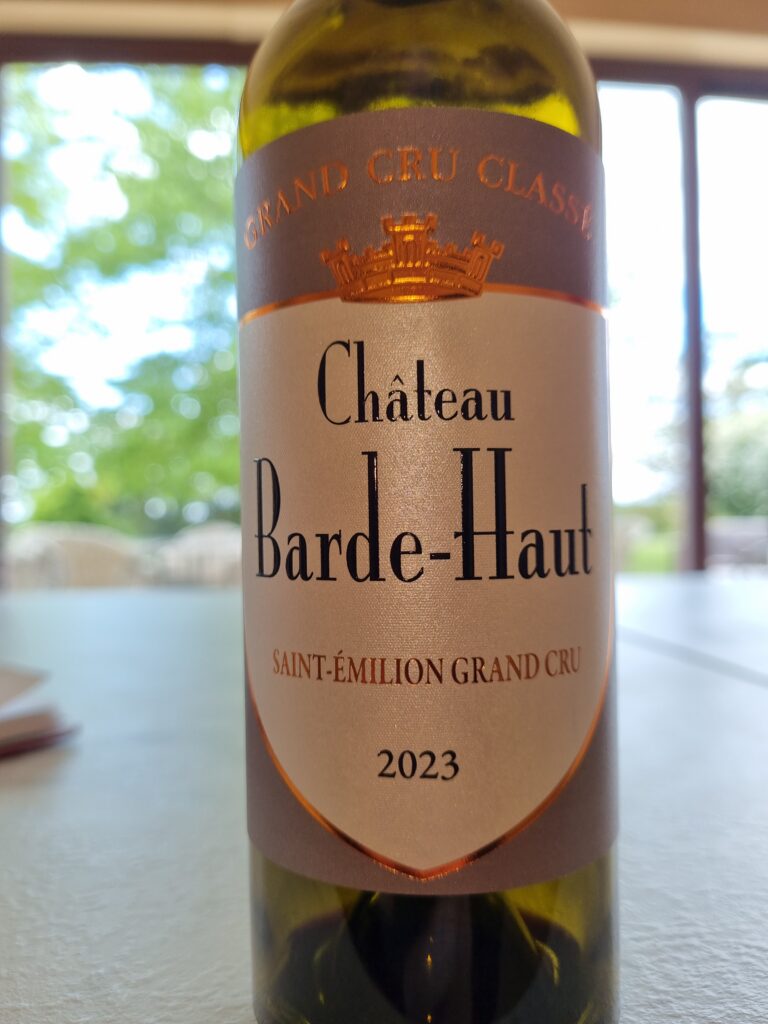
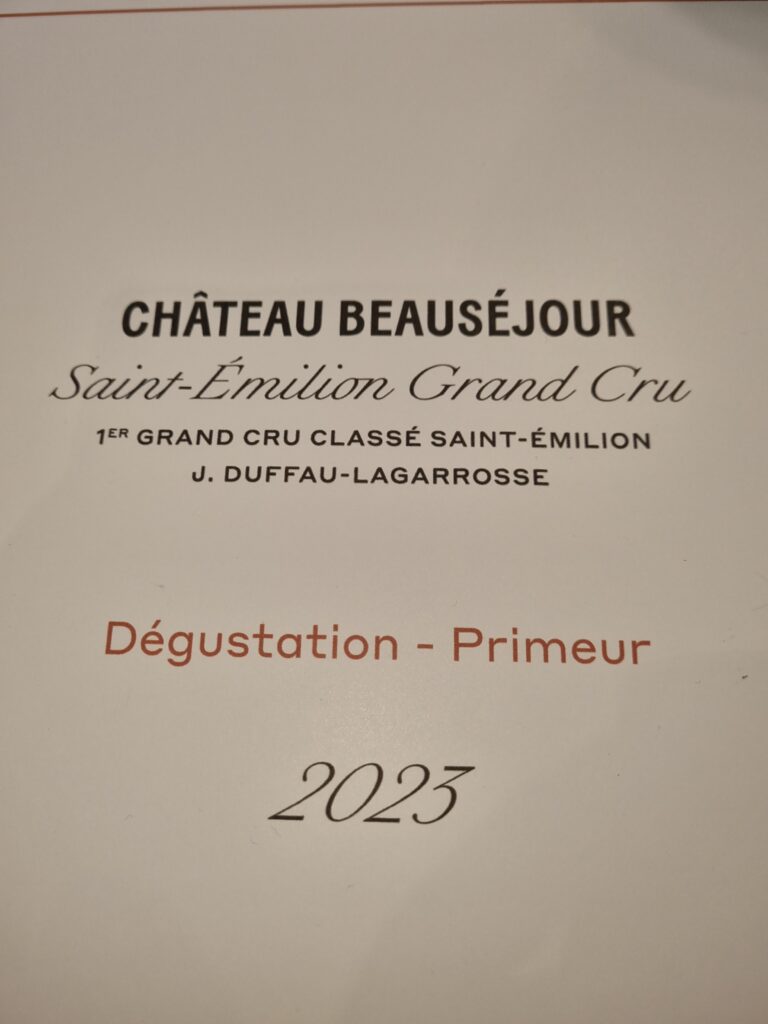
Balestard la Tonnelle***
N: Polished black fruit (cassis) jelly aromas.
P: Very rich and round, but nevertheless balanced and with an aftertaste consistent with the rest of the flavor. Strawberry. Not quite the length I’d have hoped for, but this seems a very up-and-coming cru classé even if not at the very top.
Barde Haut*** – ***1/2
N: Bit dumb at this time, but with some soft plum and licorice nuances.
P: More expressive on the palate. Luscious, with the richness overlaying the minerality on the aftertaste. Lovely balance and great potential. Candied red fruit finish. Touch dry.
Beauséjour****
N: Candied black fruit, open, generous, and promising.
P: Has weight and gravitas. Lip-smackingly good. Assertive, yet refined. Bit angular and uncompromising with a very long aftertaste. Classic Saint Emilion. Will age very well.
Since this estate has changed hands, it prefers not to go by the former name, Beauséjour Duffau-Lagarrosse, but to be called simply “Beauséjour”. The lack of a hypen between “Beau” and “Séjour” is believed to be sufficient to avoid confusion with neighbour Beau-Séjour Bécot.
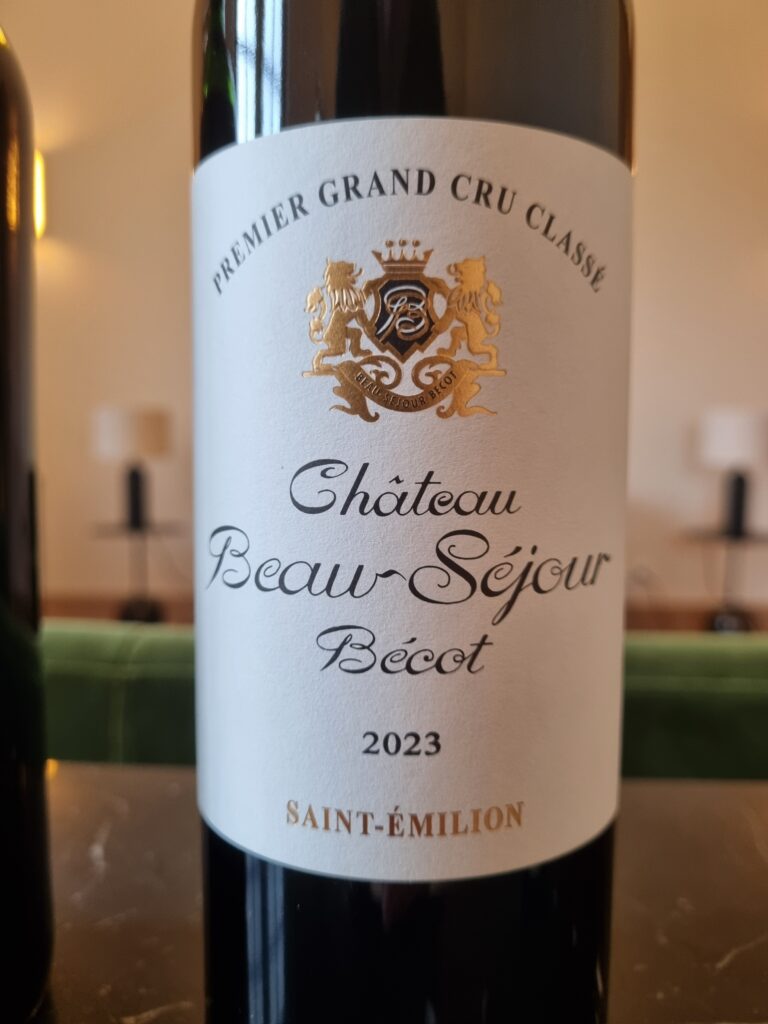
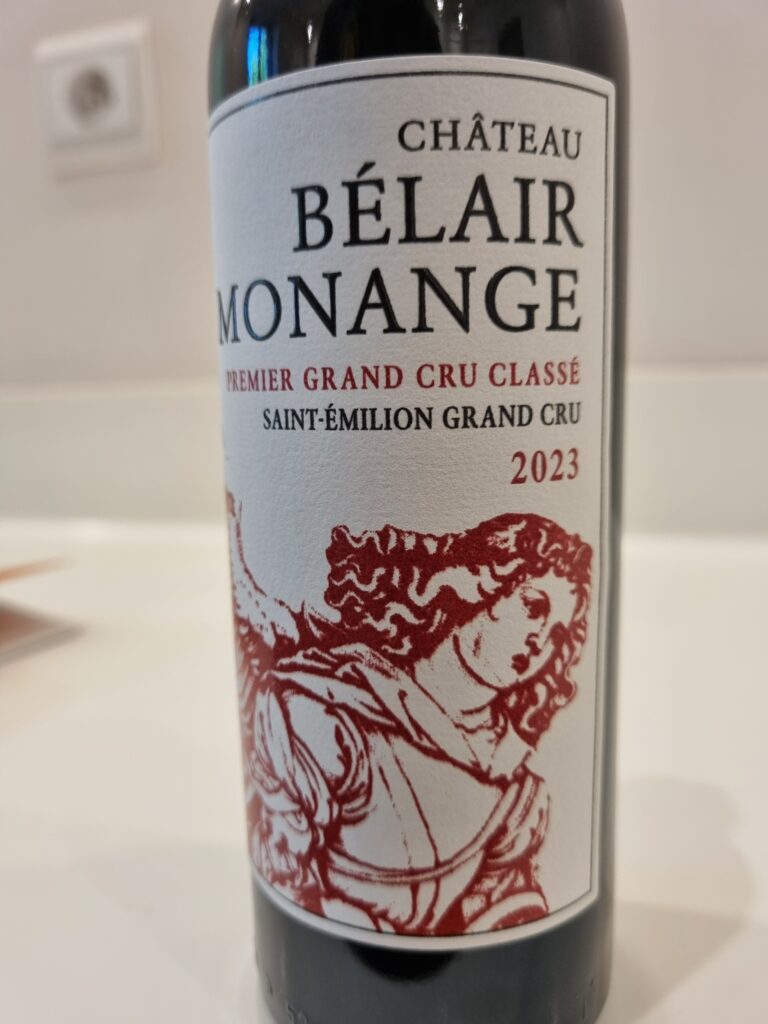
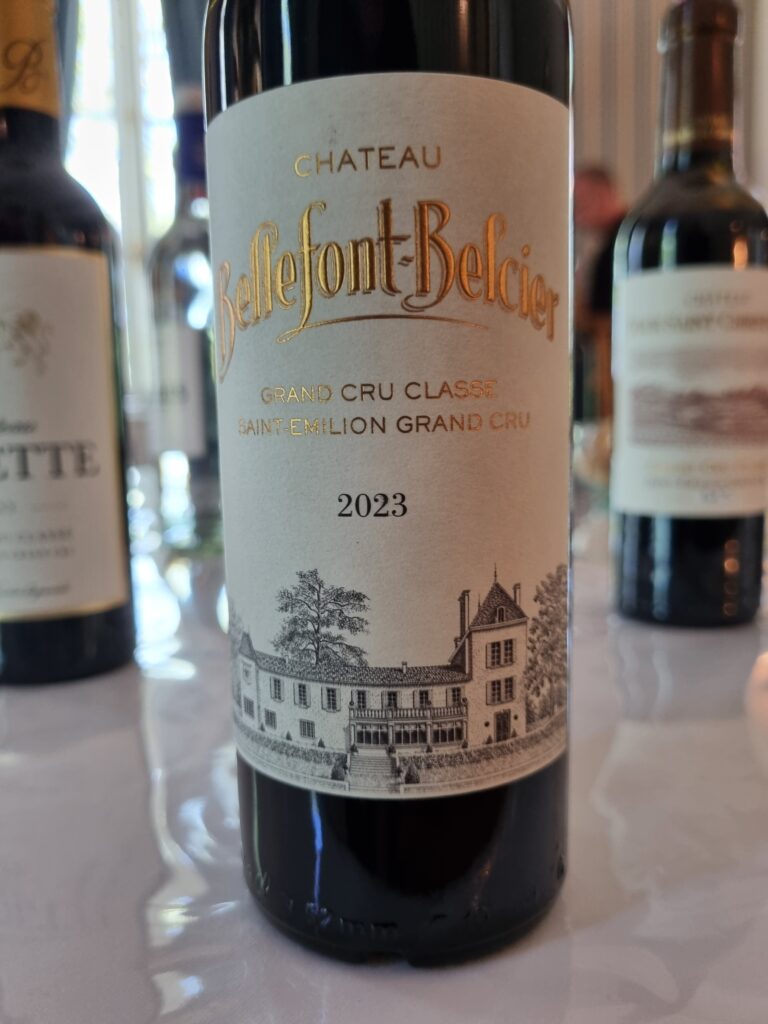
Beau-Séjour Bécot***1/2
N: Understated. Floral and a bit cosmetic.
P: Excellent tannic texture and length. Well-made and shows subtle black fruit. Lacking somewhat in body, but fresh, with good acidity. Well-balanced and natural with an aftertaste reminiscent of a cool vintage.
Bélair Monange***1/2 – ****
N: Simply put, not very expressive at the present time.
P: Great balancing act between structure and roundness. Well-made in the traditional style of the best Côtes wines. Very different from its neighbour, Ausone, due to its marked, tight, non-easy-going tannin. Also, noticeable acidity appears after the initial impression. This is a grand vin de garde with a lovely texture which asks, no, demands to be aged to strut its stuff.
Bellefont Belcier***
N: Blackberry aromas and a little spirity. Some greenness of the right kind.
P: Smooth and unctuous, then minerality sets in. Big, but hollow. Quite a bit of oak on the mineral aftertaste. Not as good as the sister estate, Tour Saint Christophe.
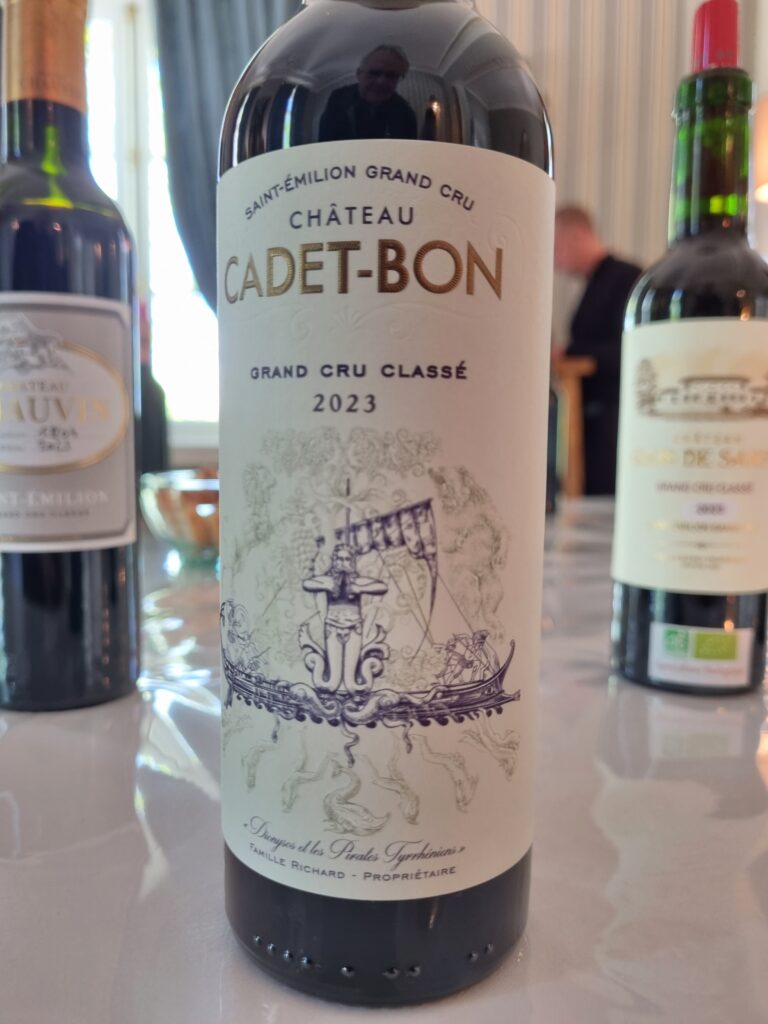
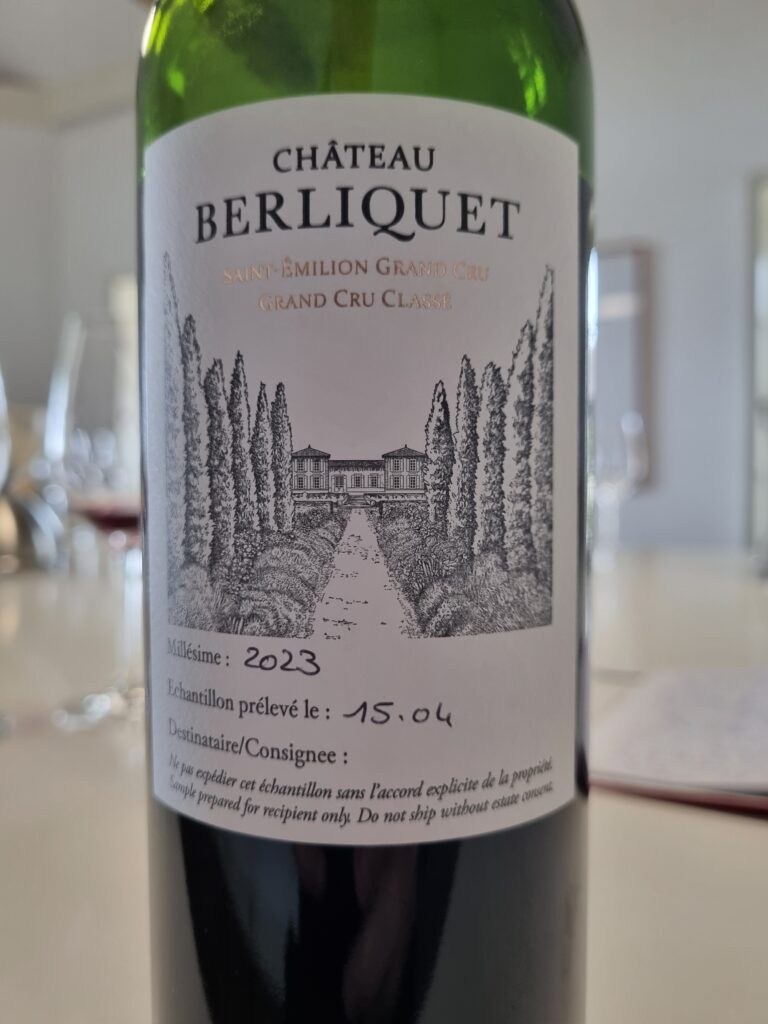
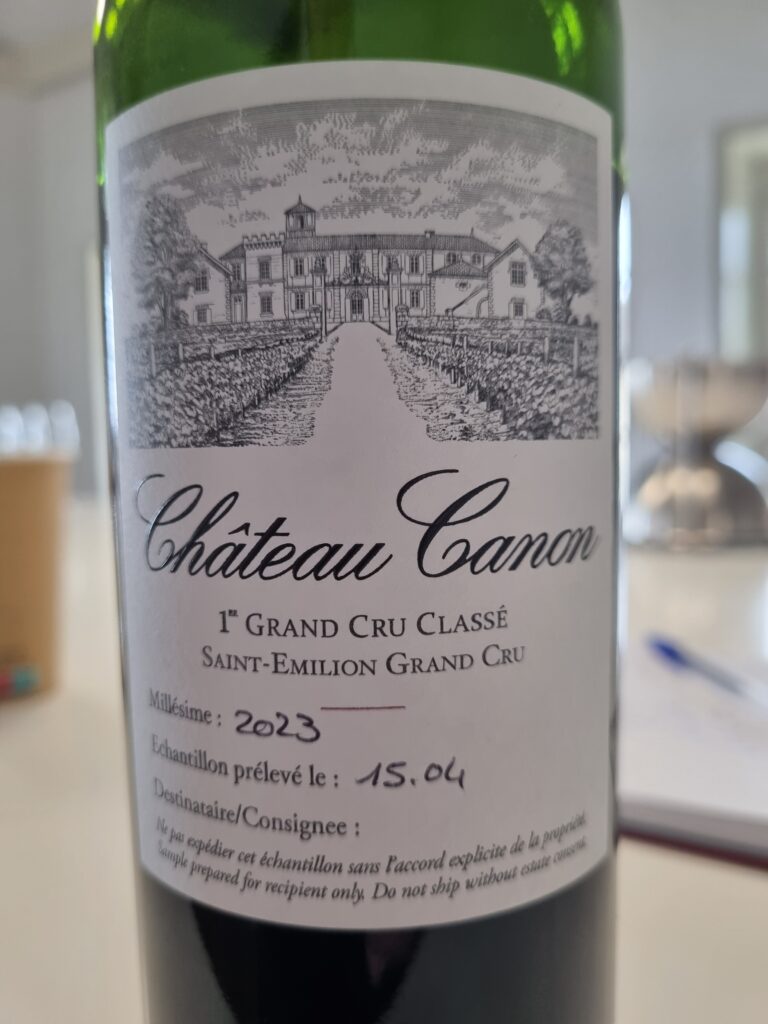
Berliquet***1/2
N: Old library, floral, rose, and red fruit nuances. Very aromatic, sweet, almost Burgundian.
P: Great structure, good backbone, and flesh on those bones. Fine fruit and acidity with attractive strawberry flavors. Primary and oaky at this stage, but promising.
Cadet Bon***
N: Understated nose with background fruity and chocolate aromas waiting to emerge.
P: Starts out jammy, drops on the middle palate, then rebounds with soft velvety tannin on the finish. Some roasted coffee flavors. Bit dry at this stage.
Canon***1/2
N: Floral (rose) and sweet red fruit nuances. Very aromatic in an almost Burgundian sort of way.
P: Fleshy, but with a good backbone. Great fruit and acidity with strawberry flavors. Very typical of its appellation with well-integrated oak. Big, generous wine.
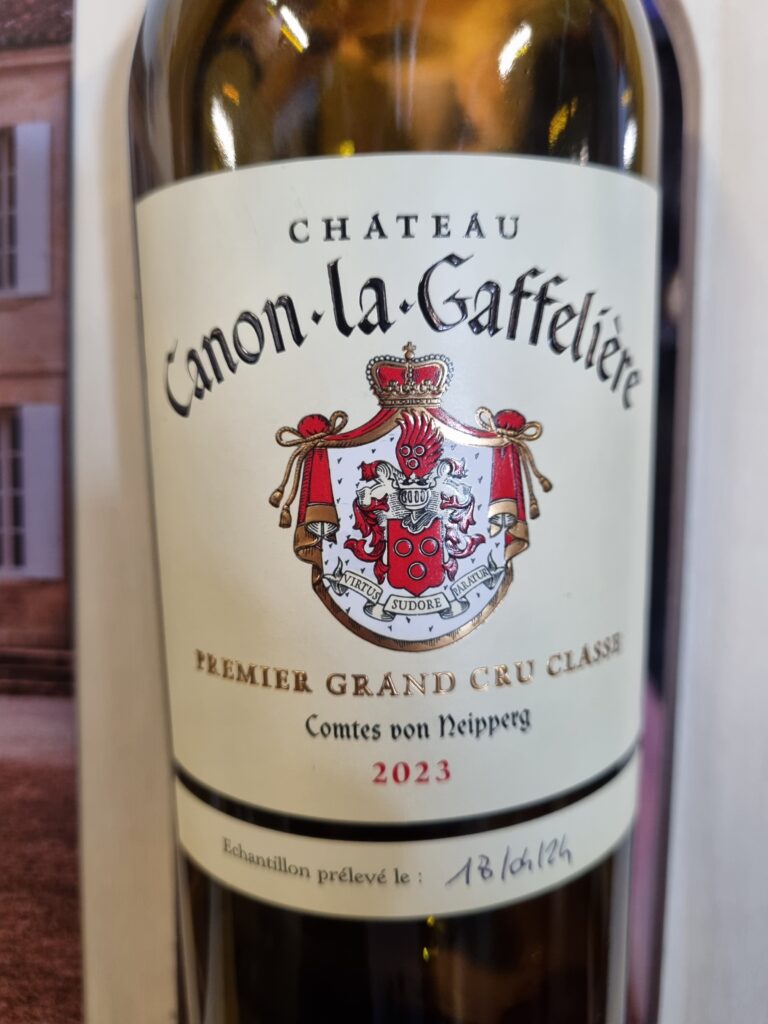
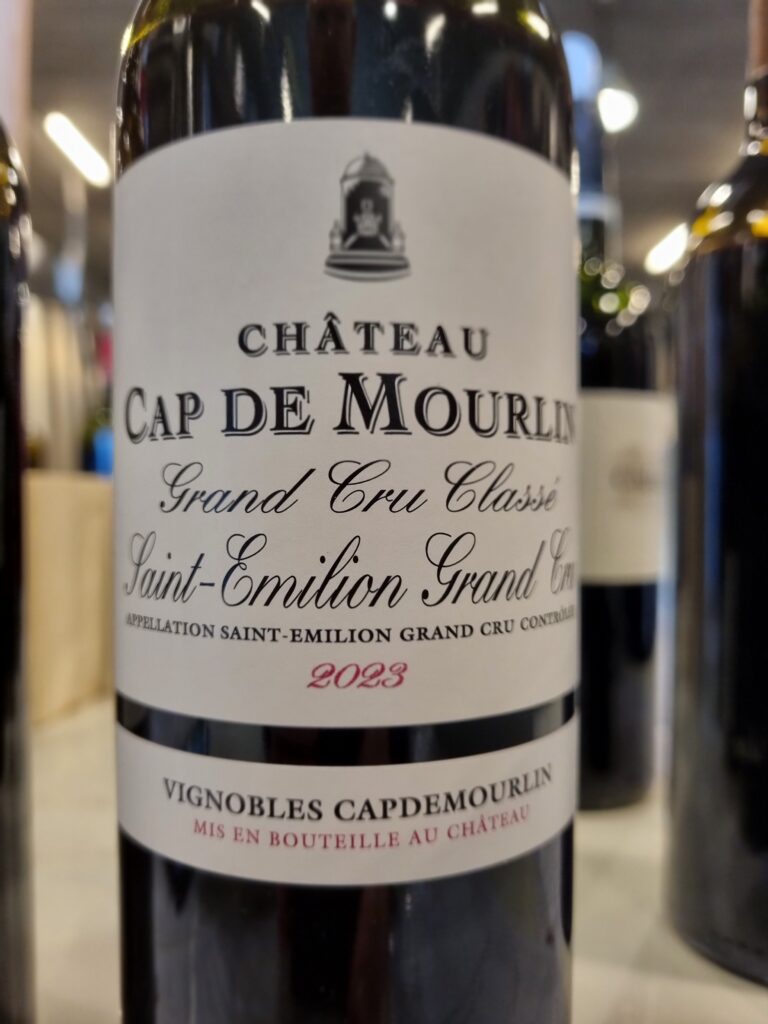
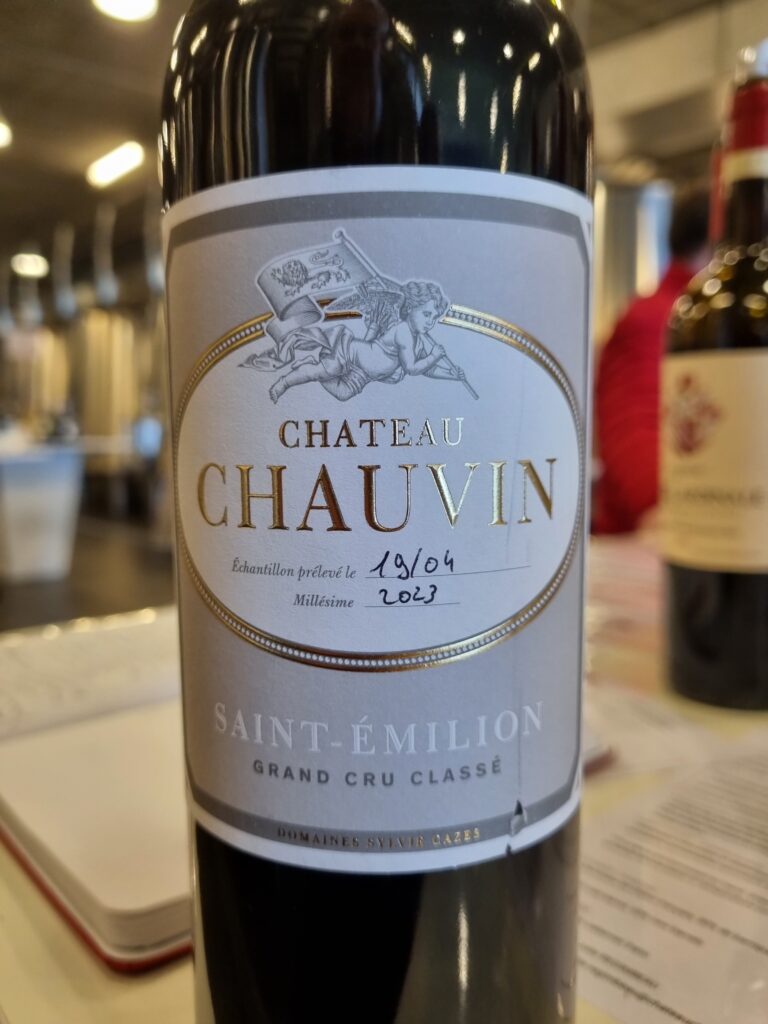
Canon La Gaffelière****
N: Harmonious and subtly perfumed. Delicate and very alluring.
P: Delicate and very alluring. Vibrant and resonant with oak that fits in well. Excellent dark fruit, great balance, and a cool long aftertaste. A very elegant Saint Emilion.
Cap de Mourlin***
N: Soft, simple, and attractive with little oak influence.
P: Thick rich texture going in a simple (once again) mineral aftertaste. Wildberry flavors encased in a soft structure without a great deal of depth.
Chauvin***
N: Beautiful ethereal blackberry nuances.
P: Tremendously juicy and thirst quenching. Oak influence is strong on the finish, but this gives some gravitas to the wine. Fluid, almost light in a way. I’d have hoped for more stuffing.
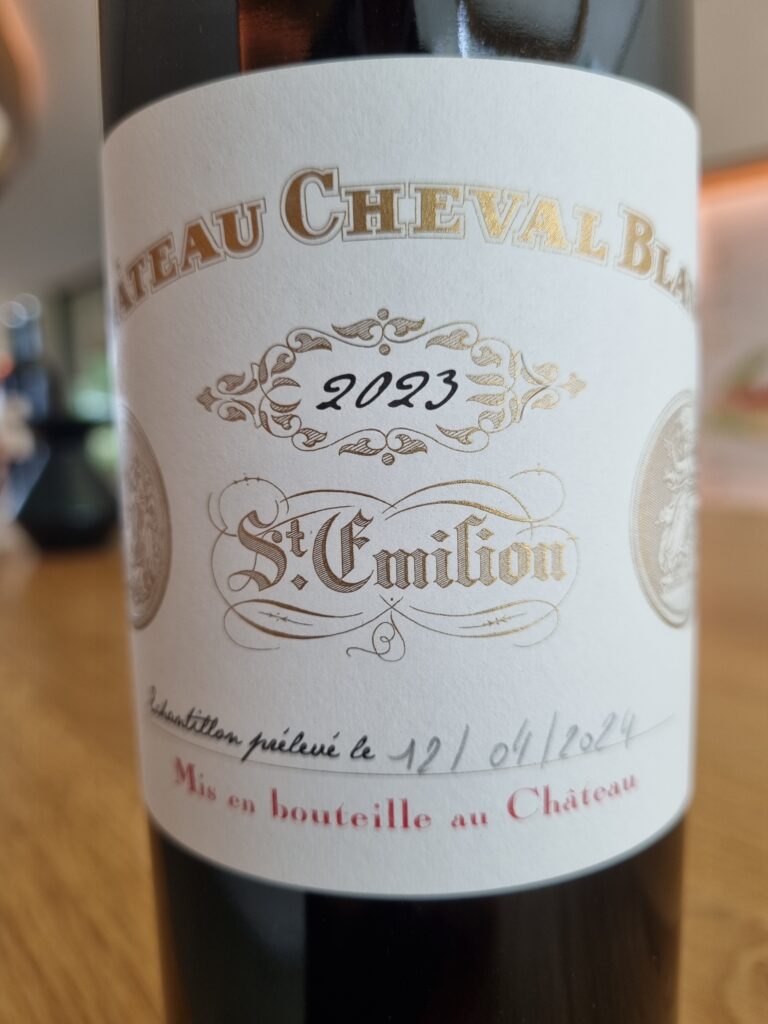
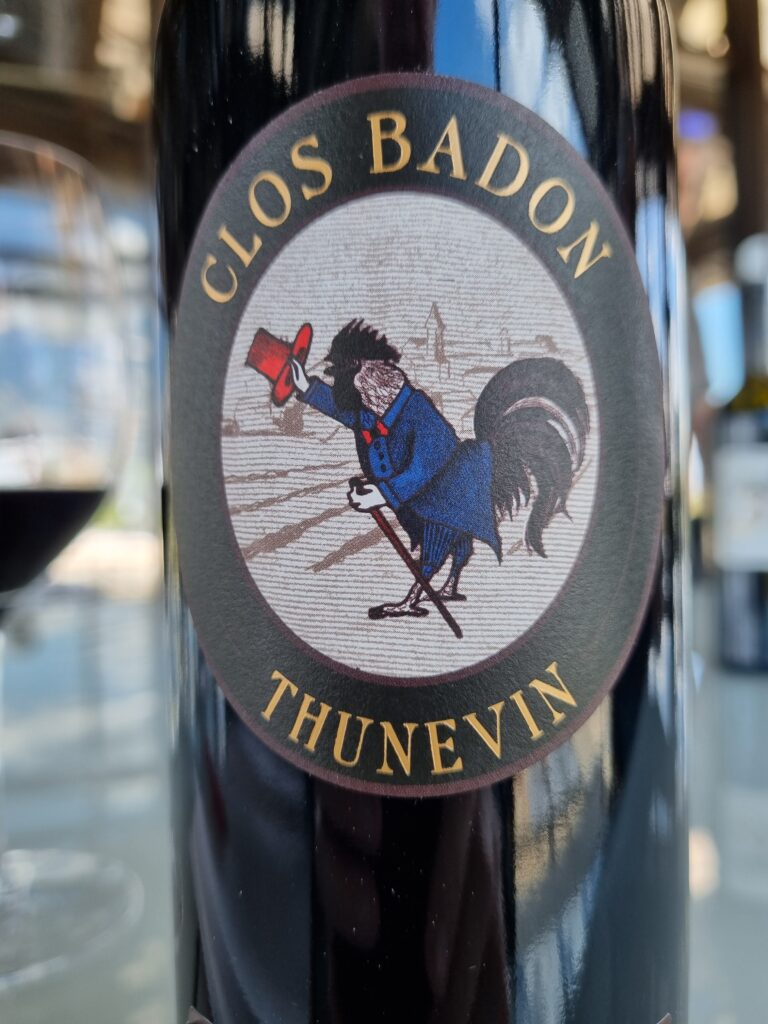
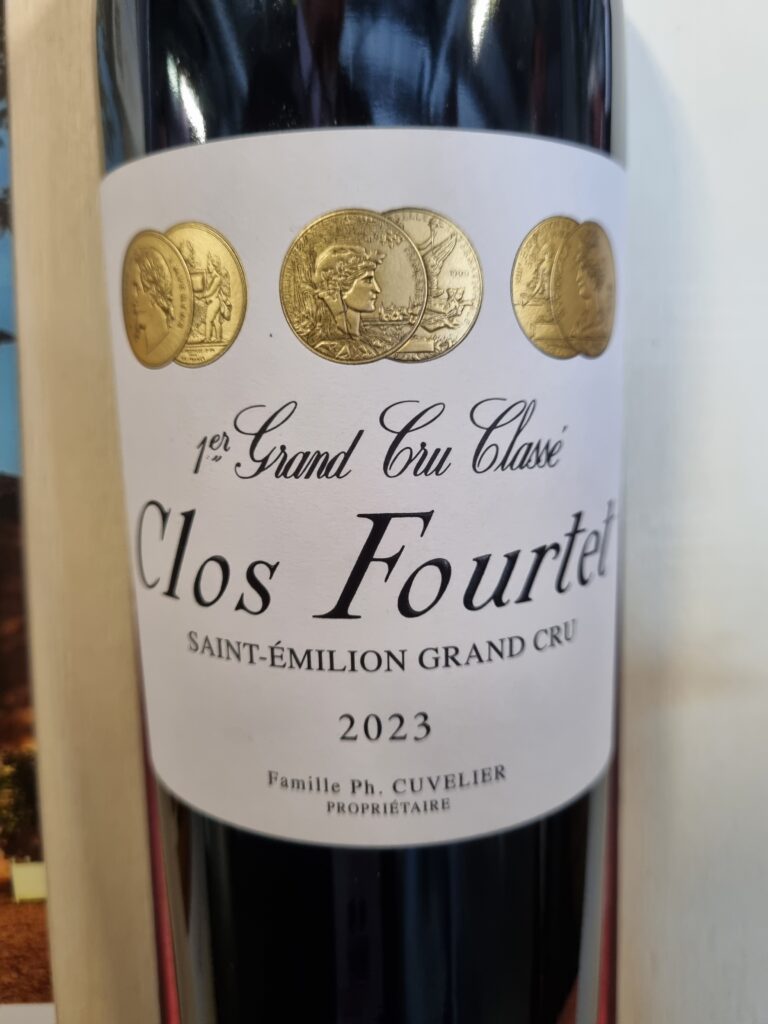
Cheval Blanc****1/2
N: Sweet and subtle with evanescent violet nuances
P: Big, luscious, melts in the mouth. Extremely vinous and sinewy with a satin texture and some roasted coffee notes. Super long on the palate and huge potential here.
Clos Badon Thunevin***
N: The sample was slightly oxidized, and there was a spirity side.
P: Pomerol-like tannin that melts in the mouth. Nevertheless, good acidity. Not as rich as other wines in this vintage, but sensual and worthwhile.
Clos Fourtet***1/2
N: Deep black fruit, especially black cherry. Pure and untampered with. Natural.
P: Soft and flavorsome with a fresh, almost primary taste and a long finish not troubled by harsh tannin or oak. Seems on the relatively light and easy-going side, but that is deceptive because this is a vinous wine of substance that will provide great pleasure.
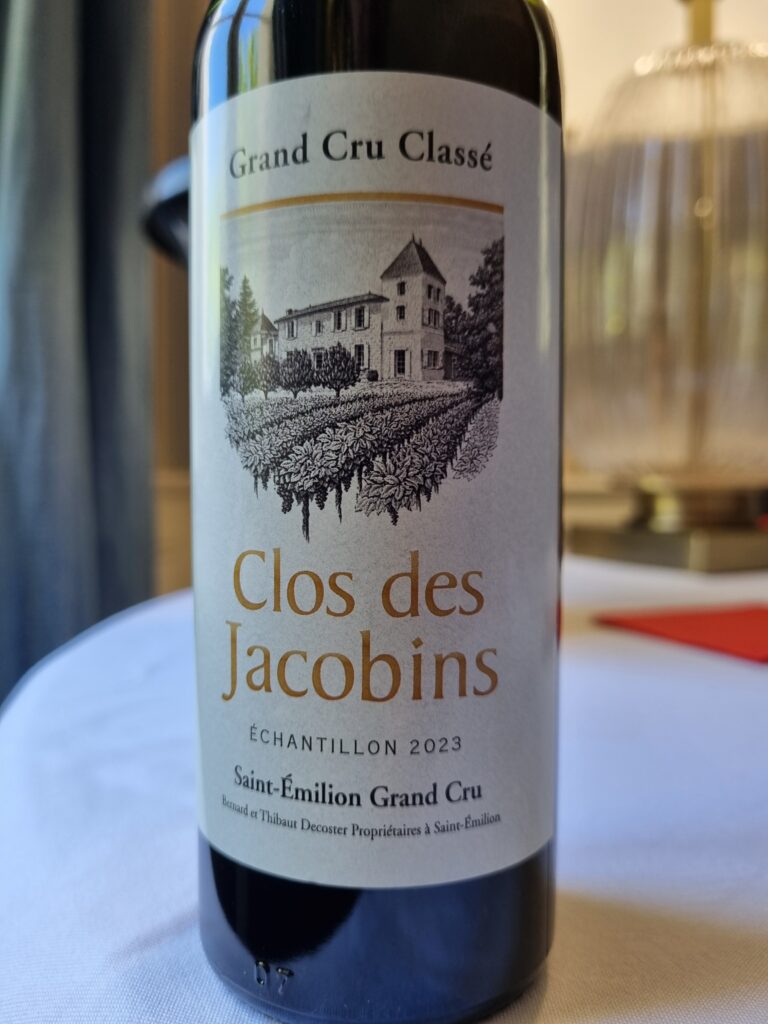
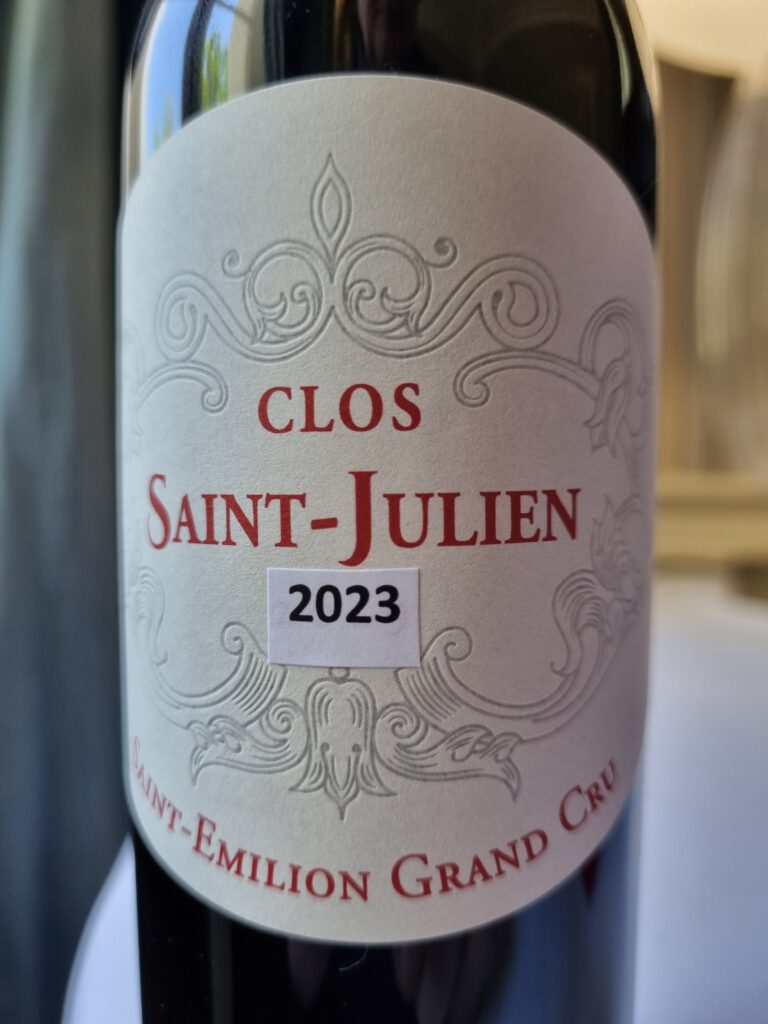

Clos des Jacobins***1/2
N: Pure fresh fruit with some roasted aromas.
P: Engaging cherry flavors go into a long aftertaste. Dynamic, not overdone, and with good acidity. Lovely aftertaste blending black fruit, minerality, fine-grained tannin, and oak.
Clos Saint Julien***1/2
N: Sweet and ripe with black cherries galore. Pure, natural, and very enjoyable.
P: Medium body, sophisticated, and lean-framed with an excellent limestone aftertaste. Balance, elegance, and a wine I was glad to get to know.
Clos Saint Martin***
N: Slightly smoky with captivating subtle black fruit and good oak. Promising.
P: Fine tangy acidity and structure in traditional mode. Slender build with textured tannin. A little sharp. Will age well. Not the round and fleshy type of Saint Emilion. Austere, but not dry with a decidedly mineral aftertaste.
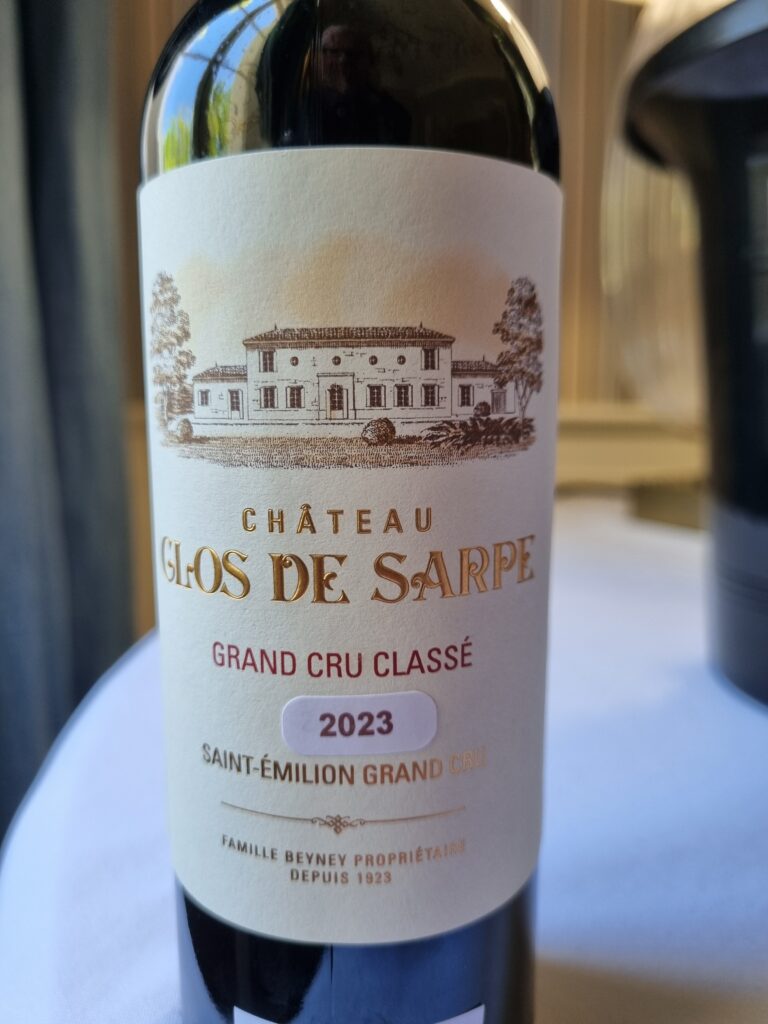
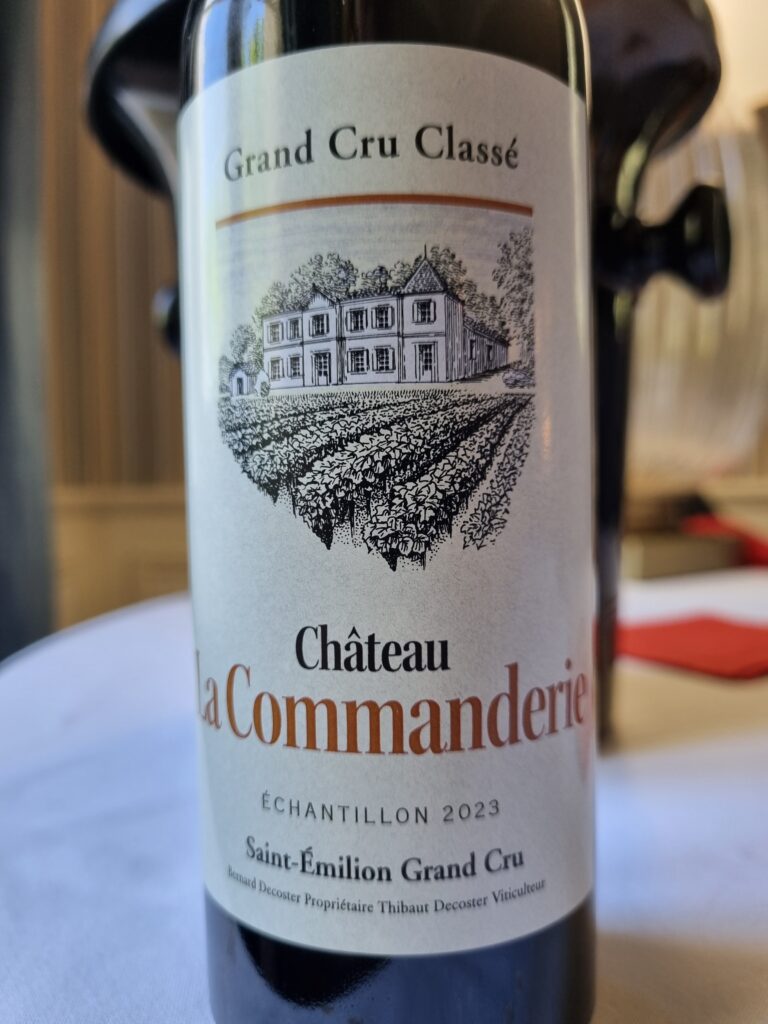
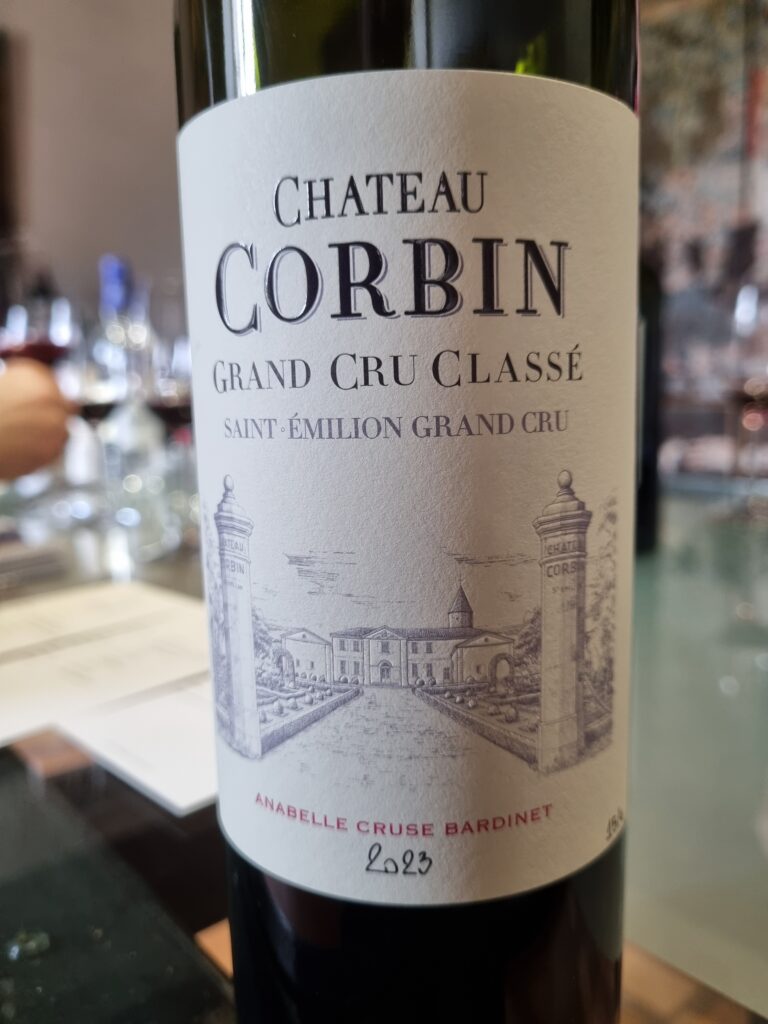
Clos de Sarpe**
N: Upfront strawberry, cranberry, and blackberry liqueur aromas.
P: Bit watery and disappointing. A better finish offsets the dilution and weakness, but not enough to make this wine truly satisfactory.
La Commanderie**
N: Primary berry and red fruit aromas. Very expressive.
P: Bit austere and weak with bitter tannin on the dry finish. Not showing well on this day.
Corbin***
N: Closed, but shows good berry fruit in the background.
P: Fruity and juicy, but slightly lacking in acidity. Pure and still primary. Tannin takes a back seat to the fruit. Very blackcurrant, then vinous, with licorice overtones. Delicious.
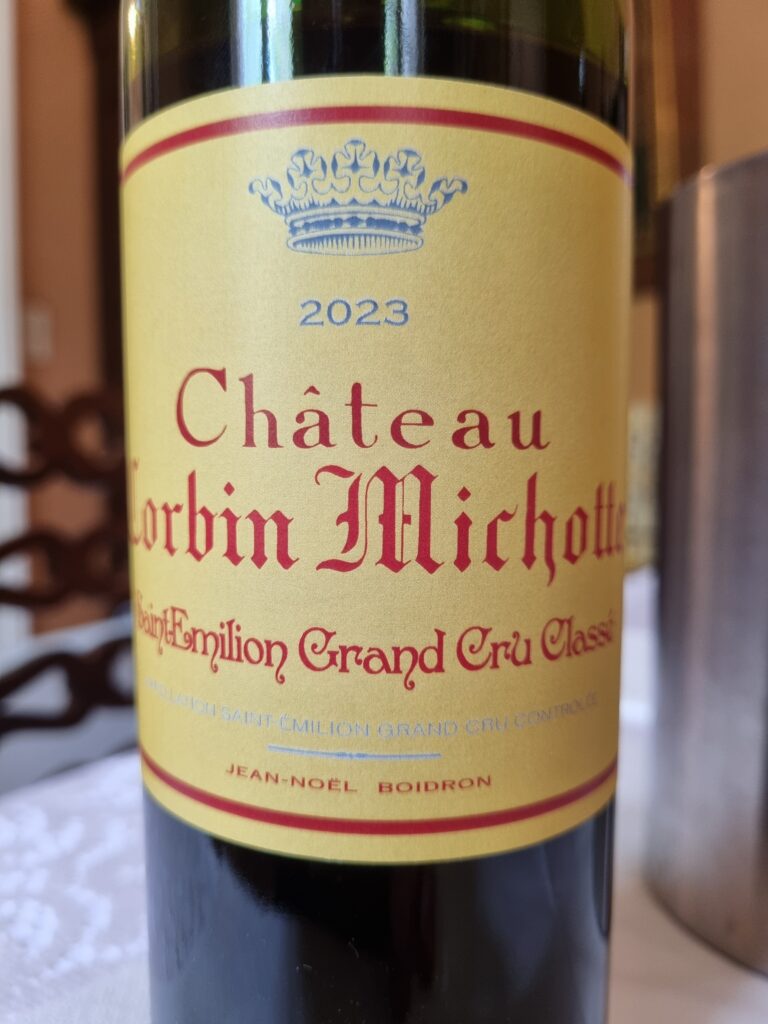
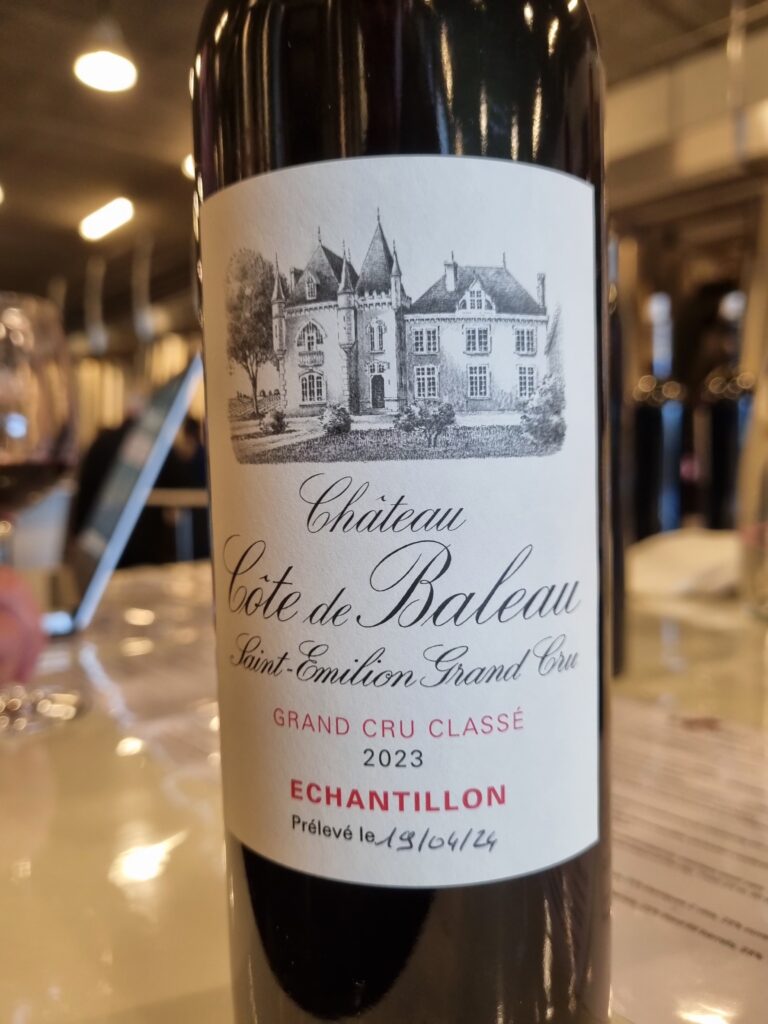
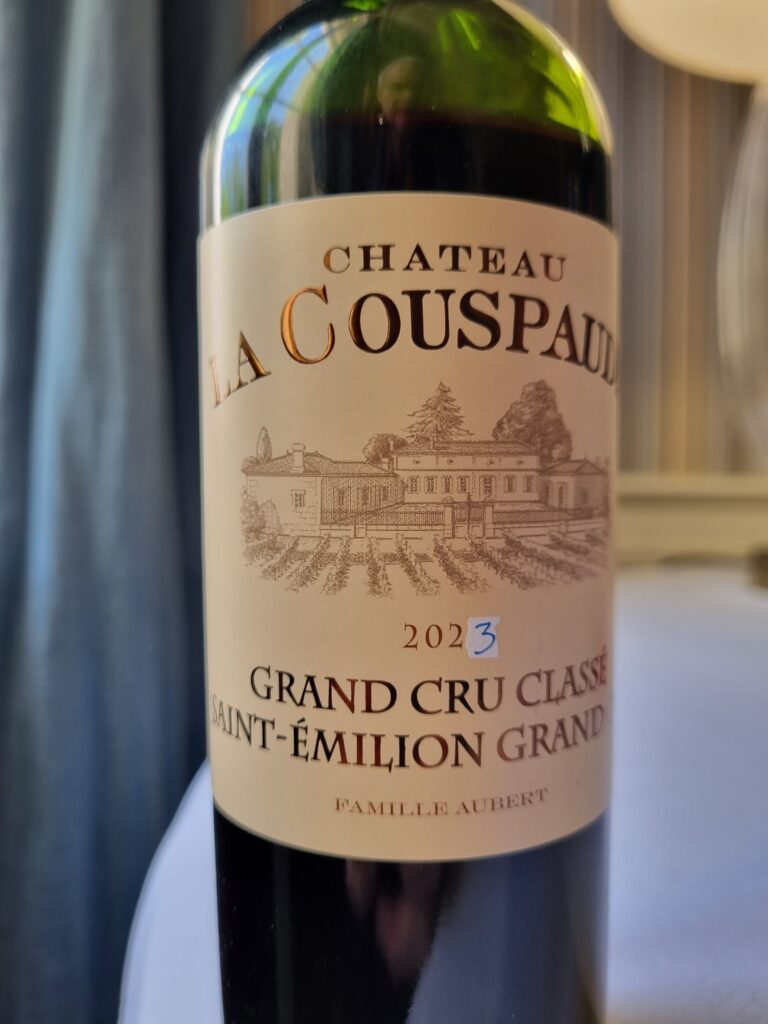
Corbin Michotte***
N: Simple, but aromatic with floral (iris), cola, and berry blossom overtones.
P: Berry fruit, especially blueberry, comes though on the palate as well an impression of sweetness. Round on entry, with a short, cool, attractive aftertaste. Will drink well young.
Côte de Baleau***
N: Roasted aromas with notes of sweet black fruit.
P: Compact and round. Well-structured, but rather short. Well-made (not over-extracted) in view of the lighter body and substance compared to other Saint Emilions in this vintage. Slightly dry finish, but mercifully not over-oaked.
La Couspaude**
N: A little musky and wild.
P: Soft, but weak. Dilute and acidic. Wish I could be more positive. A wine that deserves to be re-evaluated.
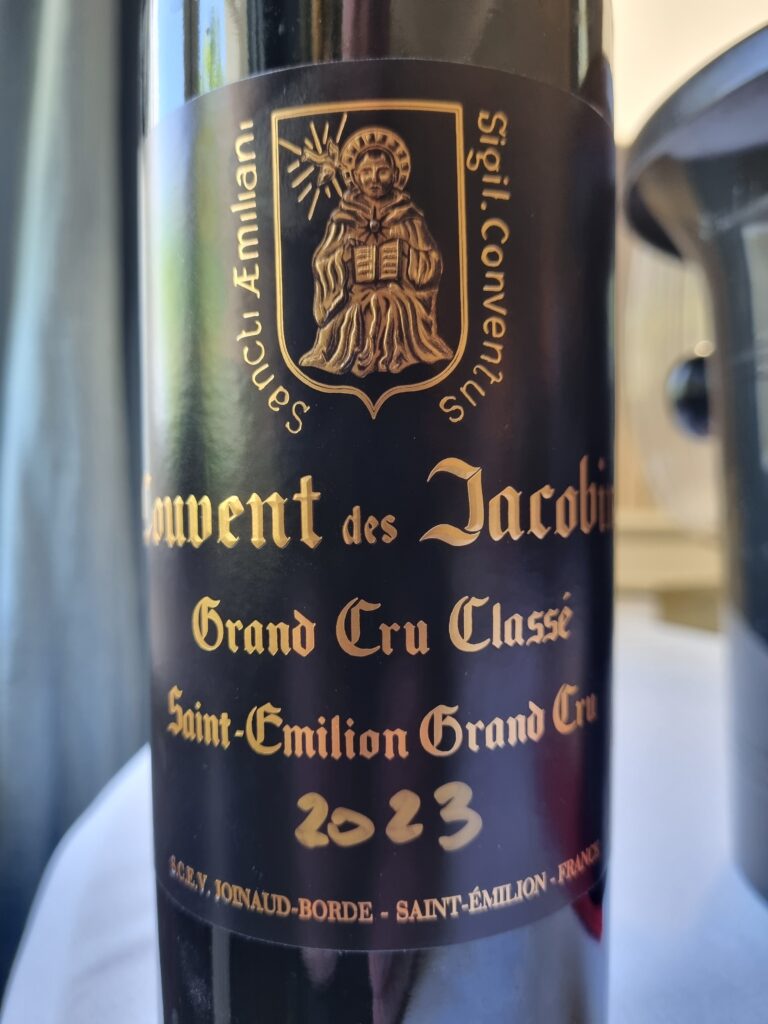
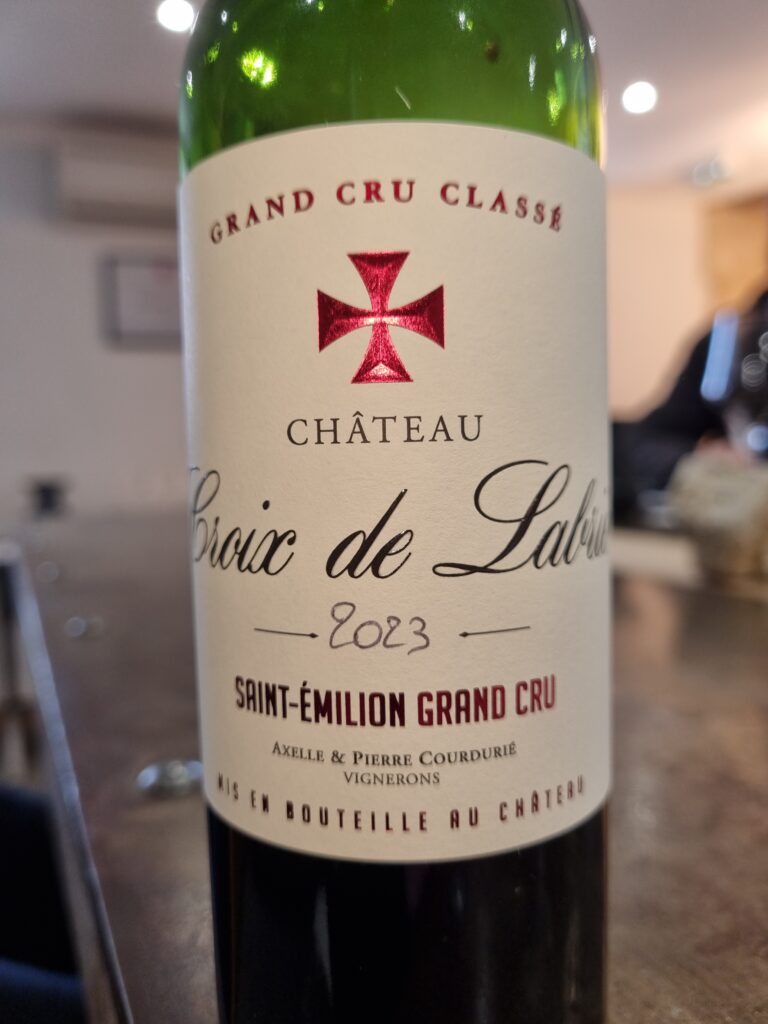
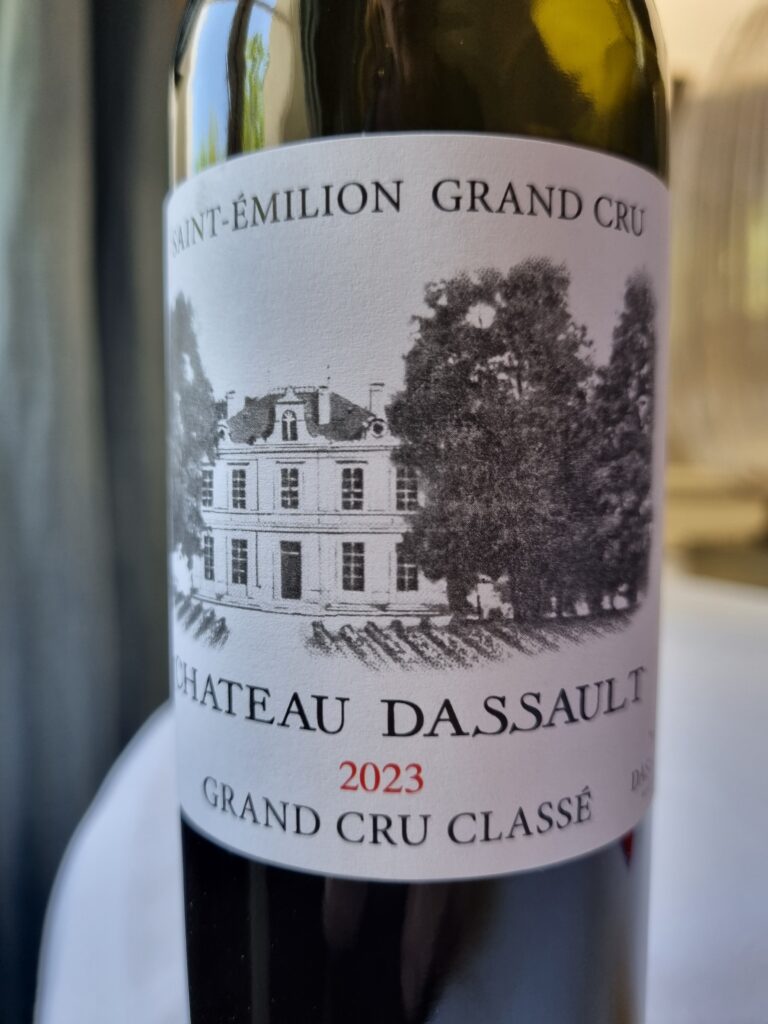
Couvent des Jacobins***1/2
N: Pure and fresh with some roasted and caramel aromas.
P: Engaging cherry flavor that is prolonged into a long aftertaste. Dynamic with good acidity. A very attractive finish combining black fruit, minerality, fine-grained tannin, and oak.
Croix de Labrie***
N: A little dusty, but showing pure deep fruit and hints of beeswax.
P: Medium-heavy mouth feel with minerality and lots of blueberry flavor. Angular due to penetrating acidity and tannin that coat the teeth. This tannin is nevertheless finely textured, and resonant. Dry finish, but the bright fruit may well win out over time.
Dassault***1/2
N: Fresh and uncomplicated, with some floral notes.
P: Black fruit jelly. A beautiful, velvety, puckery finish to go along with the “sweetness”. Generous. Now incorporates a no-longer-existing cru classé, Faurie de Souchard. The estate has thus gone from 24 to 39 hectares.
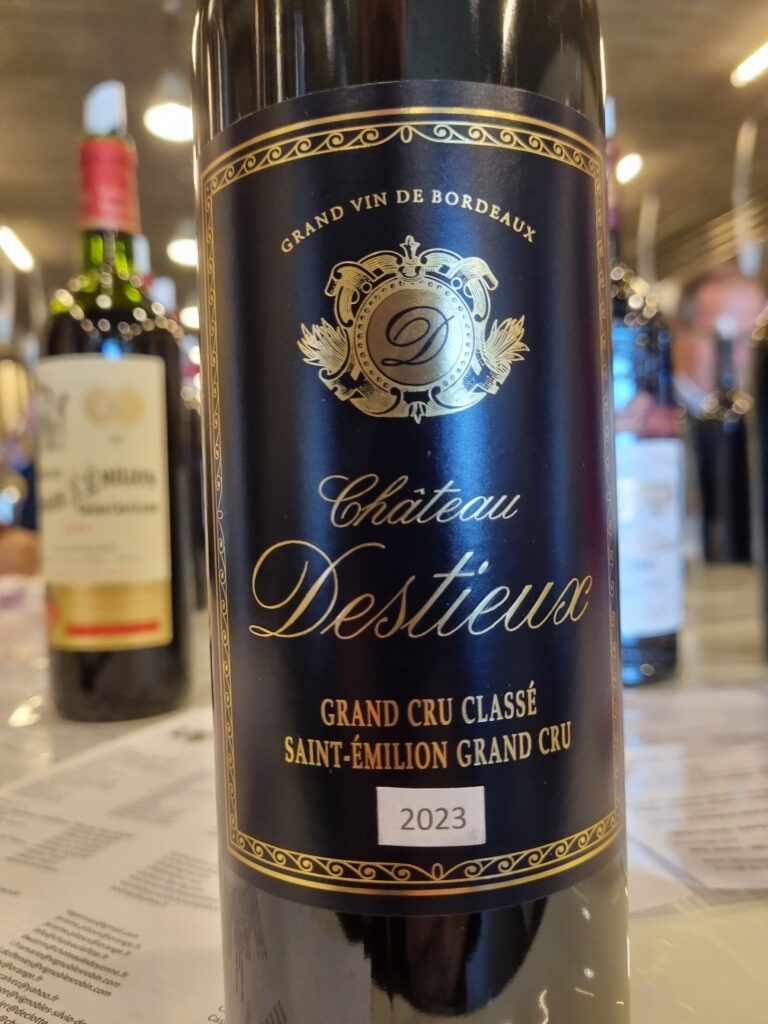
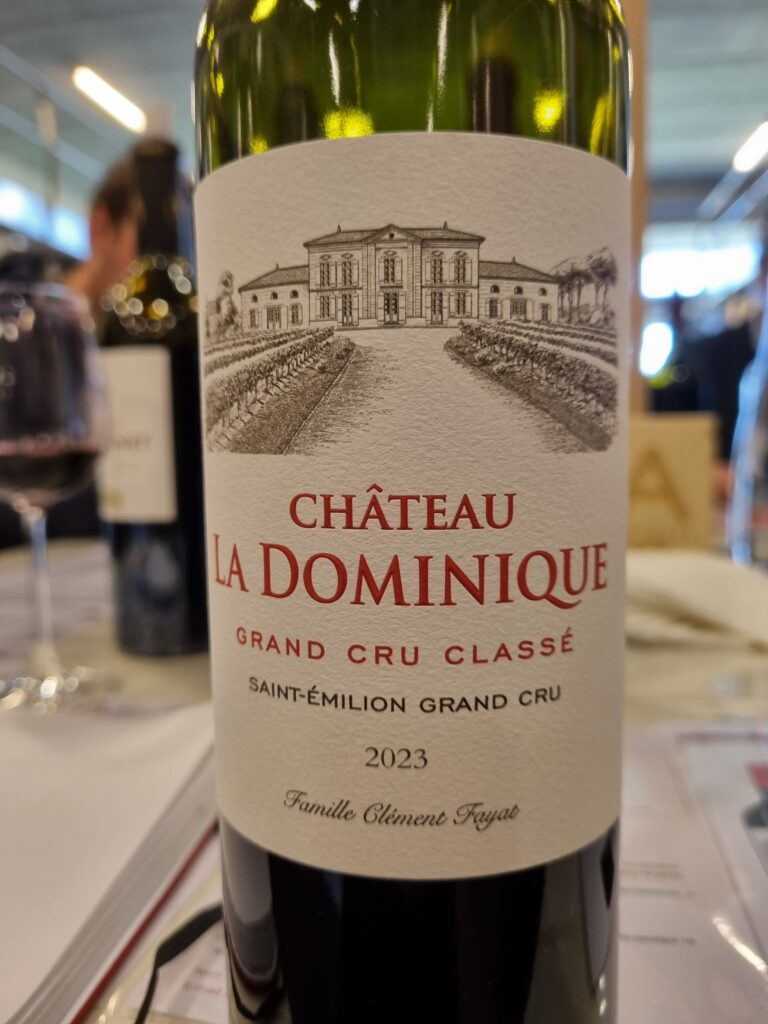
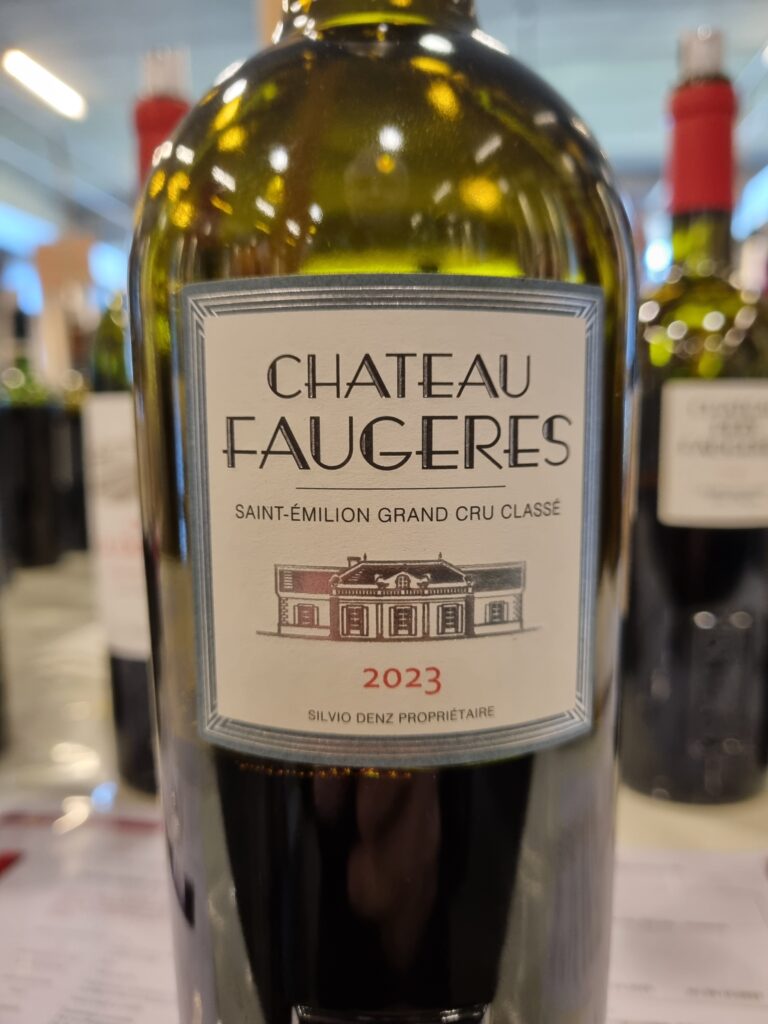
Destieux***
N: Forthright back fruit and good oak.
P: Starts out well, but weak on the middle palate, then going into a relatively dry aftertaste with fine-grained tannin. Medium-weight. This good aftertaste saves an otherwise unremarkable wine.
La Dominique****
N: Delicate nose with marked floral nuances along with hints of chocolate and strawberry. First class.
P: Great balance between acidity and the rest. Successful. A synthesis of Pomerol and Saint Emilion. Only the slight shortness on the aftertaste keeps this from the very highest category. Everything else is in place here. Bursting with fresh fruit, but extraction seems expertly controlled. A very nice surprise.
Faugères**1/2 – ***
N: Subdued berry fruit waiting to emerge.
P: Melts in the mouth, but relatively weak in terms of concentration and flavor. Seems diluted and hard, but the level of acidity signifies both ageing potential and the possibility that may just not be in a good place at present. There’s an initial roundness and some nice raspberry notes but the wine was out of balance the day it was tasted.
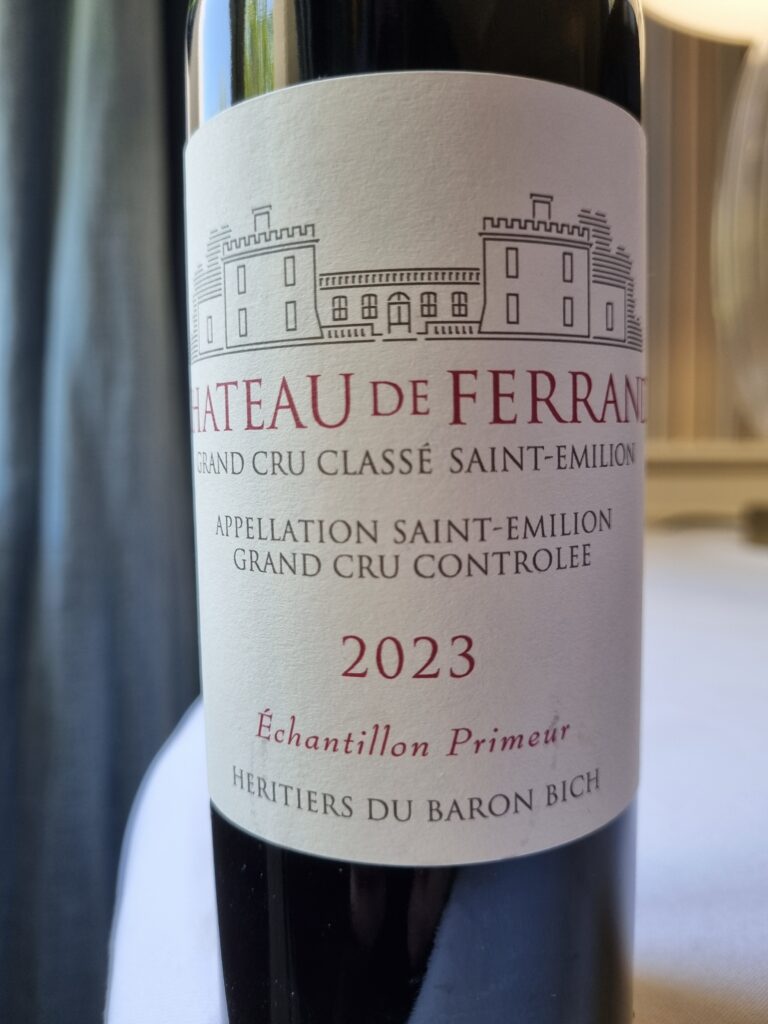
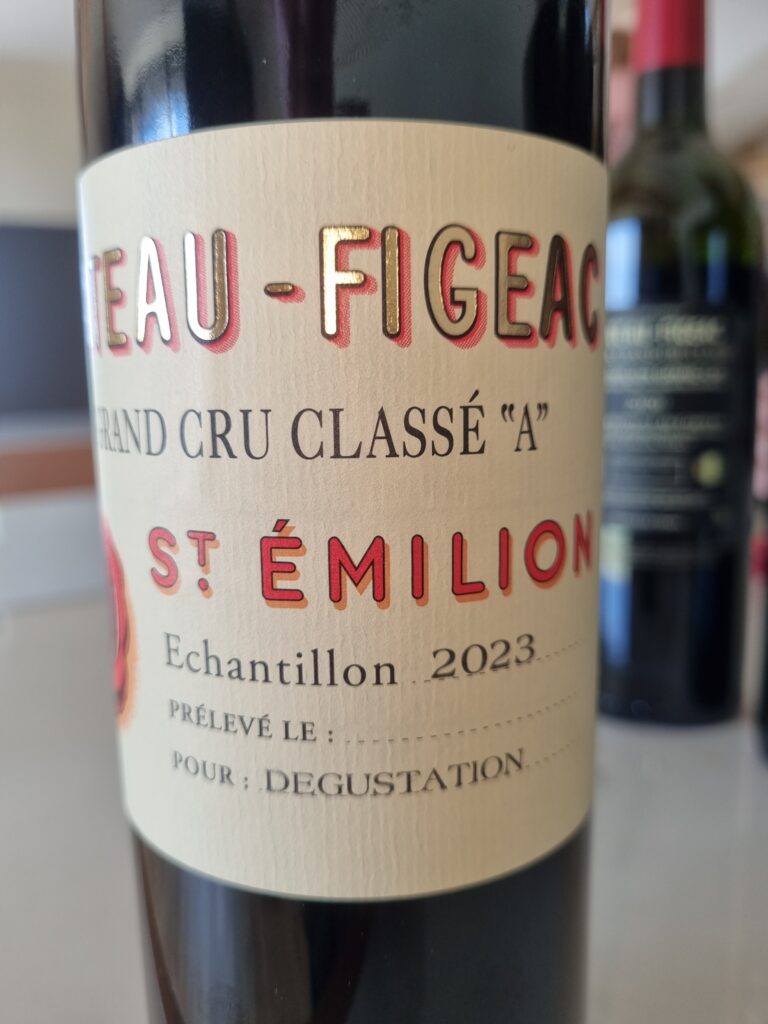
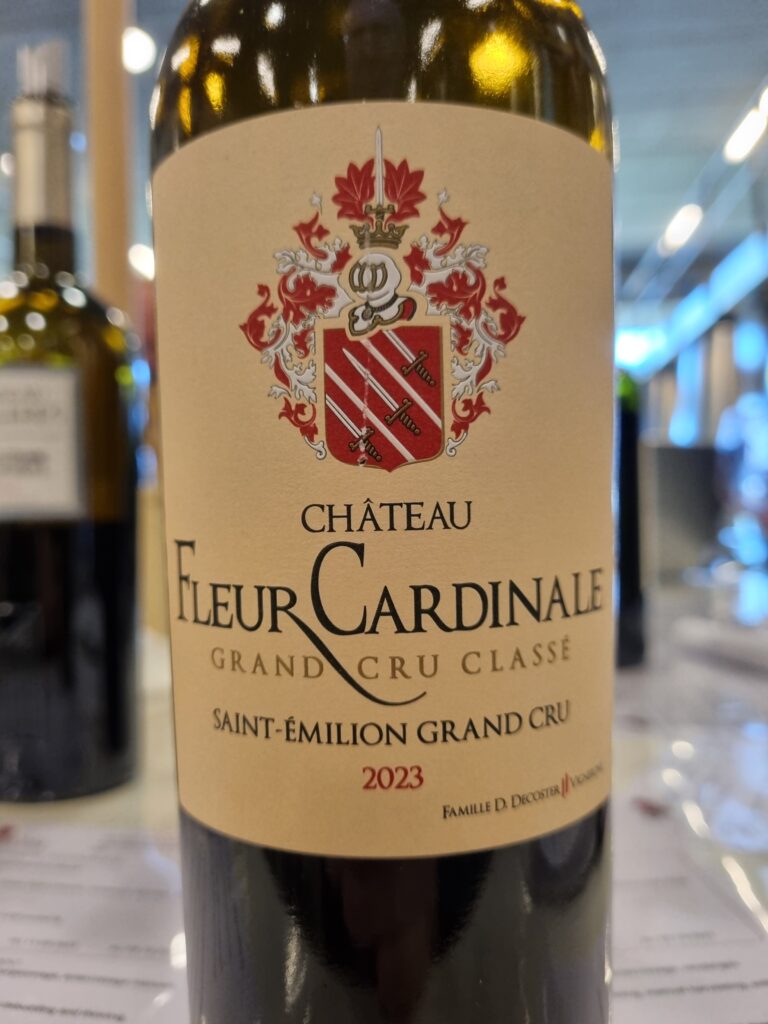
Ferrand**1/2
N: Not well-focused at this time. Impression of alcohol and black fruit.
P: Chewy and big, but very short. A little dilute. Hotness and dryness characterize the finish.
Figeac****
N: A berry (blackberry, raspberry) liqueur-like quality. Very promising.
P: Floral aspects come through on the palate which is smooth and with a flavor reminiscent of red fruit and cranberry jelly. This then goes into a superb mineral aftertaste superb with excellent tannic texture. This texture, rather than structure, is the wine’s chief virtue.
Fleur Cardinale***
N: Classic pure fruit with hints of new leather and a not overpowering impression of alcohol. Understated and attractive.
P: Rich, round, generous mouthful of wine. Good structure and just a little short on the aftertaste, but true to its terroir and quite good.
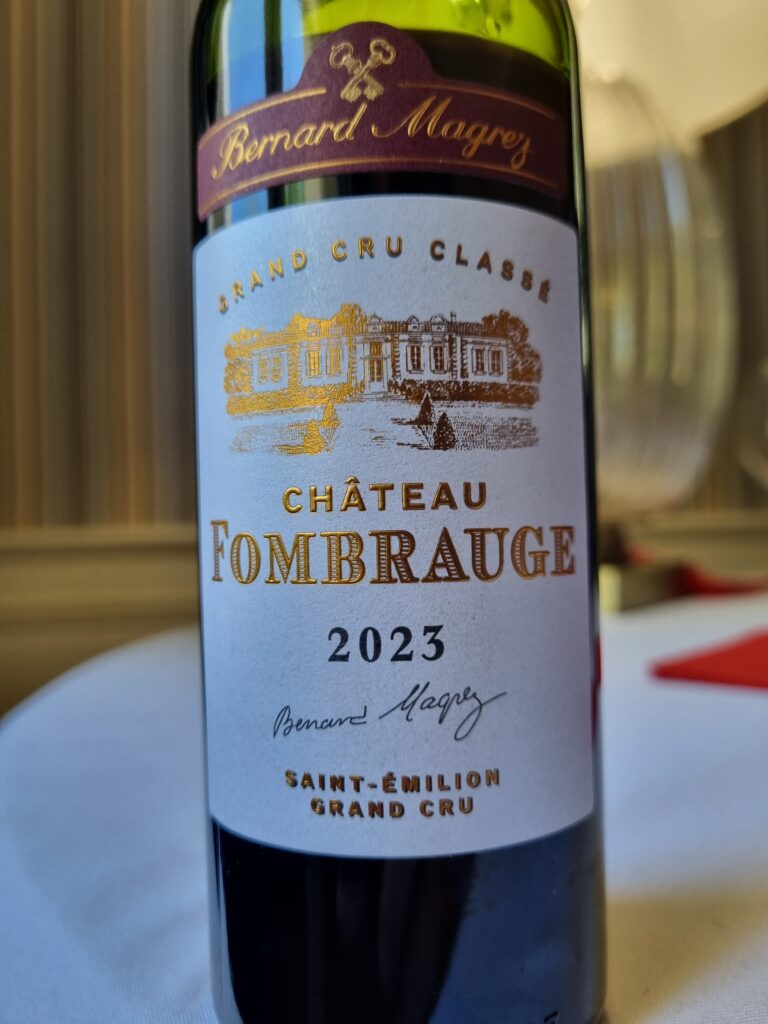
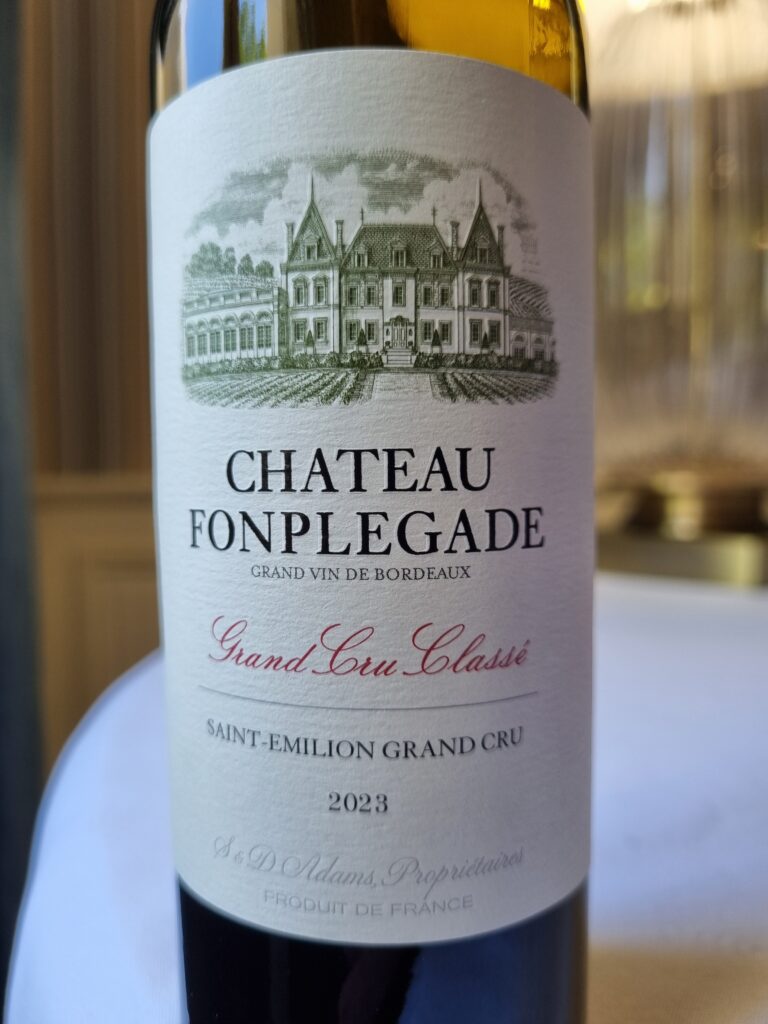
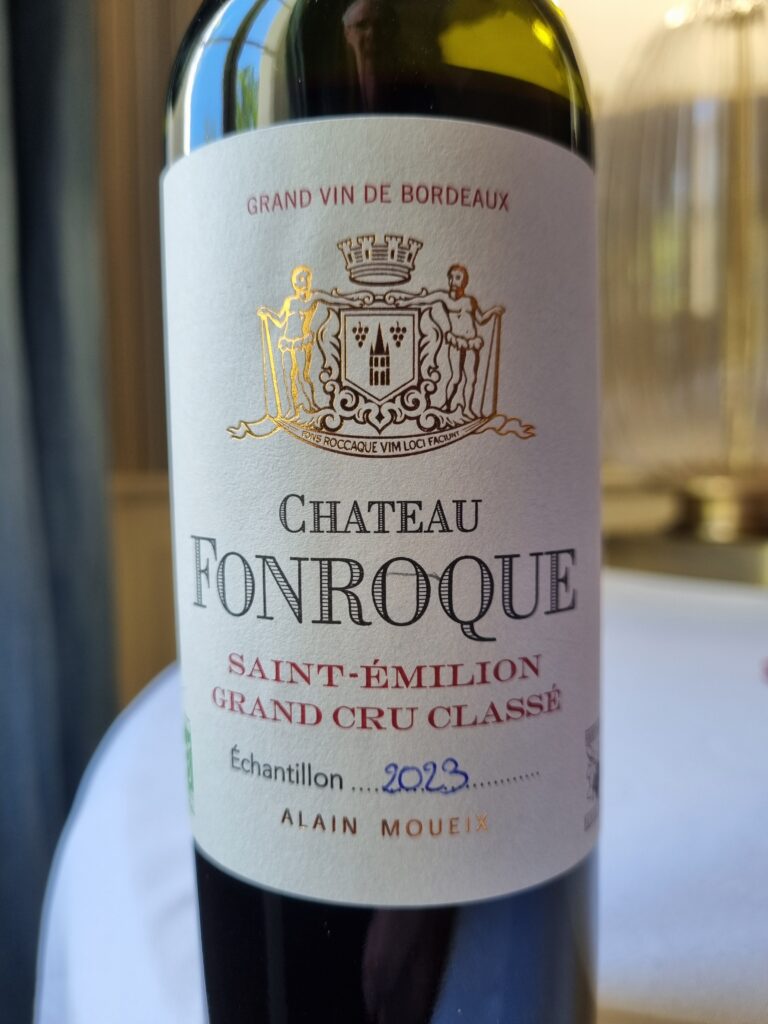
Fombrauge***
N: Inky, leathery.
P: Soft, then showing strong acidity which lasts through to the finish. Concentrated and big with assertive follow-through and some chocolate and candied black fruit notes. Big, but well-made and enjoyable wine.
Fonplégade***1/2
N: Bit musty, but accompanied by sweet primary fruit aromas.
P: Rich and mouthfilling. The taste profile may be narrow, but the flavor is resonant and delicious within it due in no small part to the significant acidity. Big, but not hollow. Lovely long aftertaste with superb tannin that will age beautifully.
Fonroque***1/2
N: Complex rich grapey aromas with hints of dried fruit.
P: Melts in the mouth, but not simple and easy-going. Wine of character with the limestone stamp of the Saint Emilion plateau. Very round with good grip on the aftertaste. Fine balance and will age well.
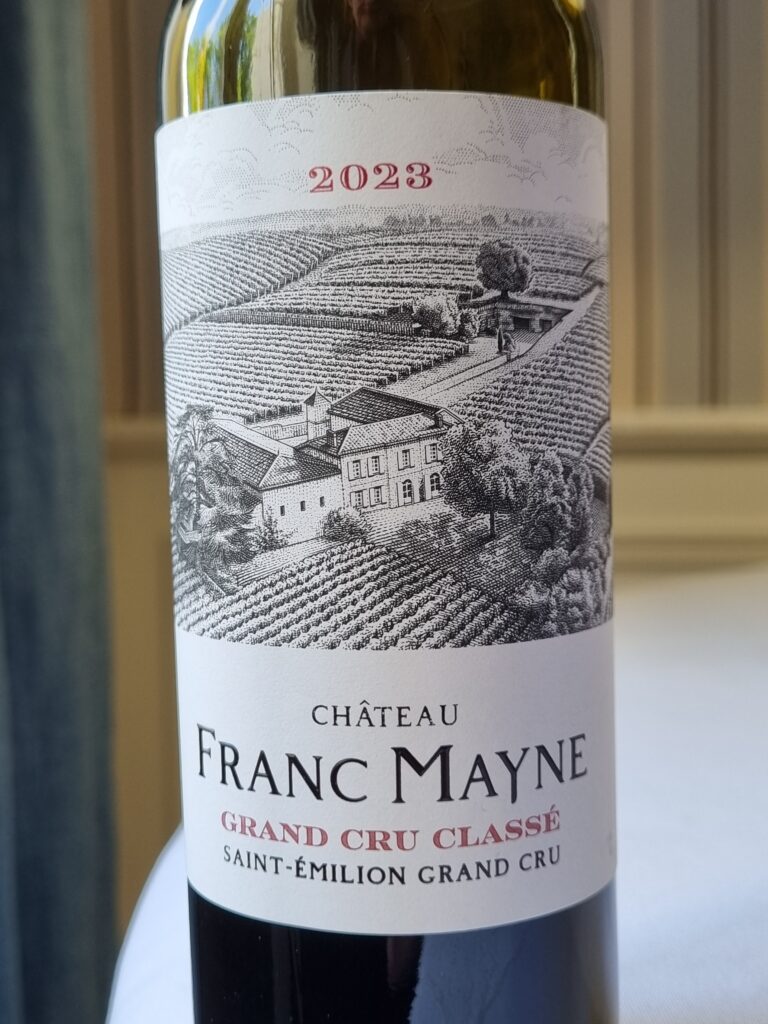
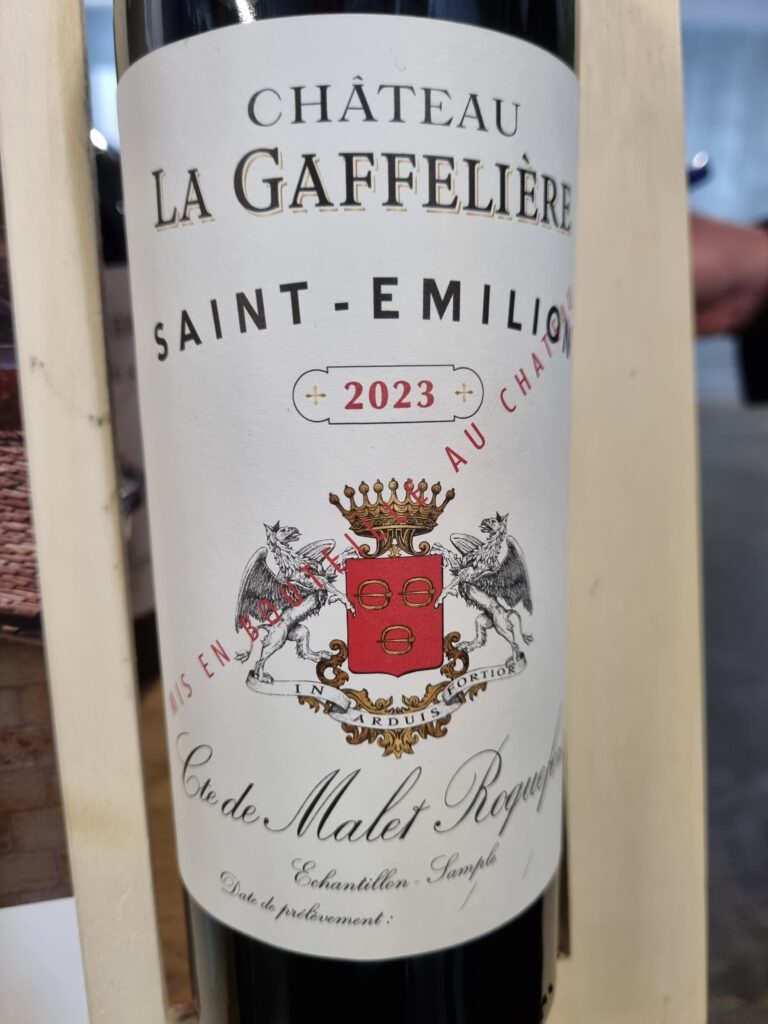
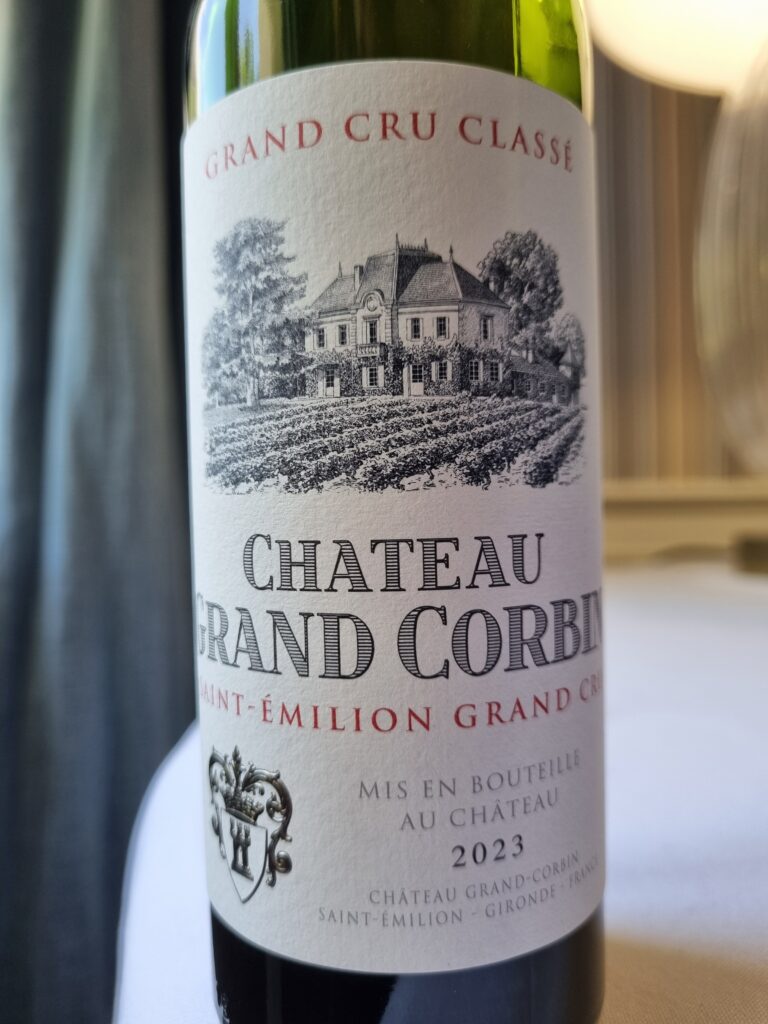
Franc Mayne**1/2
N: Candied red fruit and cherry liqueur nuances. Ethereal and good.
P: Smooth and soft to begin with, but then falls down somewhat. Picks up a little on the aftertaste displaying definite minerality, but the wine tasted today was fundamentally out of balance.
La Gaffelière***1/2
N: Ripe rich fruit reminiscent of blackberry jelly. Very good.
P: Both soft and tightly knit (compact). Unexpectedly cushioned on entry and then a little harsh at first on the aftertaste, but this evens out on the finish. Thanks to good tannin and acidity, this will age well.
Grand Corbin***1/2
N: Tremendously perfumed nose, where the fruit just edges out the floral aspects.
P: Not quite as good on the palate, but very drinkable and refreshing. Avoids heaviness or too much oak. Classic, rich, supple, and smooth with an appetizing finish.
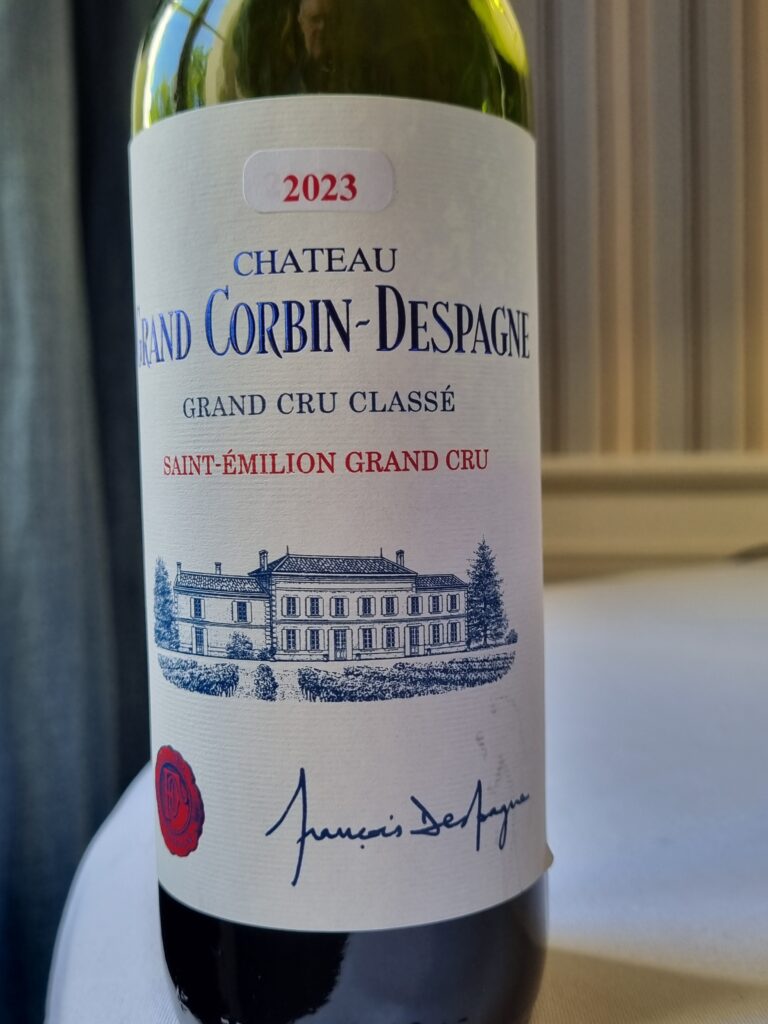
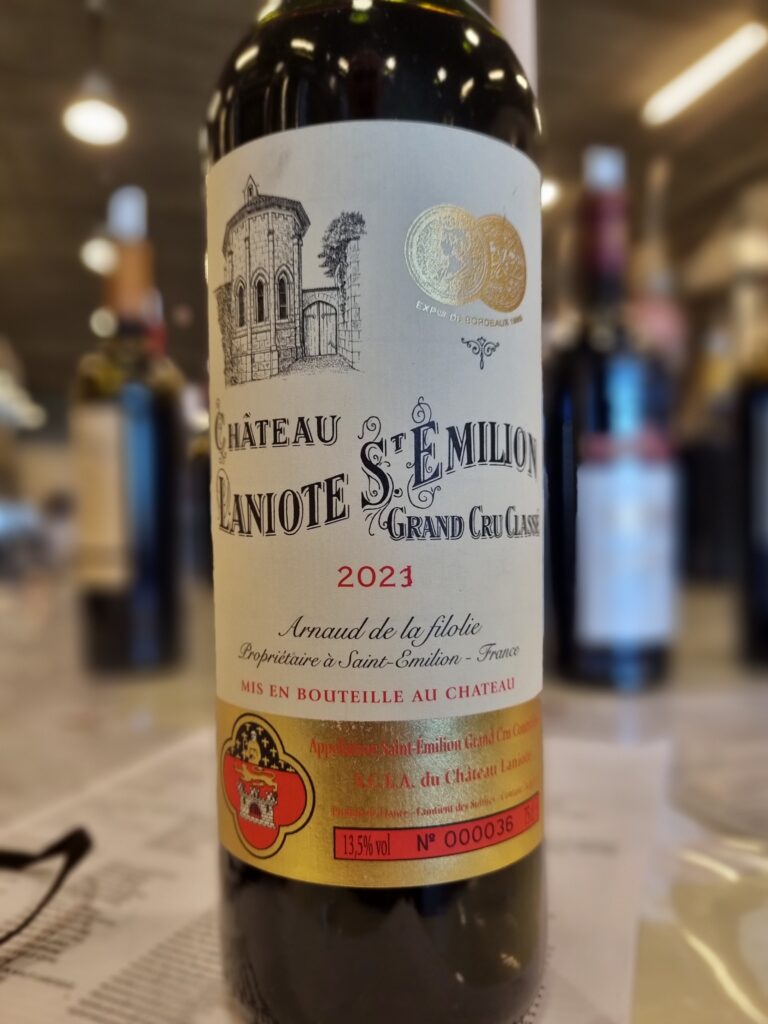
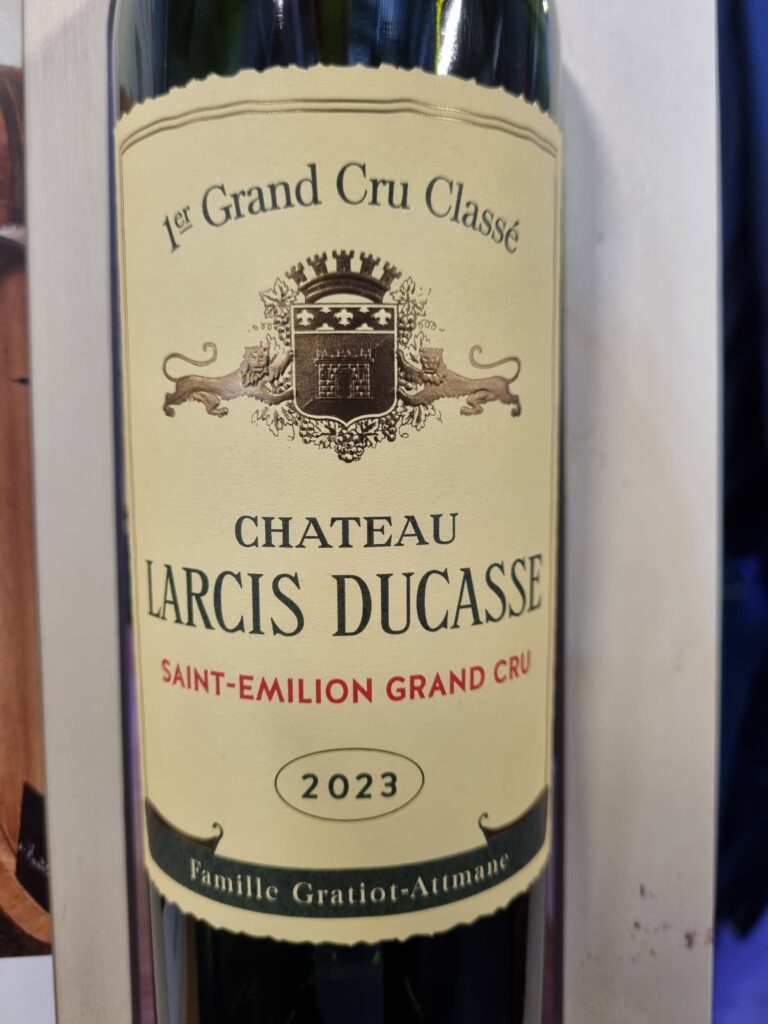
Grand Corbin Depagne**1/2
N: Jammy, in the good sense of the word, as well as featuring toasty/roasted aromas.
P: Rather dilute, soft, and simple with an aftertaste whose good length is out of kilter with all that proceeds. In other words, the body is too weak, especially on the middle palate.
Laniote**1/2
N: A slight whiff of oxidation but underlying fruit (sour cherry) is OK.
P: Better on the palate at first then rough tannin appears. A gutsy, vinious wine but lacking in refinement. That’s a pity because there are aspects of elegance on the finish.
Larcis Ducasse****
N: Good nose of a Côtes de Saint Emilion. Deep, inky, and candied black fruit aromas.
P: Round and full-bodied going on to show considerable (and welcome) acidity and limestone minerality wrapped up in sensual softness. Fine classic vin de terroir with good ageing potential. Raisiny finish. Long aftertaste.
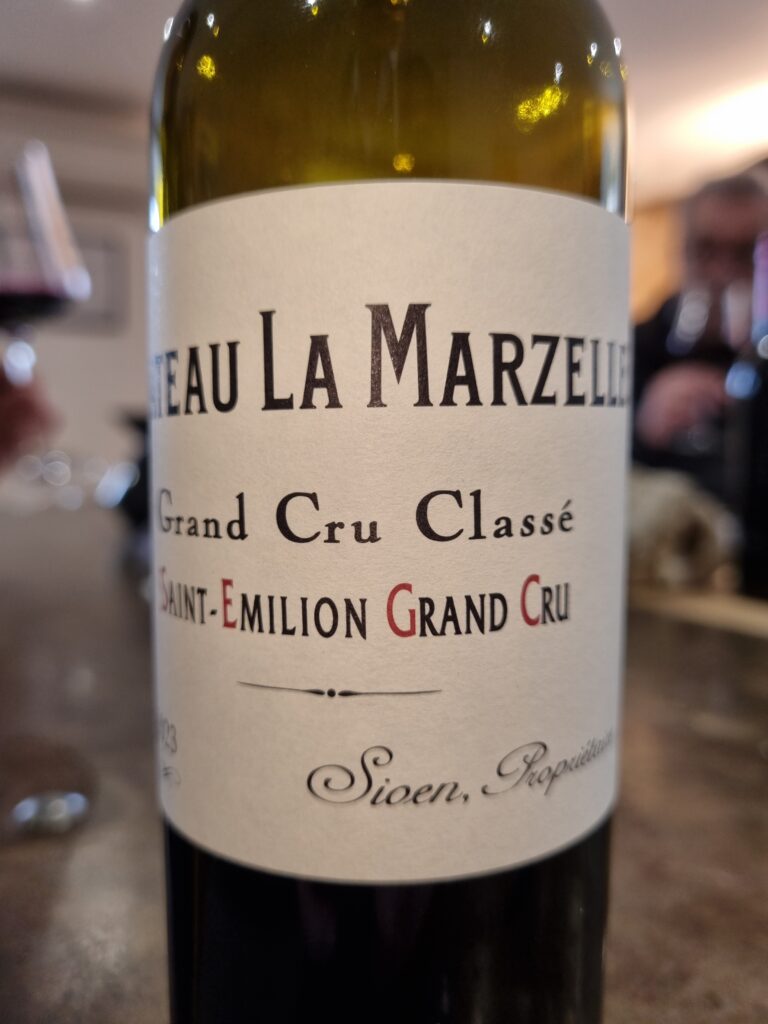
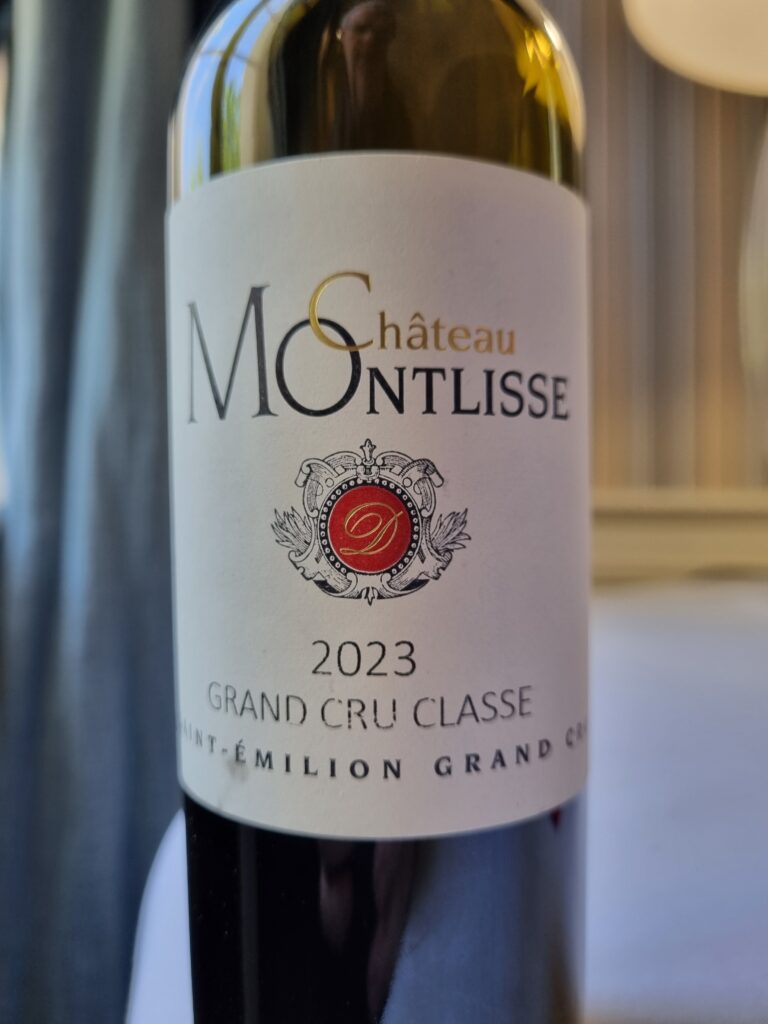
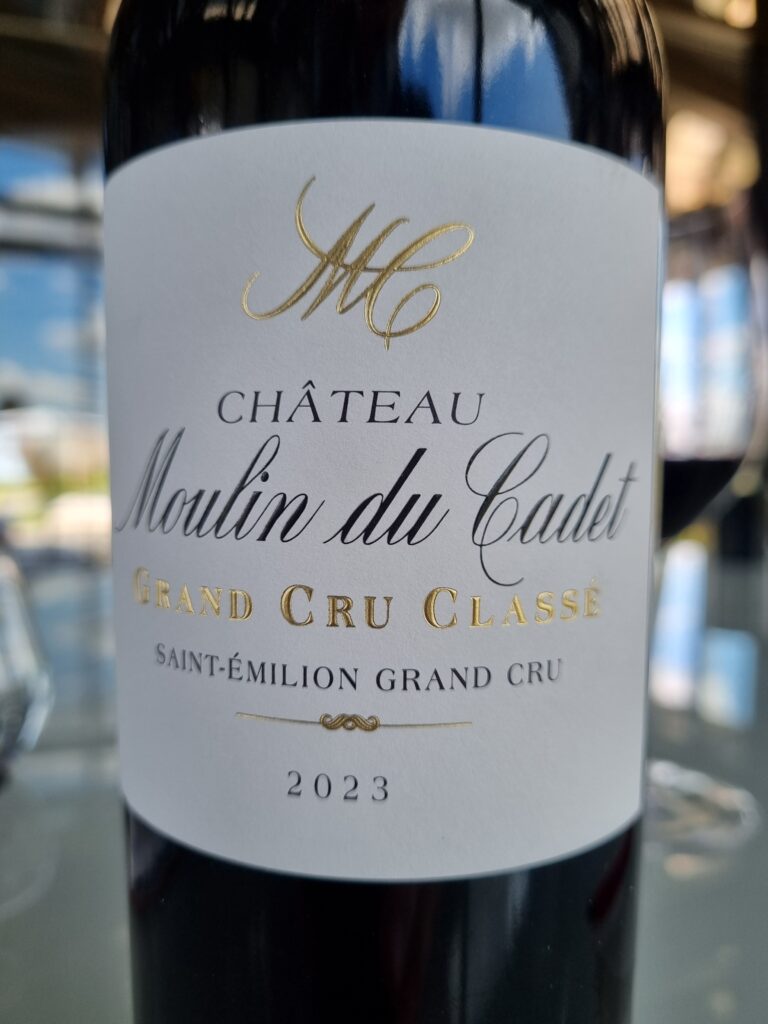
Lamarzelle***
N: Lovely, wafting, old library, ethereal aromas.
P: Supple without being flabby. Discreetly mineral with a mouthwatering impression of sweetness. A thirst-quenching, crowd-pleasing sort of wine. There may be plenty of tannin, but this is essentially a soft and easy-going wine.
Montlisse***
N: Floral
P: Lovely raspberry flavors with a strong mineral finish and above average acidity. This, and lashings of oak, make the wine difficult to taste this young.
Moulin du Cadet***
N: Refined, floral, and enticing. Sprity in a good sense.
P: Lovely development on the palate. Chunky, then going into limestone minerality. Jammy quality and will be enjoyable young. Illustrates the big style of Saint Emilion. Relatively long aftertaste showing some dried and candied fruit flavors. Broad-shoulder. Seems more assertive and alcoholic than most.
This cru classé has less than 3 hectares of vines.
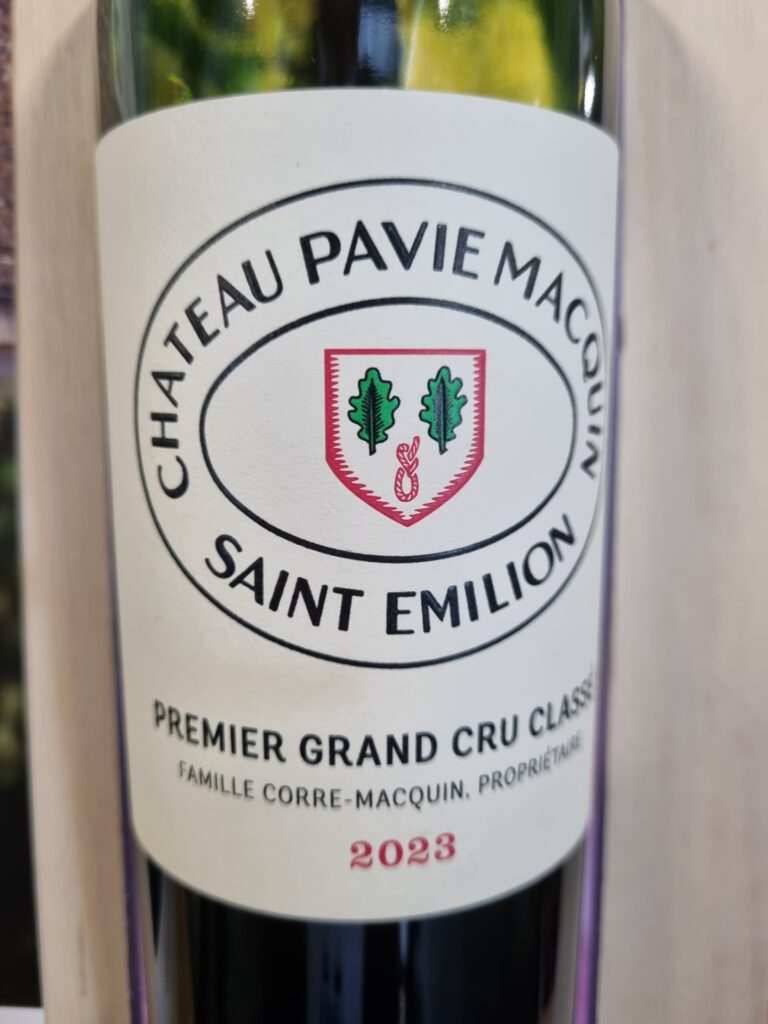
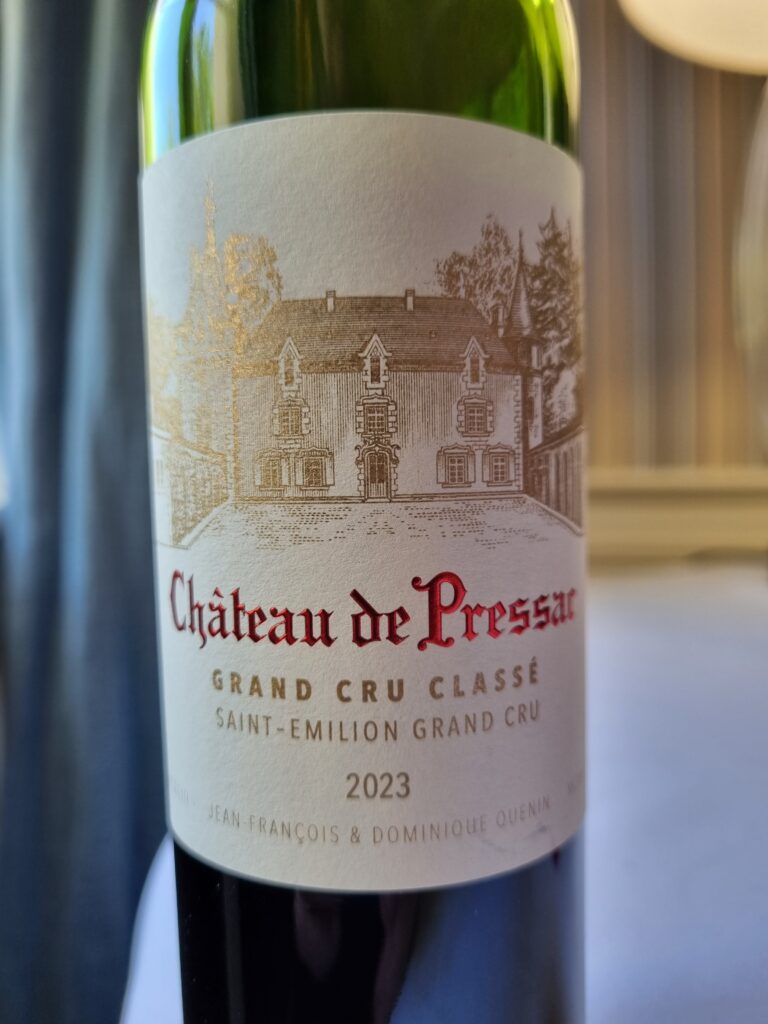
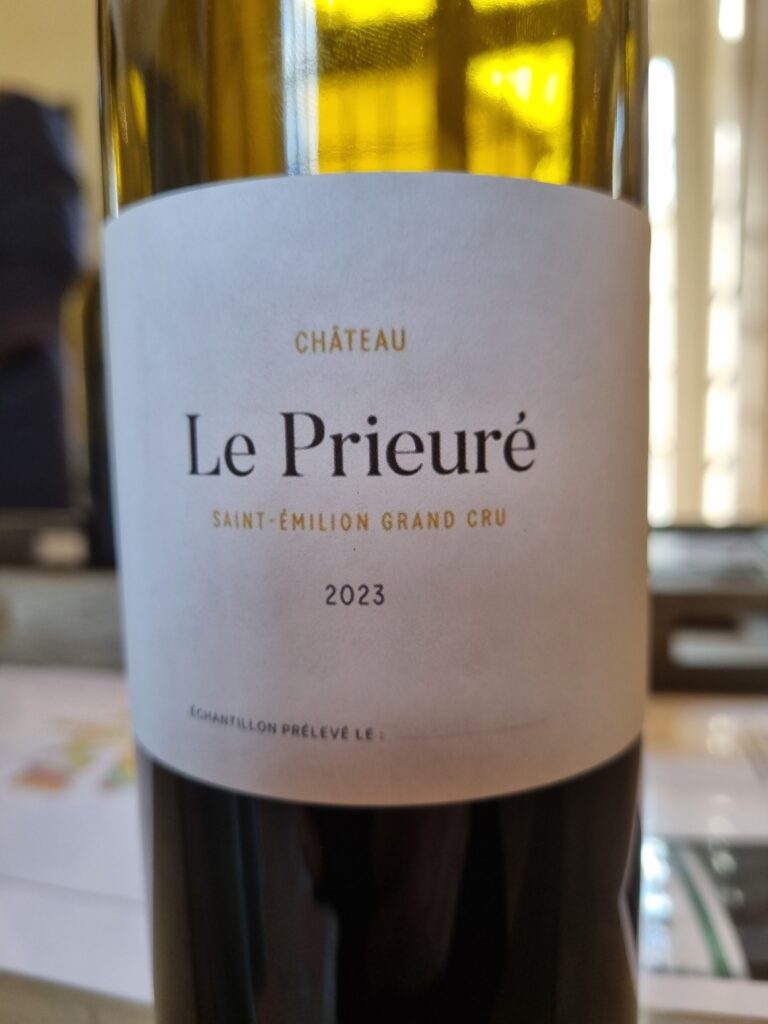
Pavie Maquin****
N: Sweet blackcurrant jam and blackberry liqueur aromas, but without being cloying or artificial. Perhaps a bit simplistic at this early stage.
P: Mouthfilling to the extent that it seems a little flabby at first, but fresh acidity and minerality counterbalance that impression. A successful marriage between richness and minerality. Long fruity finish.
Pressac***1/2
N: Deep engaging Merlot fruit.
P: Big on the palate and showing marked acidity. The wine speads out attractively with fine-grained tannin. There’s minerality on the finish to accompany the heaps of fruit. Very expressive.
Le Prieuré***
N: Nose of peony, rose, cherry, licorice and blossoms.
P: Big, rich, and penetrating with high-quality tannin and a puckery aftertaste. Starts out smooth , then the tannins – the kind that bode well for ageing – coat the mouth. Candied fruit (cherry, strawberry) finish.
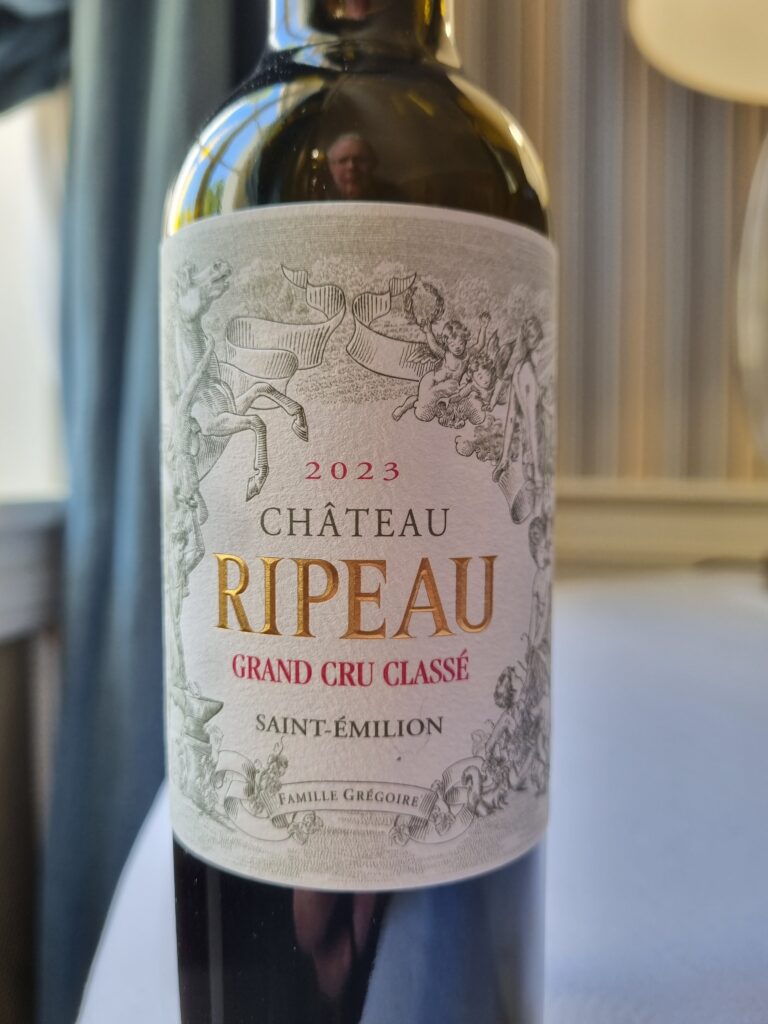
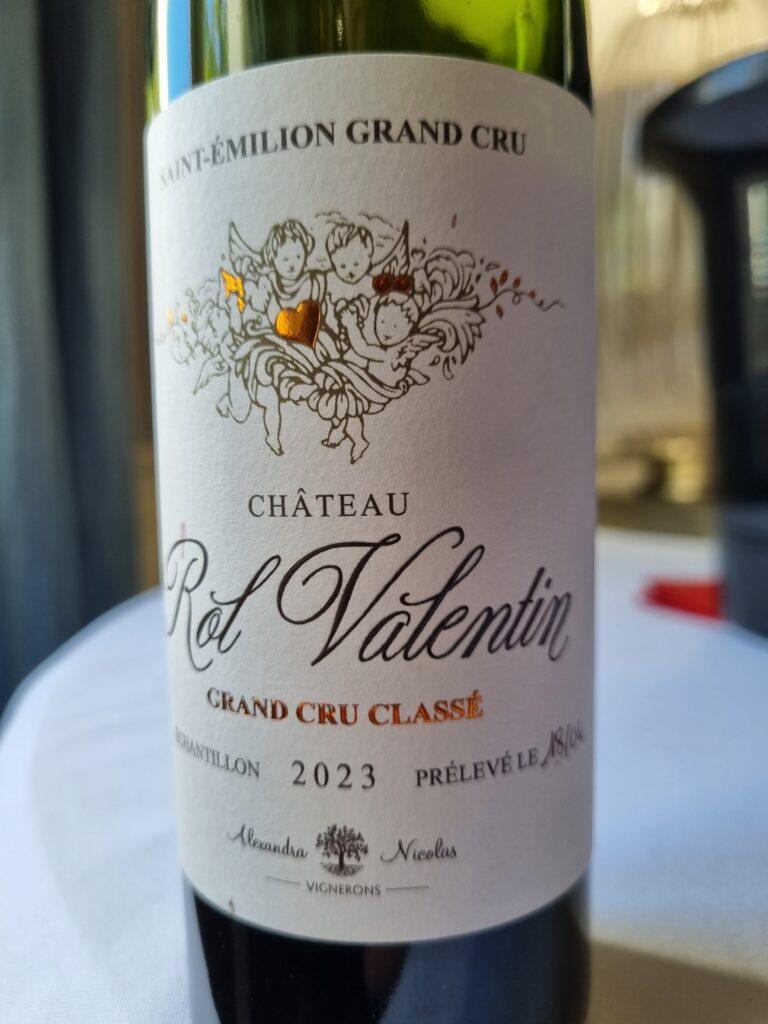
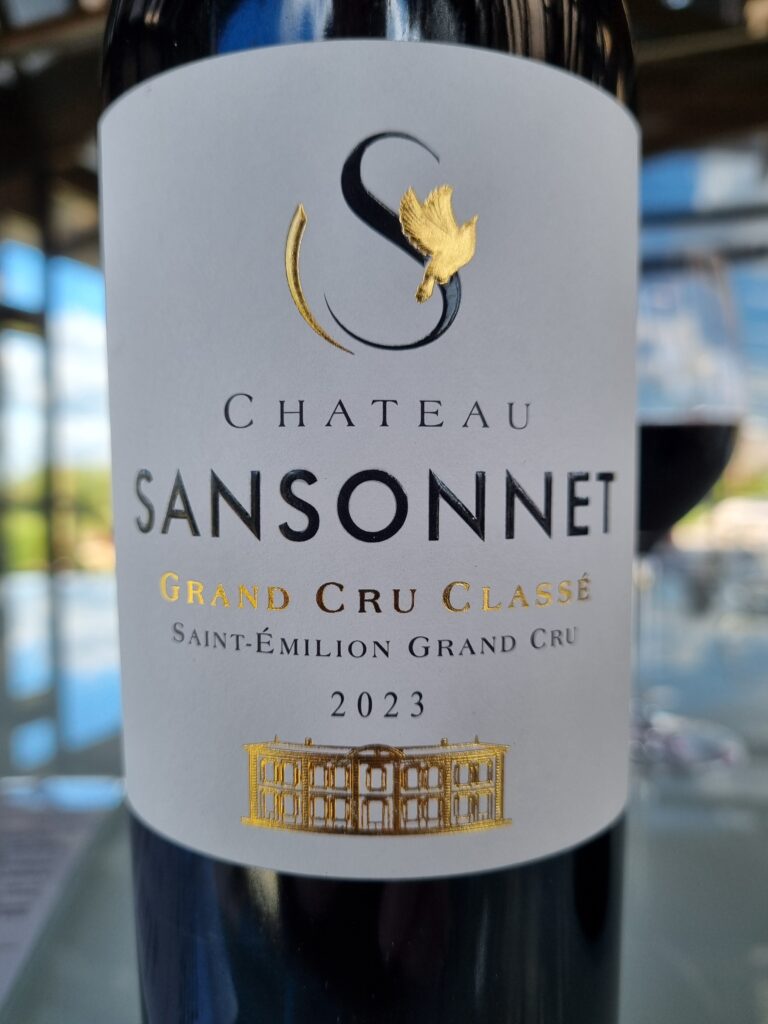
Ripeau***1/2
N: Raisiny and candied fruit aromas along with a perfumed talc/cosmetic component.
P: Strong, virile wine that develops very well on the palate into a long finely-textured aftertaste. Great tannin. Meaty, but fine.
Rol Valentin**
N: Unusual, stands out in the line-up. Old library aromas along with overtones of leather, licorice, and flowers.
P: Big with some alcohol and leather aromatics coming through on the finish, which is harsh. Overdone. A disappointment to me who has come to appreciate this estate. Deserves to be retasted.
Sansonnet***
N: Funky wildberry, leather, coffee and chocolate notes. Sweet and deep.
P: Marked alcohol and acidity. Big and generous, almost New World in style. 87% Merlot, but seems more like Cabernet. A bruiser.
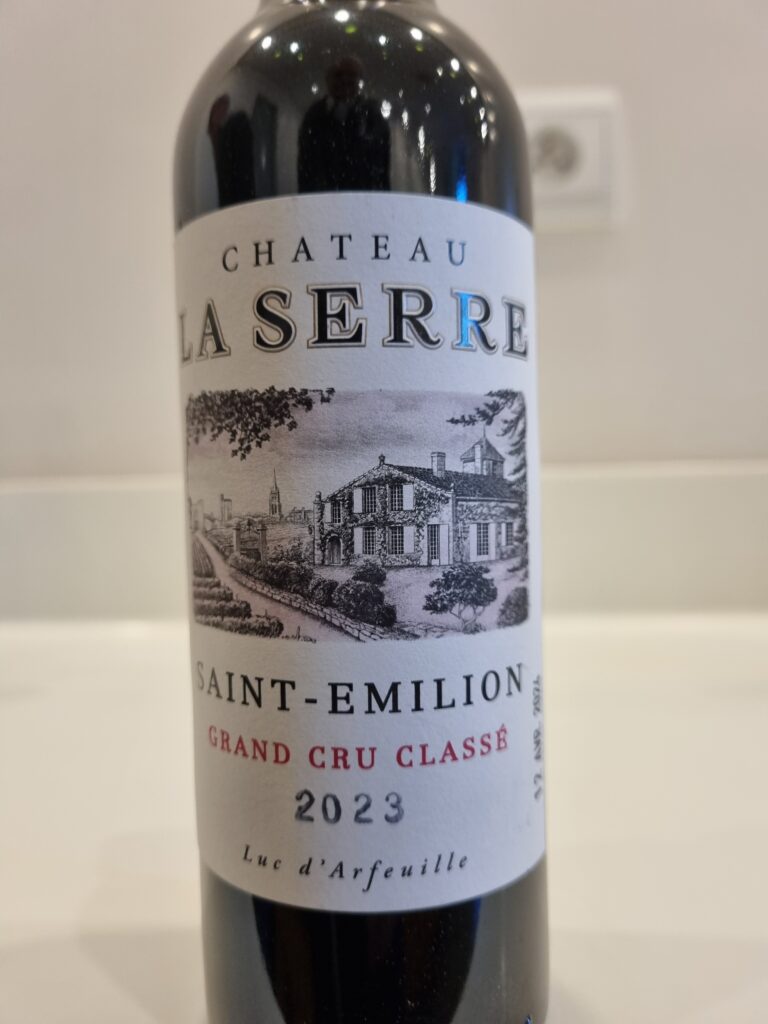
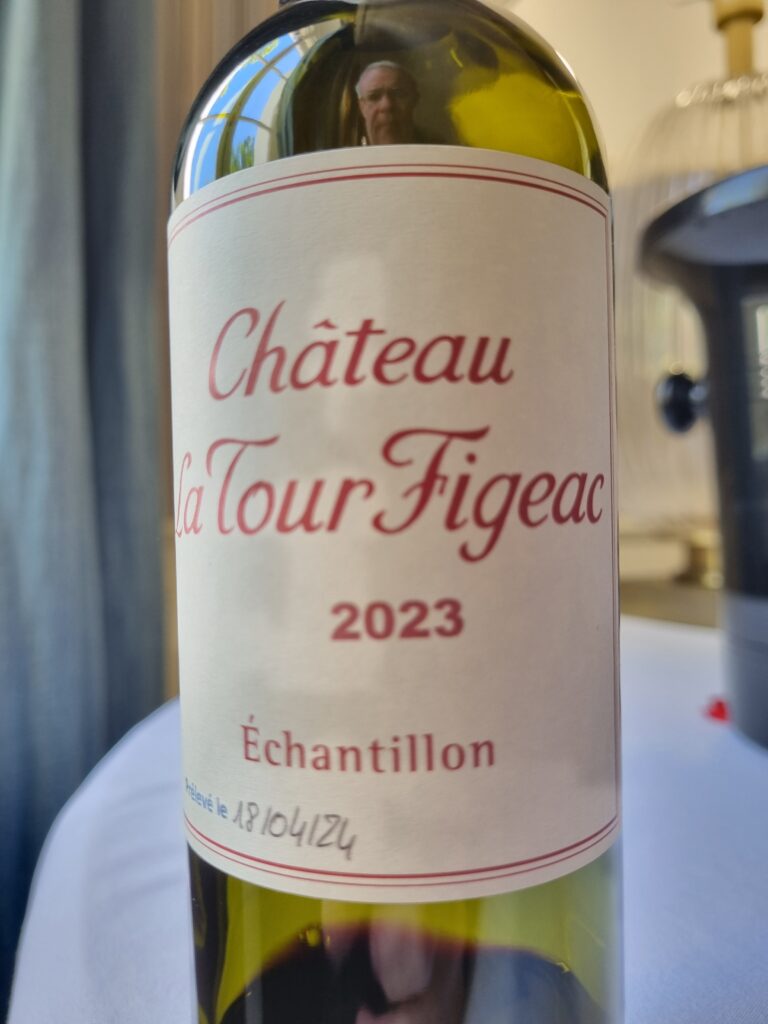
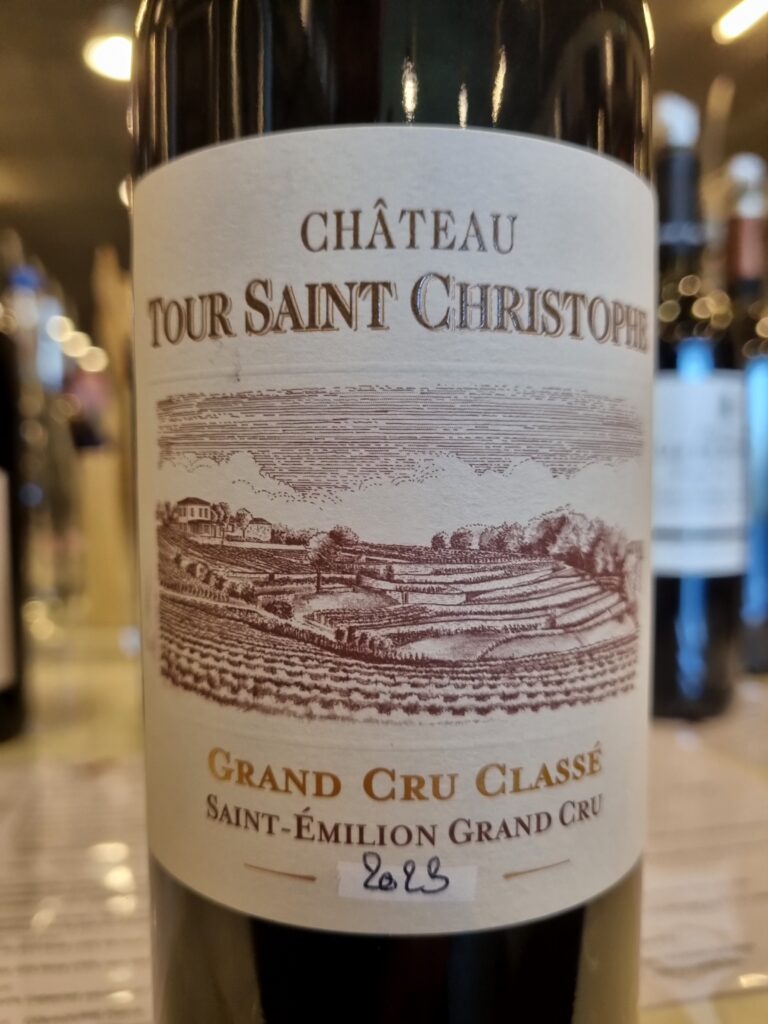
La Serre***1/2
N: Straightforward and not very pronounced, but fresh with underlying dark fruit (blackberry jelly), roasted, and humus aromas.
P: Rich, deep, and luscious. Fresh and fruity with good tannic structure, acidity, and limestone minerality. The finish features velvety fine-grained tannin.
La Tour Figeac****
N: Sweet and very attractive raspberry and chocolate aromas. Quite seductive.
P: The aromatics on the nose follow through beautifully on the palate. Velvety tannin. Such a smooth, silky texture! Good acidity and great potential.
Tour Saint Christophe***1/2
N: Muted forest fruit aromas with some vanilla notes.
P: More expressive on the palate and unexpectedly delicate. Soft mouthful and finely-textured tannins, but a little weak on the middle palate. Fresh with some menthol on the long aftertaste. Well-made, restrained, and quite good.
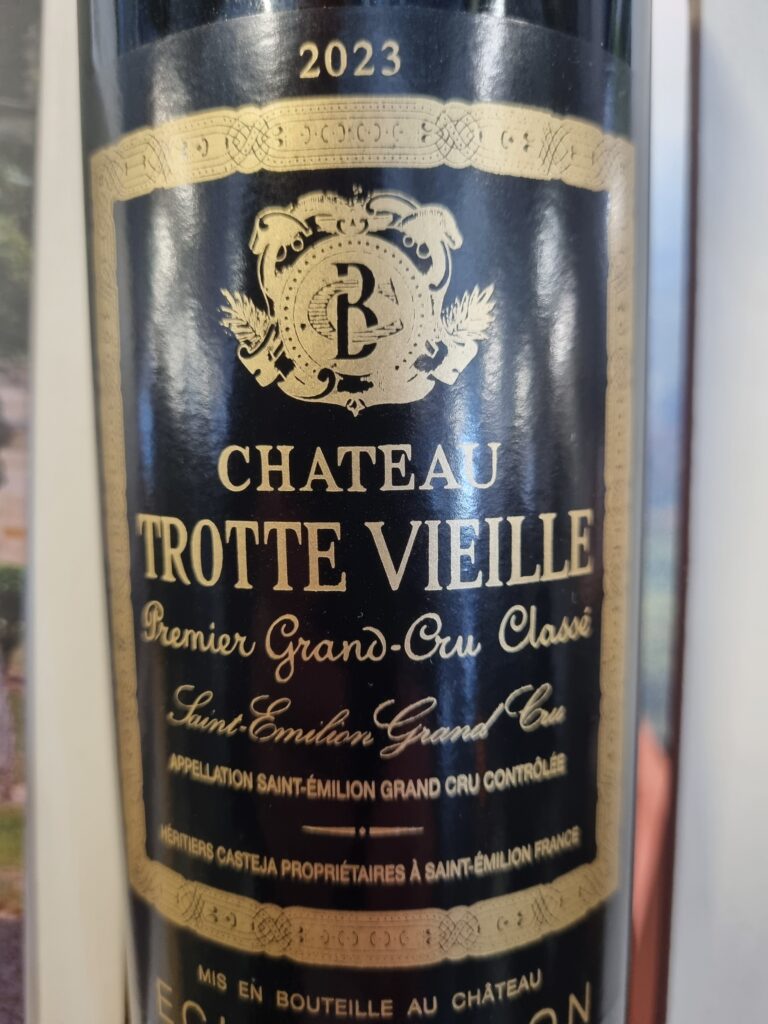
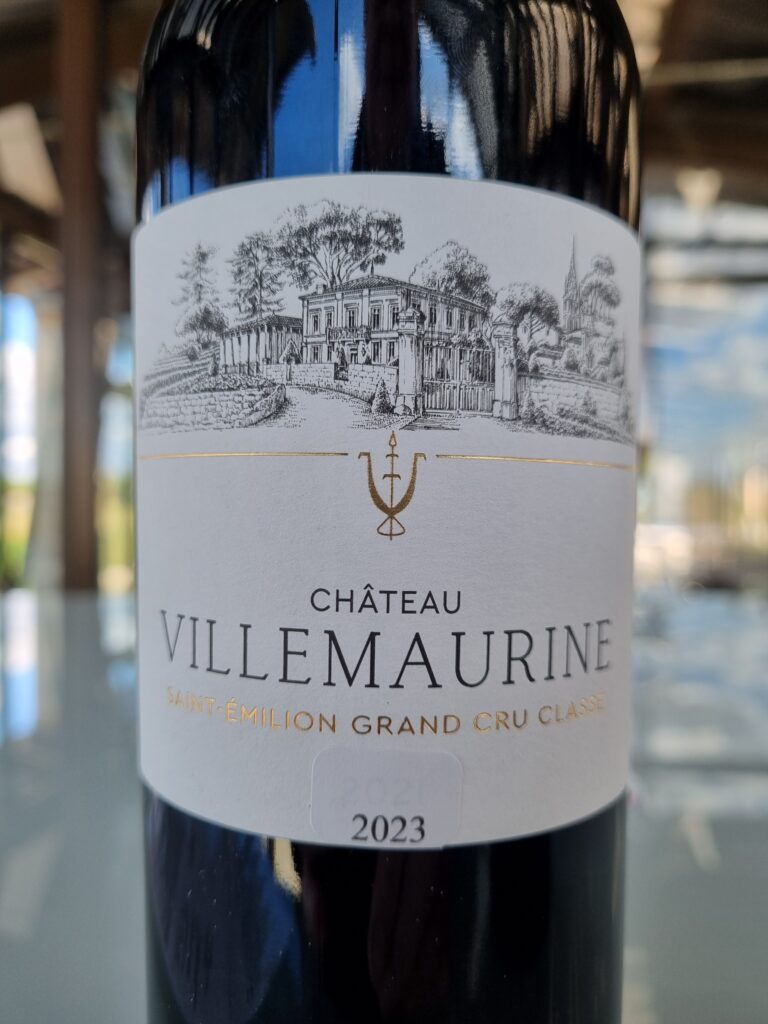
Trottevieille***1/2
N: Cherry-vanilla nose.
P: Well-structured and classic with medium body. Soft, rich, and round going gracefully into a long cool aftertaste showing fine-grained tannin. Well made. An exemplary Saint Emilion.
Valandraud***1/2 – **** (label not shown)
N: Smoky, fruity, bacon aromas. Classy and restrained.
P: Raspberry jelly, seemingly austere aftertaste, but this bodes well for long ageing. Tannin with lovely texture. Far-removed from the garagiste style of years ago. Excellent finish.
Villemaurine***
N: Dark brooding fruit with some chocolate overtones.
P: both rich and lively due to marked acidity. Some herbaceousness. Tight and dry on the finish. Archetypal vin de garde.
POMEROL
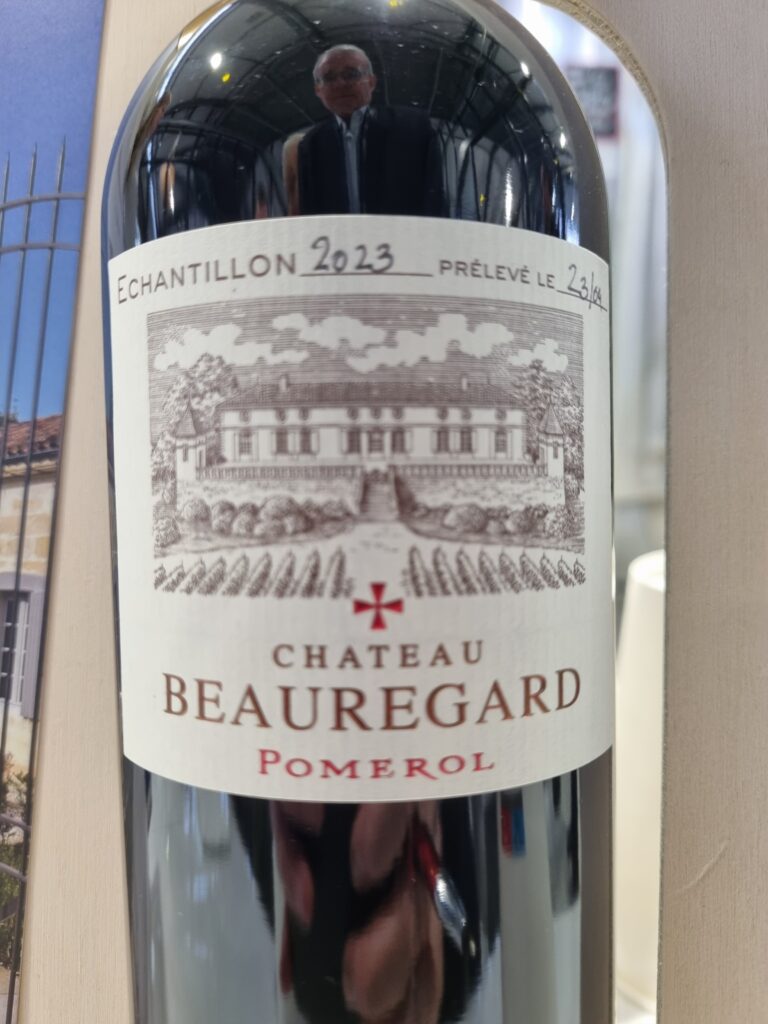
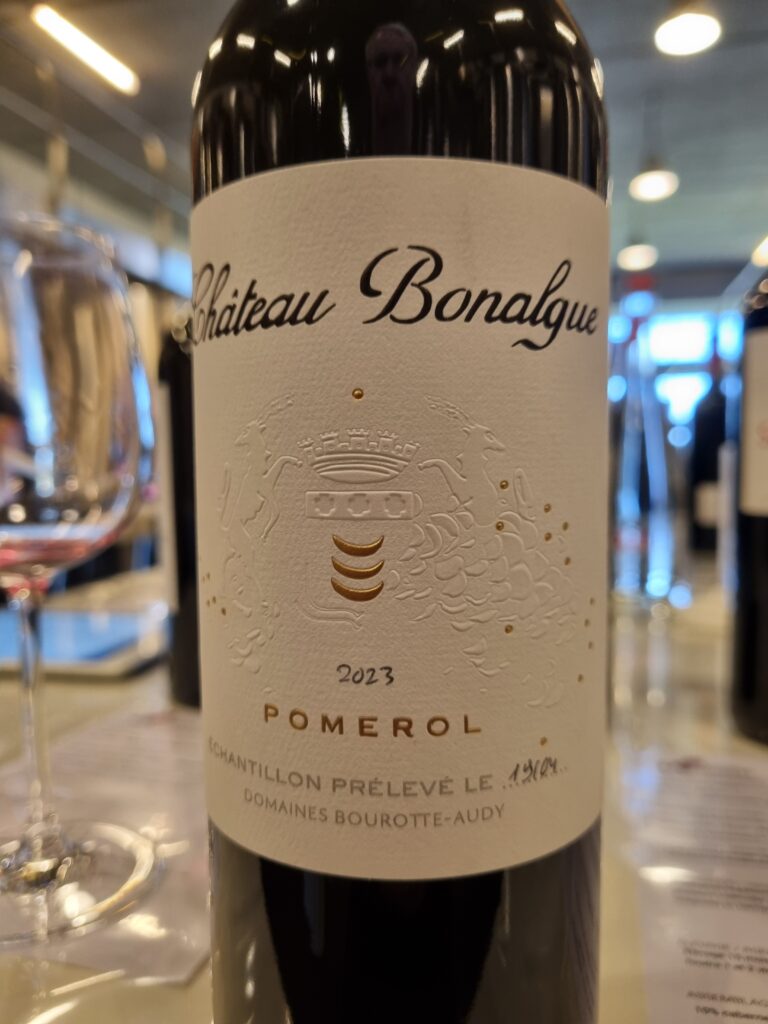
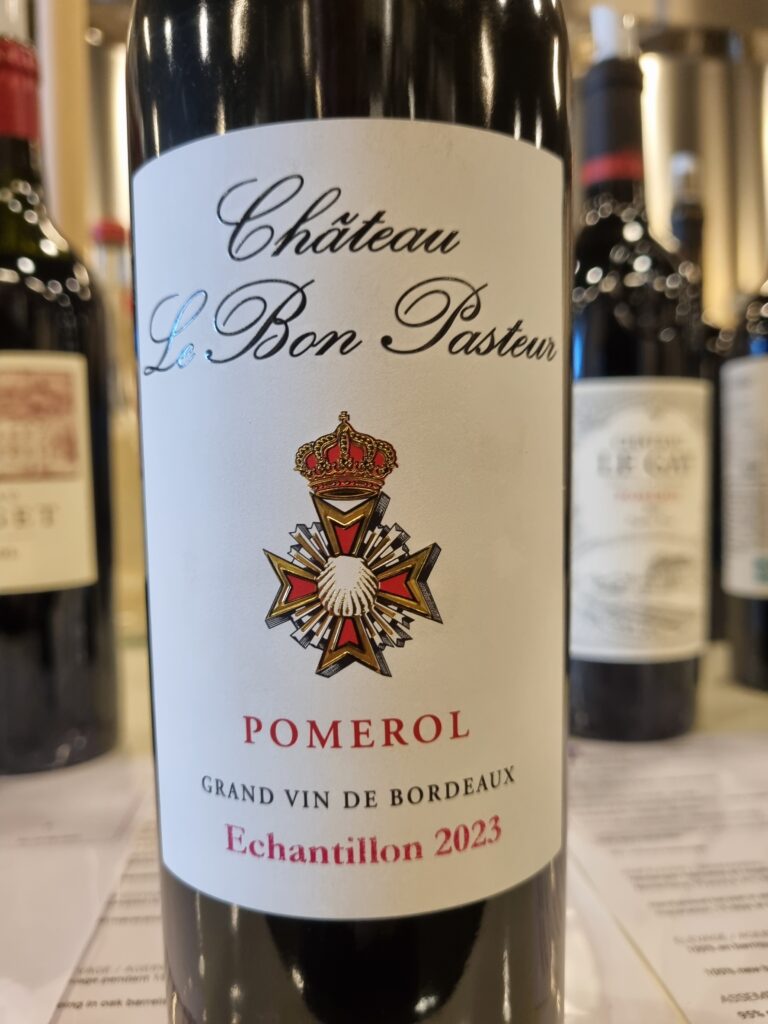
Beauregard***
N: Intriguing, worthwhile, and classy with subtle hints of incense and mint.
P: Good mouth feel. Typical of its appellation. Strong and solid with some alcohol coming through. Seems just round and simplistic on entry, but features some of those unique rubbery Pomerol tannin on the aftertaste.
Bonalgue***
N: Fresh, natural, simple medley of red and black fruit not hidden by anything else. However, lacks depth. All upfront.
P: Rich, but a bit flabby and one-dimensional. Strong oak does not overpower the linear progression towards an honest, forthright expression of Pomerol Merlot. Good value for money.
Le Bon Pasteur***1/2
N: Spicy, subtle blackberry notes on the temporarily subdued nose.
P: Plush, velvety textbook Pomerol. Medium body and very fresh. Balanced and elegant rather than powerful. Will age well. The new oak on the finish should be reined in over time.
This is a good score for a wine that was, years ago, a poster child for “Parkerization”.
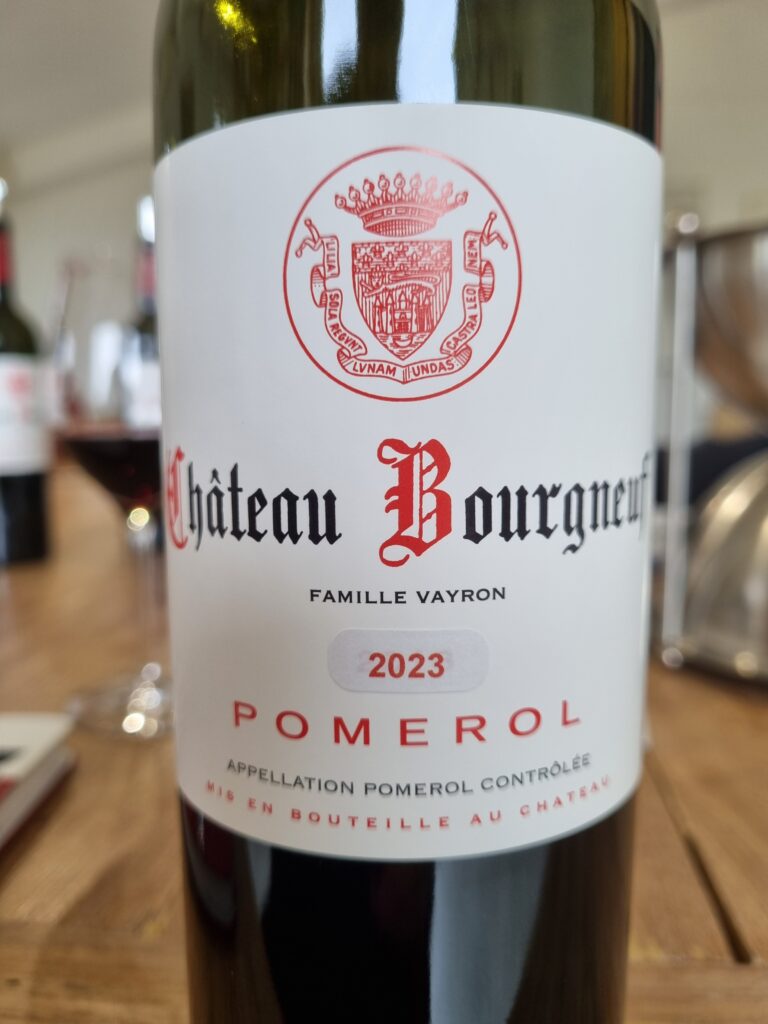
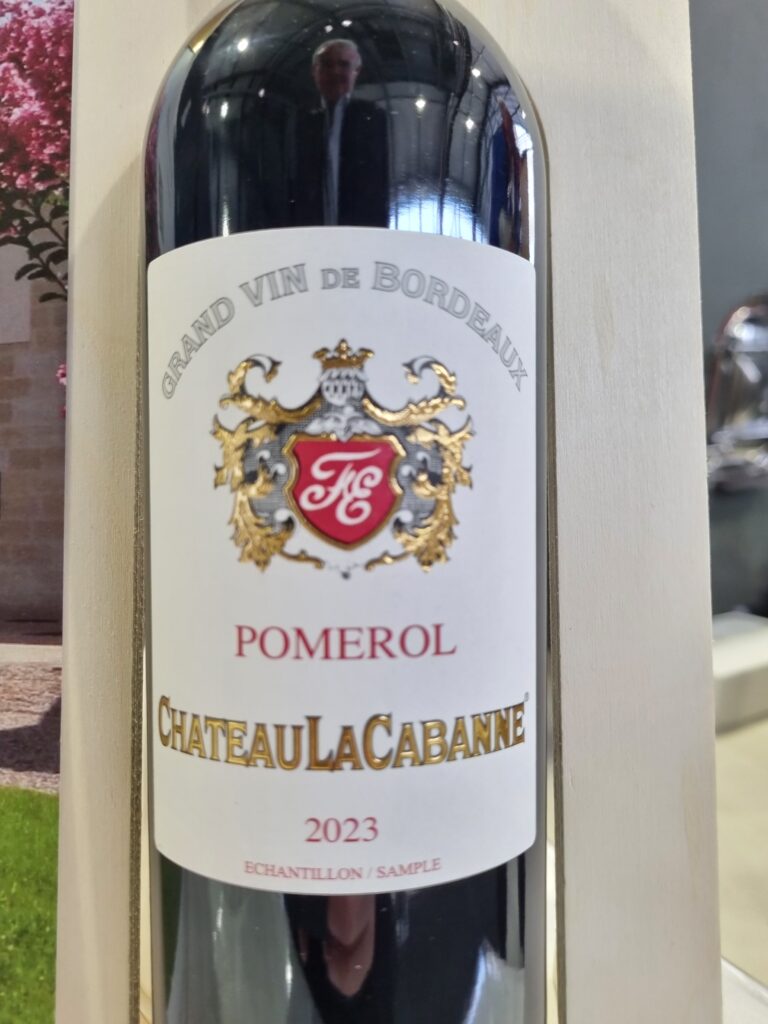
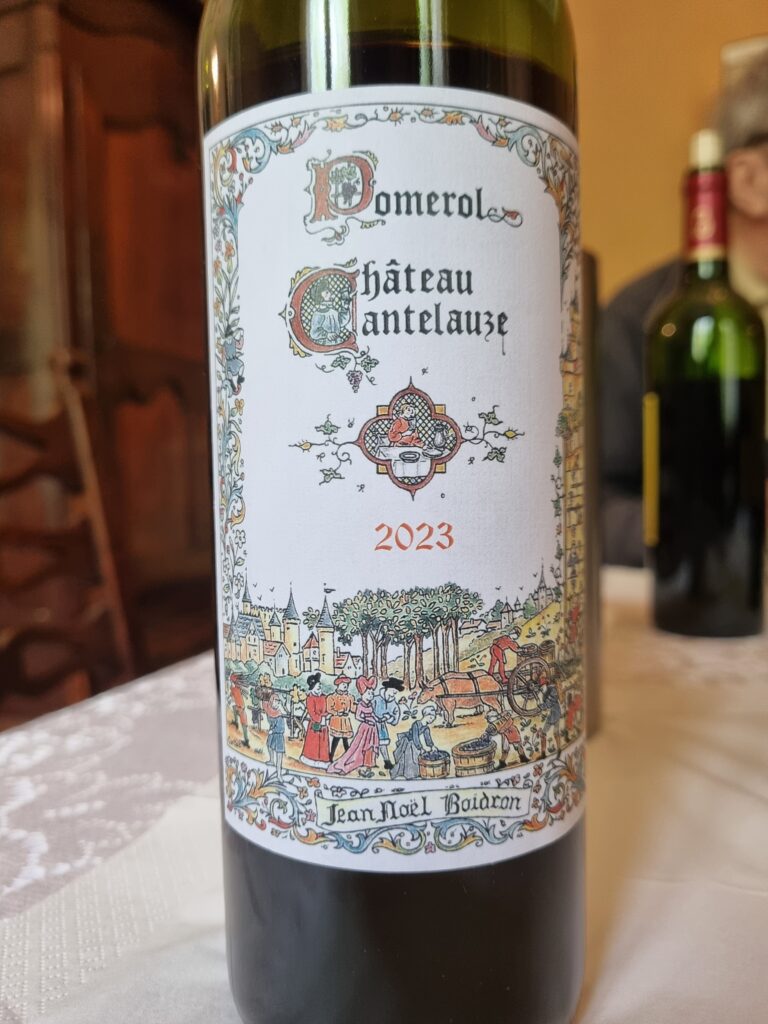
Bourgneuf***1/2
N: Shy, but ripe Merlot showing through with hints of violet.
P: Rich, even thick on the palate, but more acidity than in recent vintages. Round, full-bodied, with toasty oak.
La Cabanne***
N: Coffee, vanilla and fresh dark black fruit.
P: Middle-of-the-road Pomerol with good acidity and candied red fruit flavors. A little short on the aftertaste, but the tannin is fine.
Cantelauze***1/2
N: Slightly herbaceous, but this does not detract from the seductiveness.
P: A serious Pomerol. Compact with an assertive finish to match the richness. Velvety texture and a very long aftertaste.
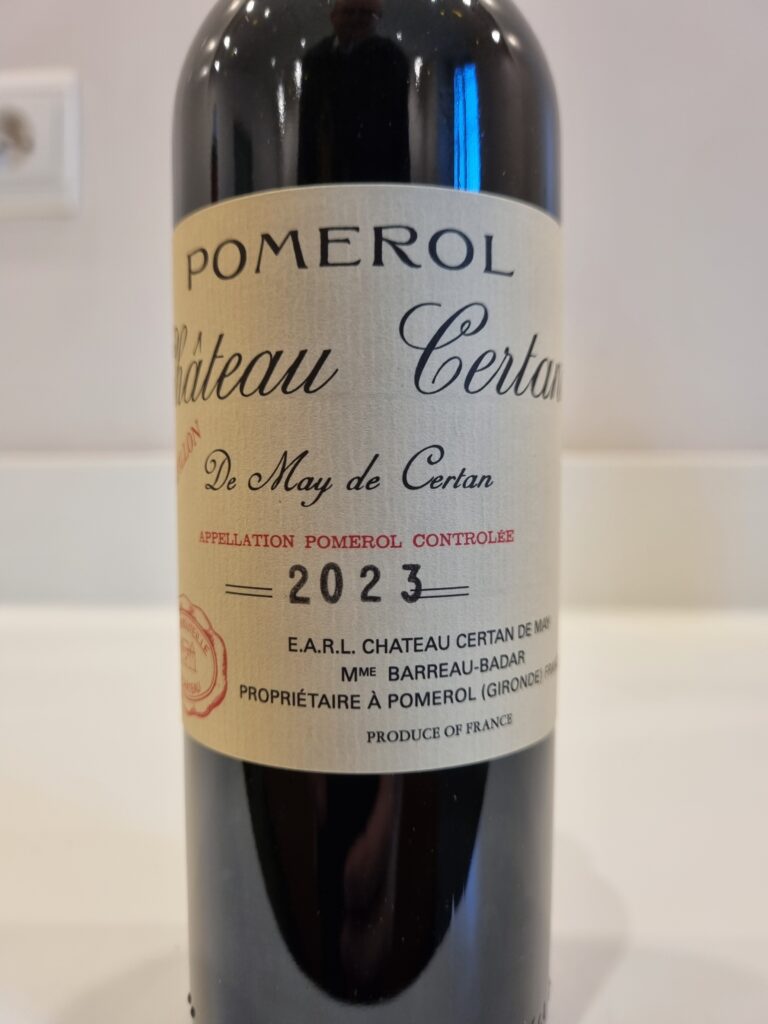
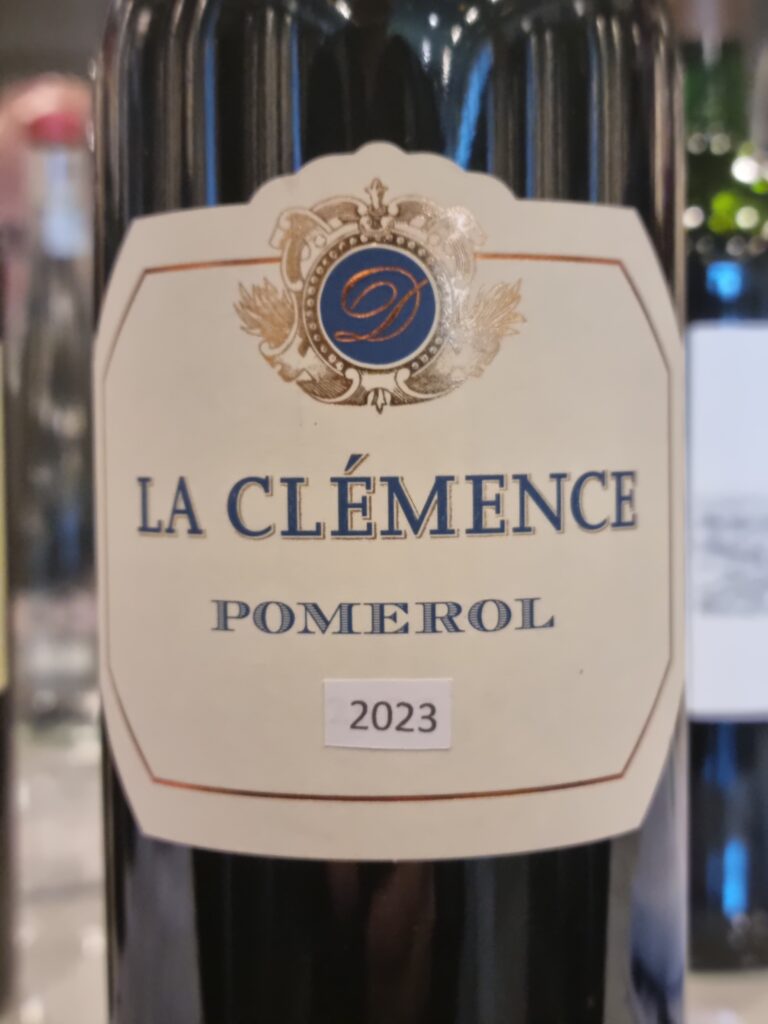
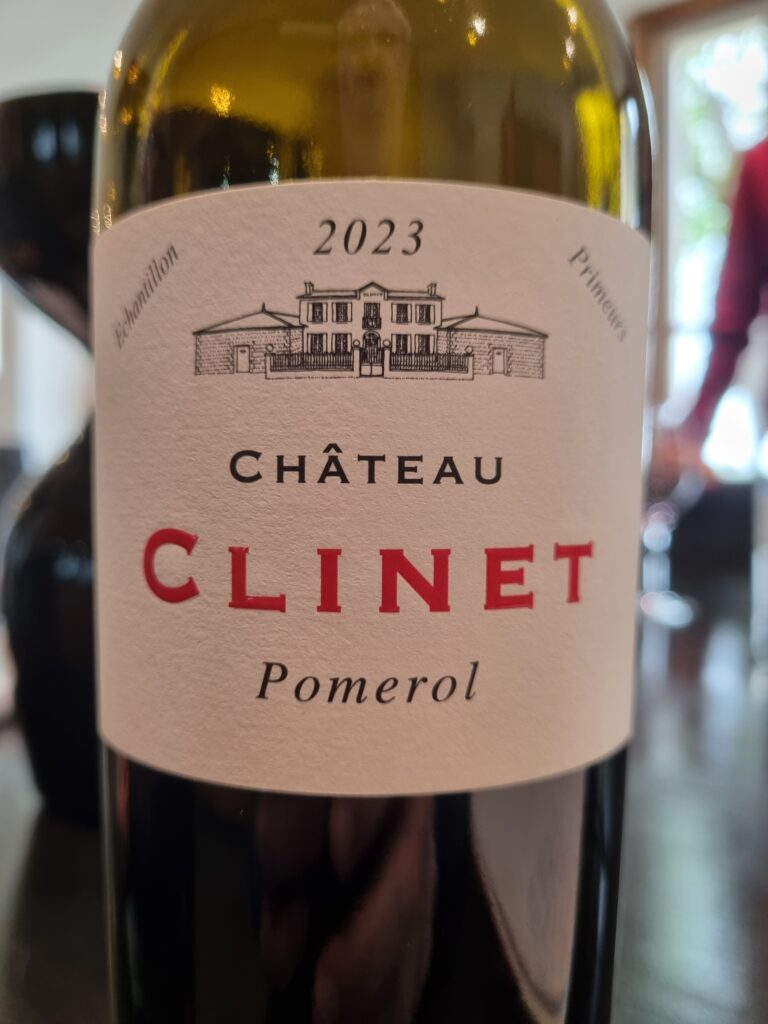
Certan de May
N: Cellar aromas along with currants and dried fruit and oak. Slightly cosmetic.
P: Thick, rich, and tangy, but somewhat disjointed. Not showing especially well at this time. Seems to go from round into acidic, with a diluted quality. Not rated at this time.
La Clémence*** – ***1/2
N: Discreet sweet wildberry aomas coupled with those of freshly-roasted coffee beans.
P: Round, soft, and relatively simple to start off with, but with a good follow-through in a style that will appeal to everyone. Licorice and black fruit flavors. Typical of its appellation with what appears to be too much oak on the aftertaste at this time. Still, well-made and with a finish showing excellent tannin.
Clinet ****
N: Luxurious dark fruit, white pepper, coffee and licorice notes along with subtle blossom aromas.
P: Medium-heavy mouth feel, rich but finishing dry and mineral. Truffle flavors and some spice. Blackberry on the tail end. Poised and graceful with good acidity.
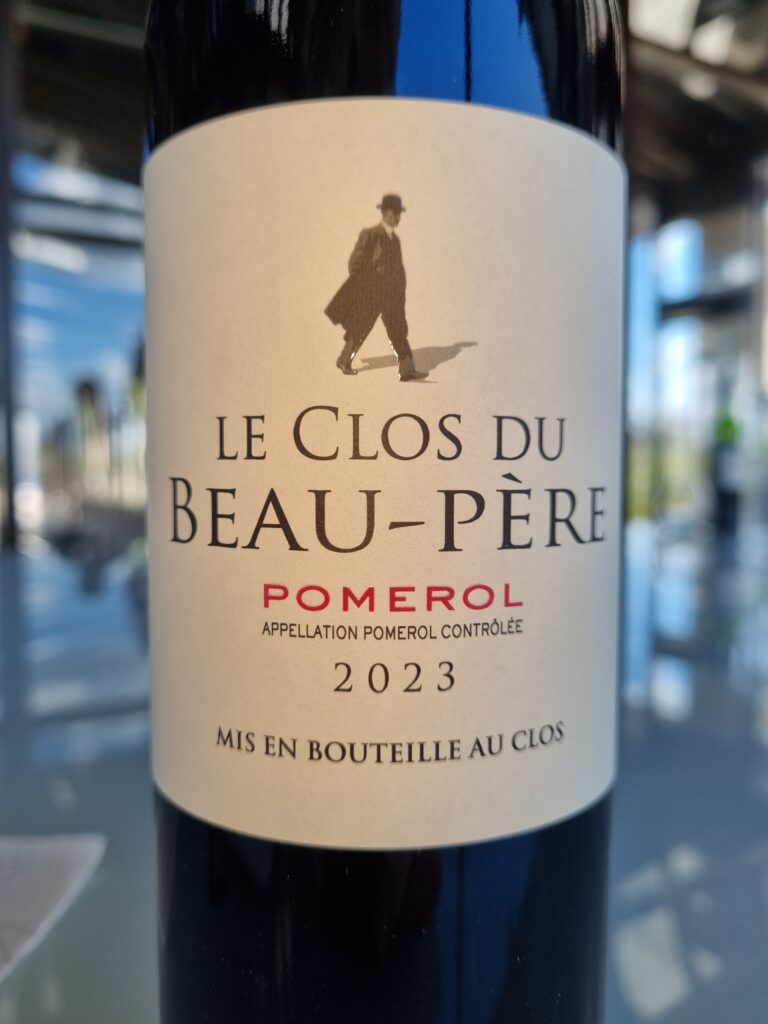
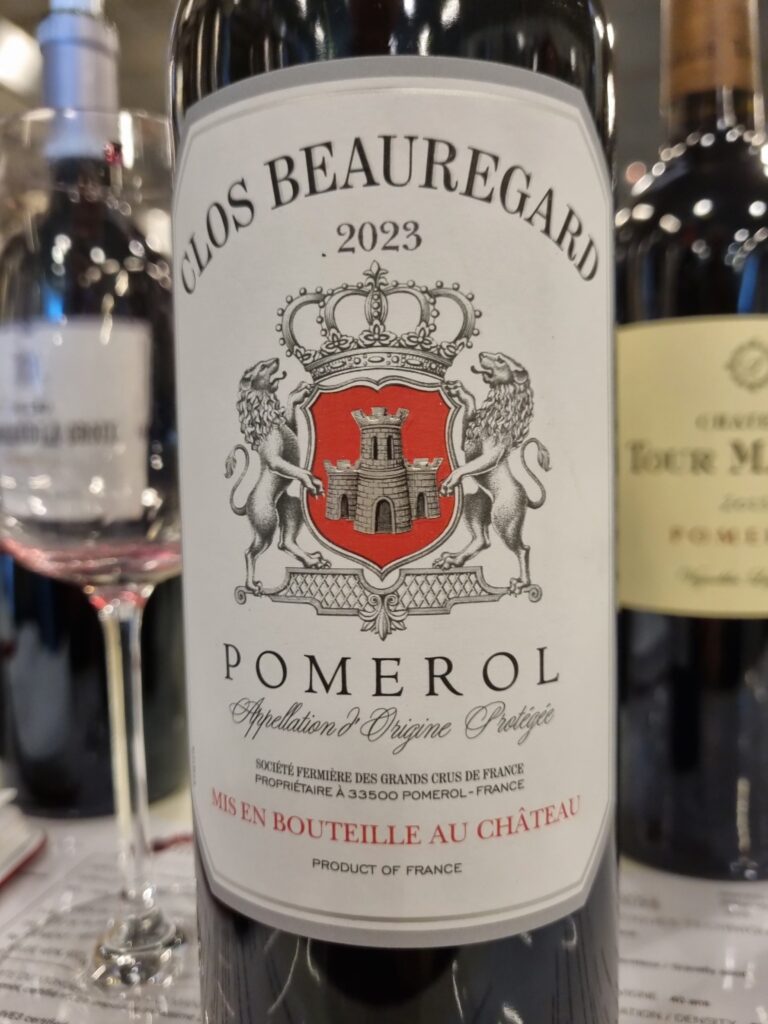
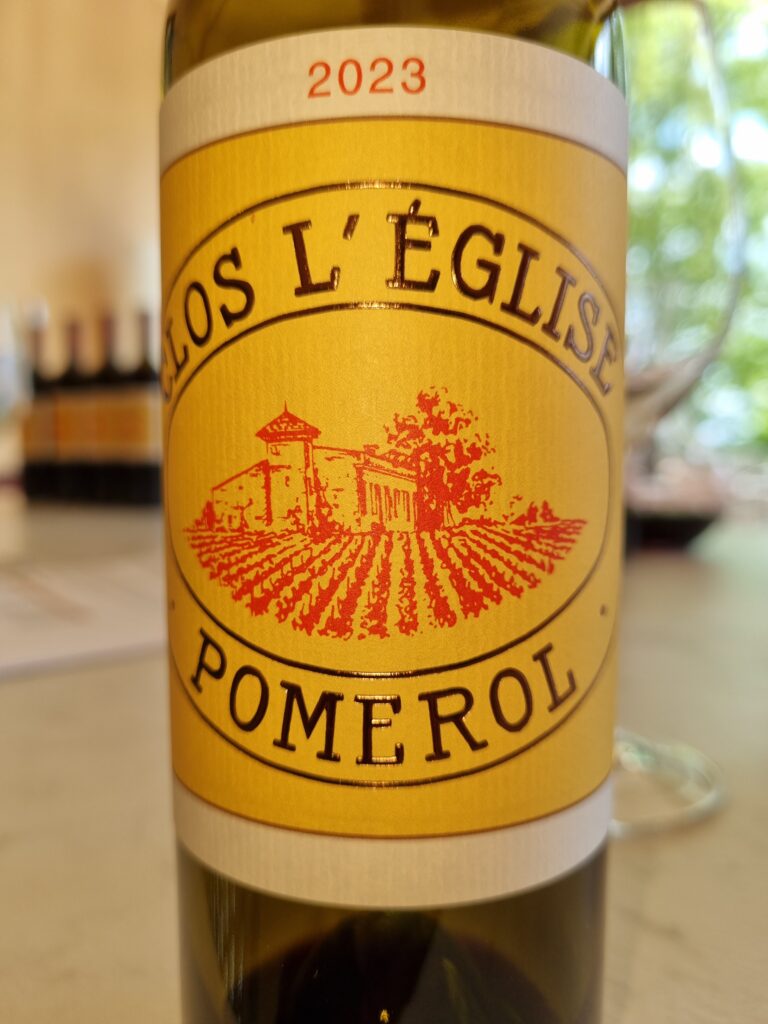
Clos du Beau Père***
N: Chocolate and very ripe fruit (cherry) aromas, as well as slightly cosmetic ones.
P: At the same time a rather tight, but easy-to-drink Pomerol with tannin to back up the inherent roundness. Succeeds in walking the fine line between flashy and serious.
Clos Beauregard***
N: Almost syrupy nose that seems just post-fermentation with primary fruit aromas accompanied by caramel/vanilla overtones.
P: Plenty of body and a flavor that spreads out on the palate. Perhaps a little one-dimensional, but very enjoyable. The famous Pomerol tannin is currently melding with the oak.
Clos l’Eglise***
N: Lovely, fresh, and direct with overtones of berry bushes.
P: Chewy texture with medium-heavy mouth feel. Muscular tannin. Upper-middle level Pomerol with a fresh grapey quality along with marked oak on the finish that obviously needs time to integrate.
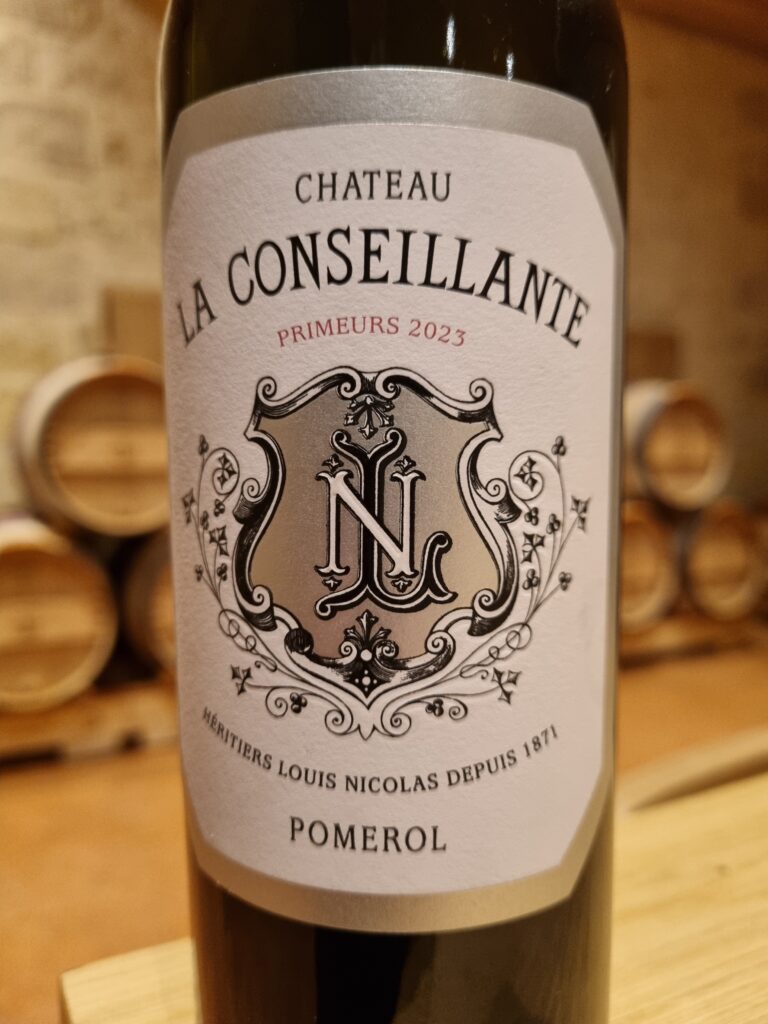
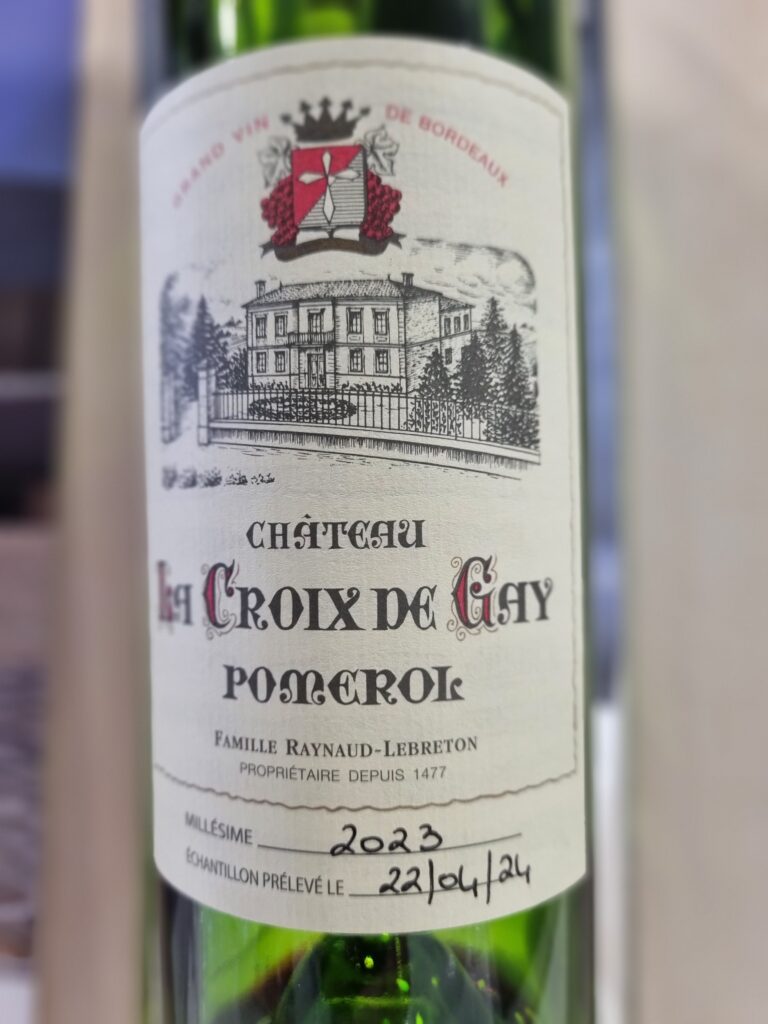
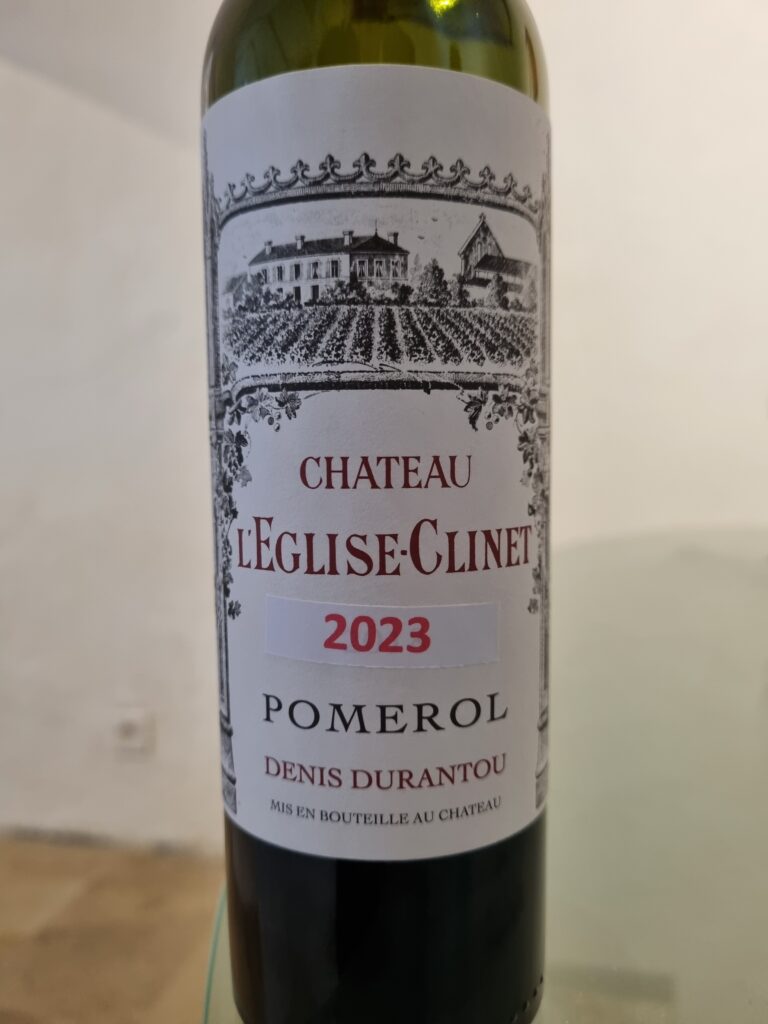
La Conseillante****
N: Expressive nose of violet, peony, and candied black fruit.
P: Plush, but with a welcome edge. Fine acidity to go with the chateau’s wonderful creaminess. Bright pure fruit. While not mouth-filling, the wine spreads out seamlessly on the palate showing first-rate tannin. The vanilla aromatics are due to the terroir as well as oak ageing.
Croix de Gay**
N : Green, earthy, rustic.
P: Aromatics on the nose follow through on the palate, which is not up to the standard of other Pomerols tasted side by side. Time will undoubtedly improve this wine that did not show well on the day it was tasted. Needs to be re-evaluated.
Eglise Clinet****
N: Fine cherry-vanilla overtones to the fresh fruity nose.
P: Cushiony, but not at all flabby. Excellent texture and softly penetrating aftertaste. The tannin is of the utmost quality. Sophisticated, understated, and utterly delicious.
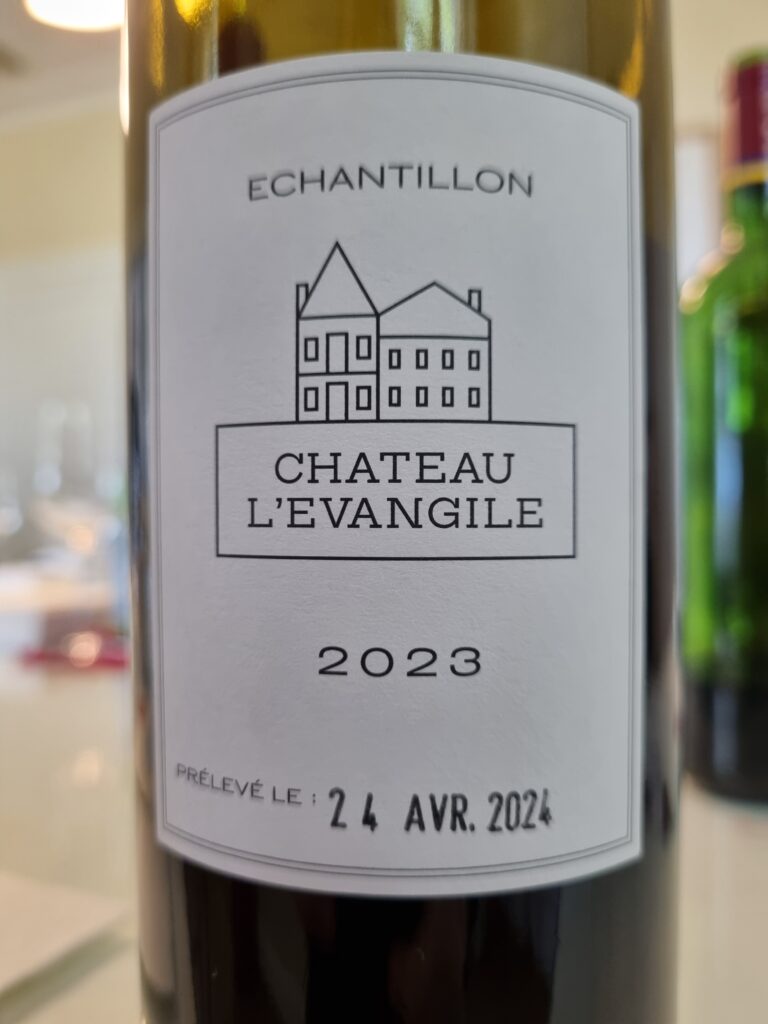
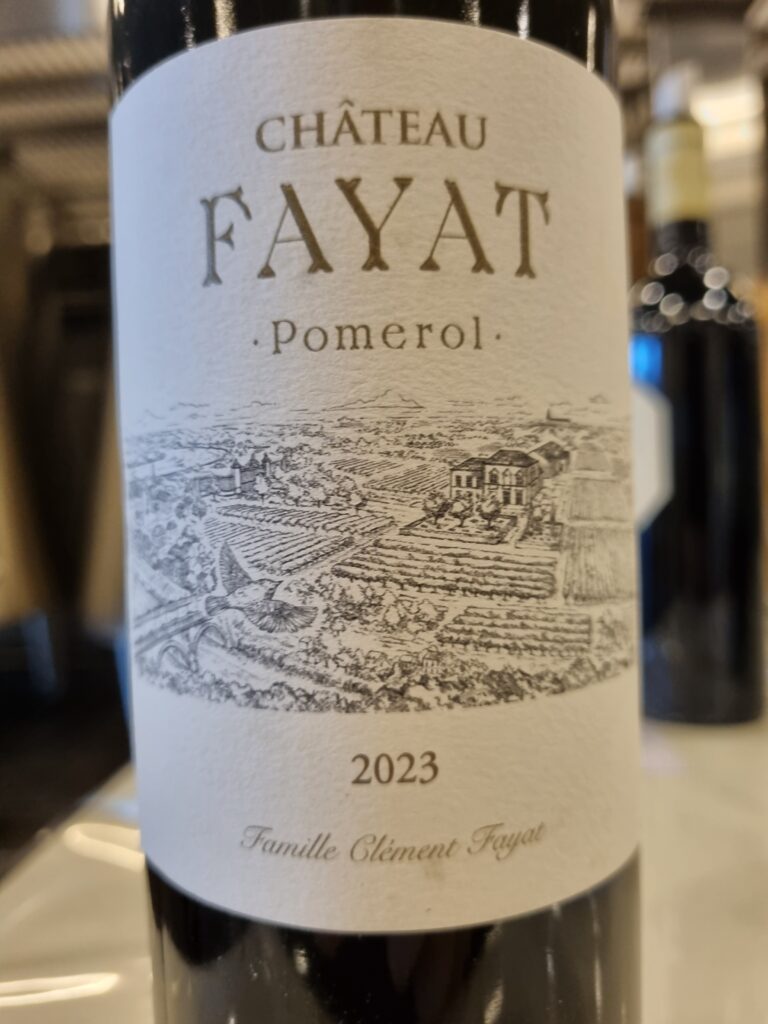
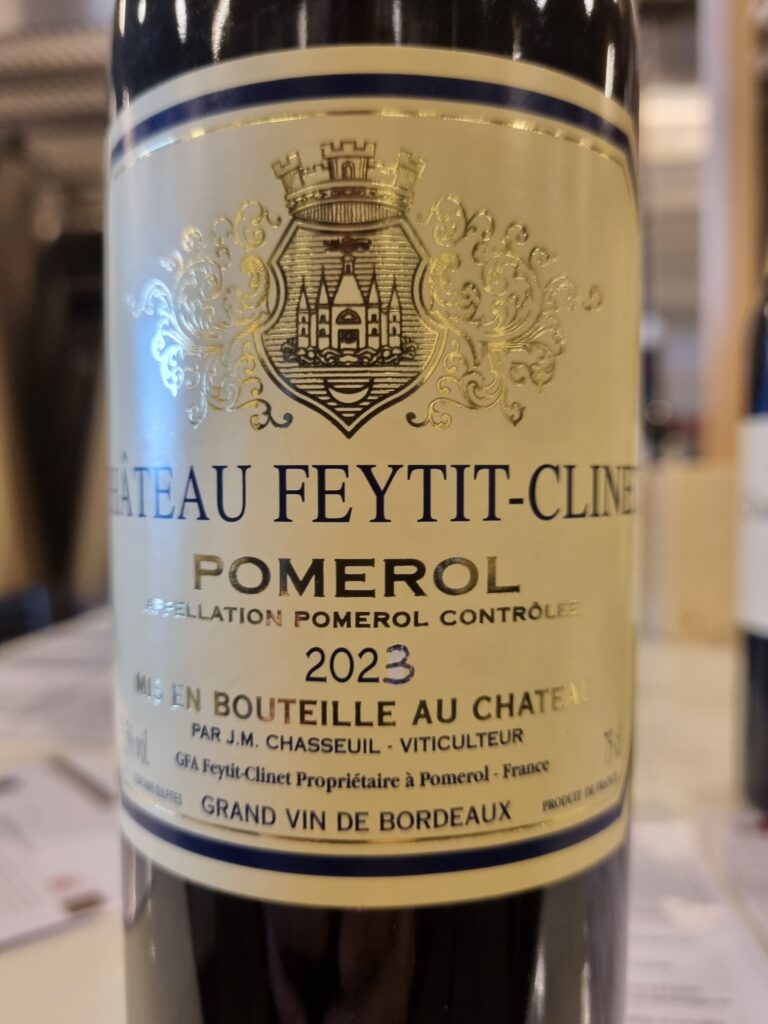
Evangile****
N: Floral aromas, especially violet.
P: Apotheosis of Merlot, with satiny tannin. Very long, incredibly fresh aftertaste with blueberry flavors. Good acidity and an overall impression of freshness. Great texture. Subtle minerality on the finish.
Fayat **1/2 – ***
N: Restrained low-key sweet fruit (blueberry) aromas.
P: Structure and tannin more reminiscent of a Saint Emilion. Starts out big, then drops precipitously. Solid, but clearly not in the top tier.
Feytit Clinet ***
N: Ripe brambly nose. Agreeably green and accompanied by good toasty oak.
P: Medium-heavy mouth feel. Fresh and round, with heaps of oak on the aftertaste. Great balance and considerable finesse. Fluid, with medium body and a fine black fruit finish.
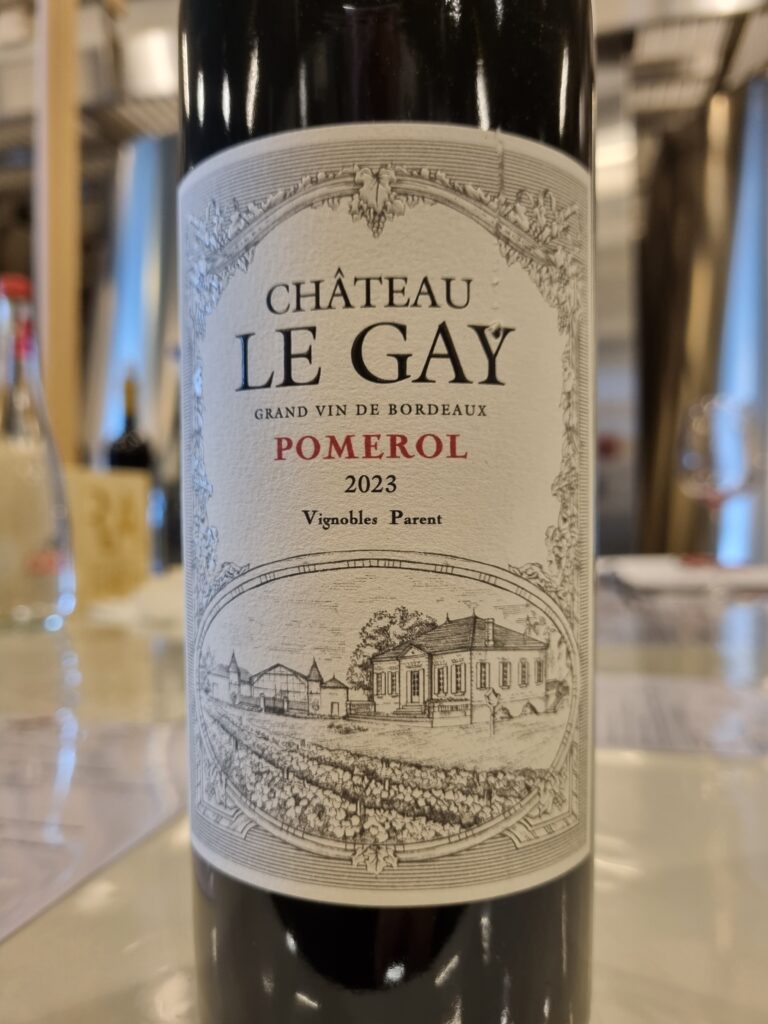
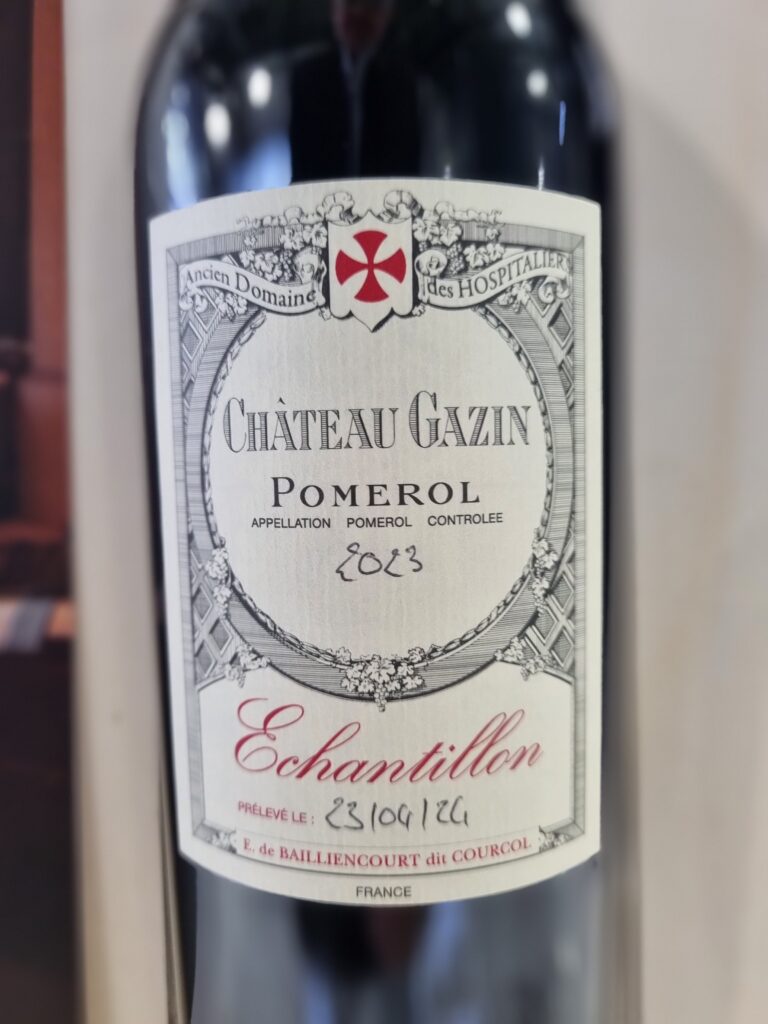
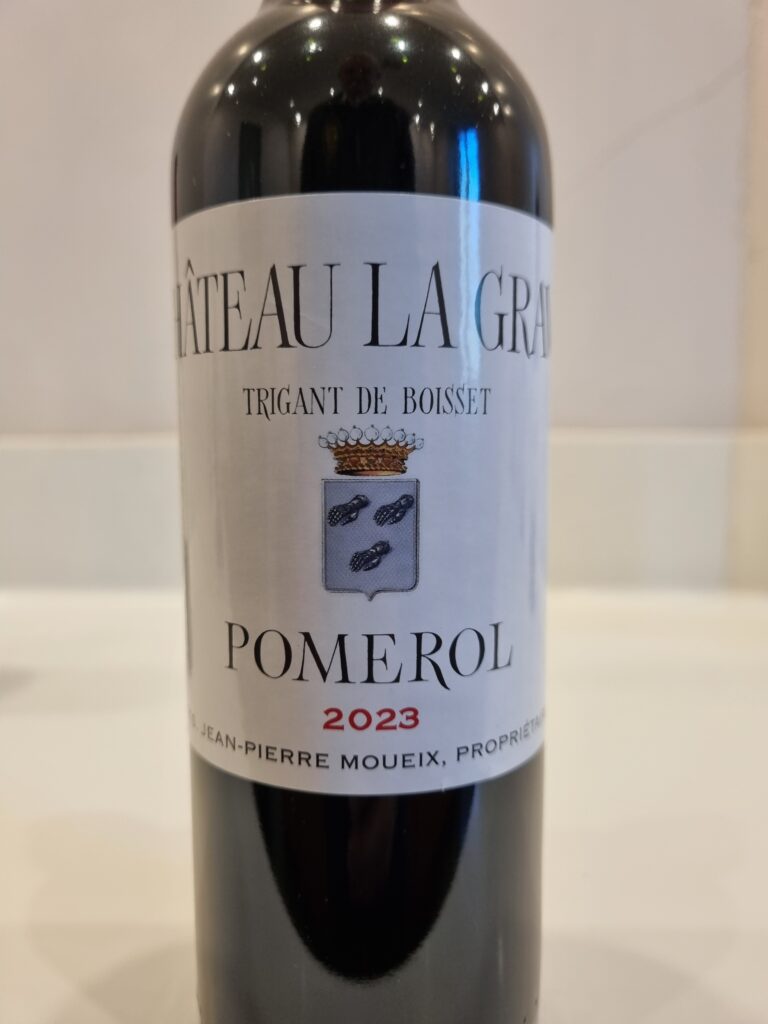
Le Gay****
N: Focused, pure, and delightful. Ethereal perfume (dominated by iris), accompanied by almond aromas. Impeccable. Penetrating, yet delicate.
P: Sinewy, fine structure inside a framework of cushioned softness. Delicious aftertaste of great purity featuring the quintessence of raspberry. Seems sweet, but not in the way of wines with high alcohol. Mineral finish with superb tannin.
Gazin***1/2
N: Rather old-fashioned in a way with leather, berry fruit, and slightly musky aromas.
P: More fluid than rich with a tannic finish of very high quality. This is a foursquare wine with good acidity propitious to ageing. Confirms Gazin’s position as one of the pillars of the appellation.
La Grave***1/2
N: Sexy and upfront, although a little simple, with violet and candy nuances.
P: Round, silky, well-made with good tannic aftertaste. Medium-heavy mouthfeel. The wine’s “come hither” aspect hides the its intrinsic depth. Maybe not the widest range of flavors, but those within it are excellent.
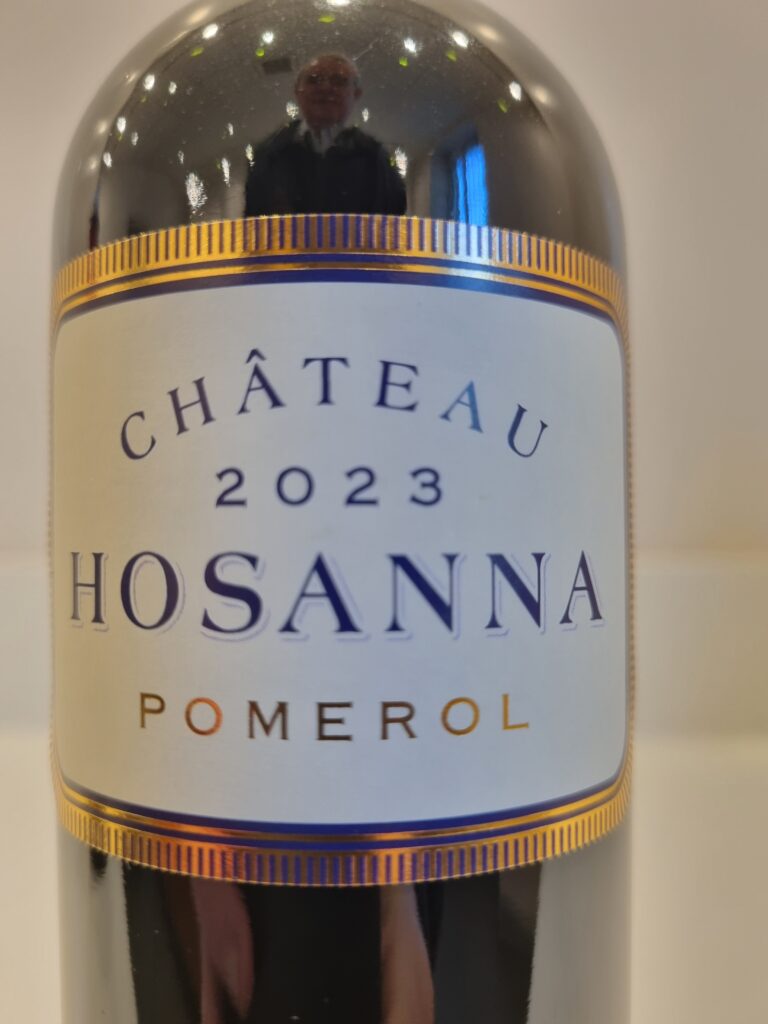
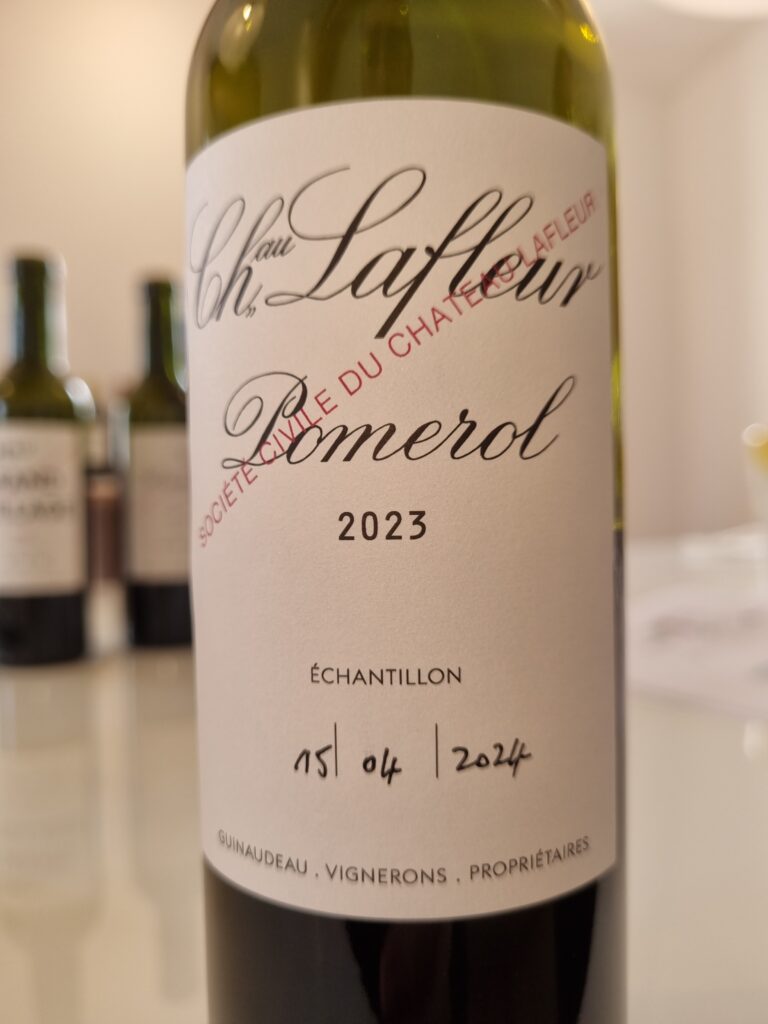
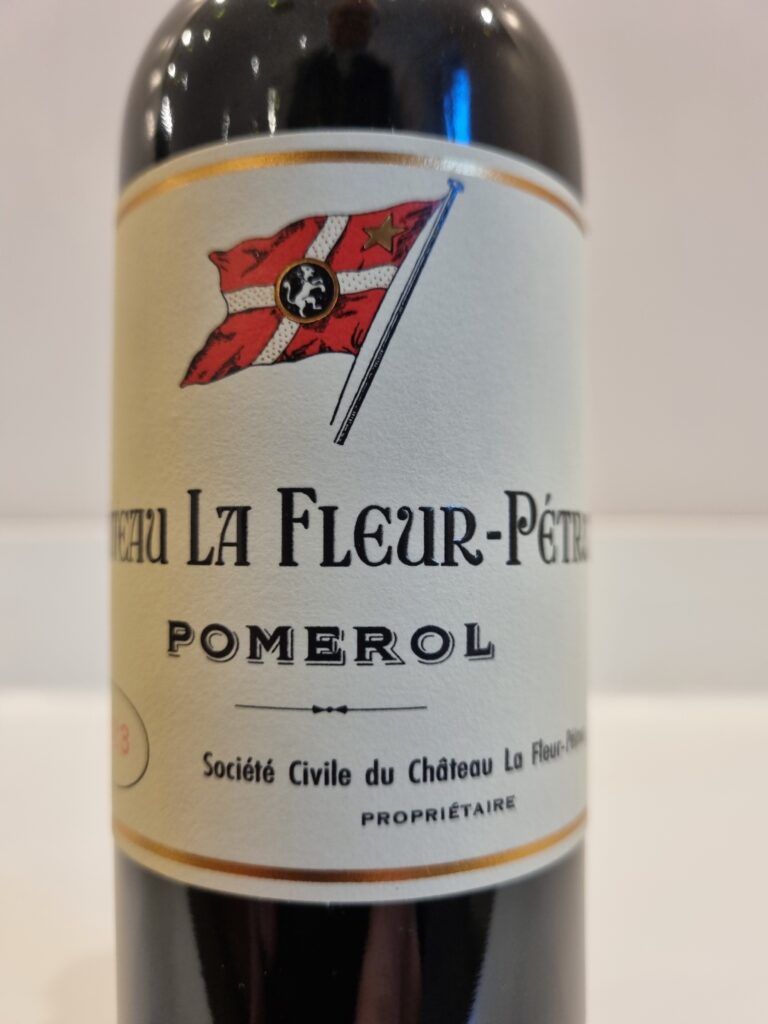
Hosanna****
N: Subtle ripe fruit that is well in check. ”Sweet,” but not exaggeratedly so. Ethereal and classy.
P: Sheets of satiny flavor assault the palate with softness. This then unfolds into wonderful fresh acidity. Relatively heavy mouth feel with sweet wonderful finely-textured tannin on the aftertaste. Similar to Latour-à-Pomerol, but with more gravitas and potential. Super long finish of red and black fruit. Obviously elegant and feminine – with just the right amount of perfume.
Lafleur****
N: Good, but not remarkable. Very closed as Lafleur often is during the en primeur tastings.
P: This mutism is more than compensated by a truly lovely taste profile: sensual, perky, dynamic, and with regal soft tannin. Both gentle and pervasive. Unique with a tremendously long aftertaste. Incredible finesse and precision.
Lafleur Pétrus ***1/2
N: Attractive, but not delivering much at this stage other than shy fruit and some oak.
P: Medium-heavy mouth feel. Full-bodied from the get-go, and then spreading out to blossom into a an aftertaste with textbook Pomerol tannin (empyreumatic) that has extracted to just the right degree.
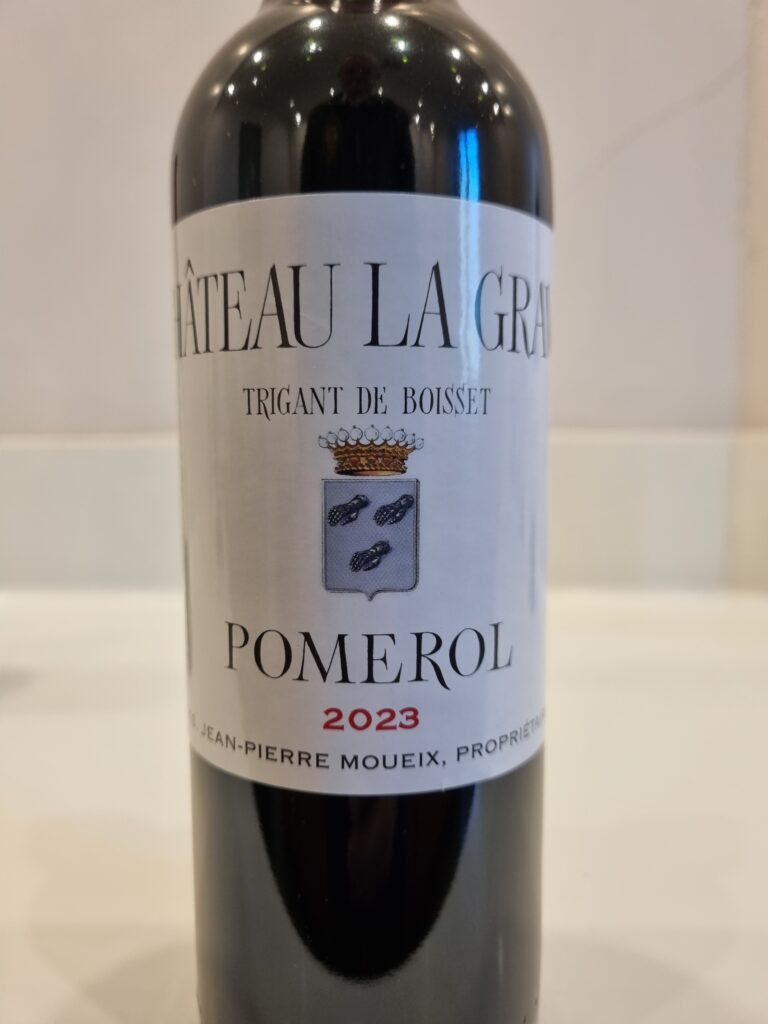
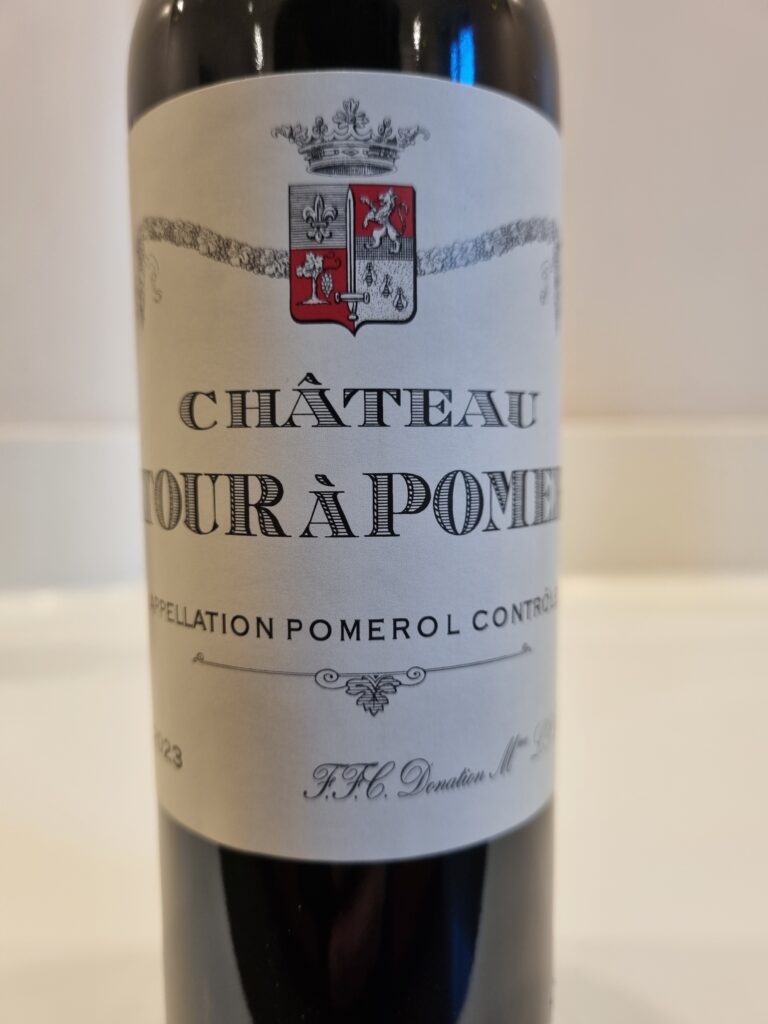
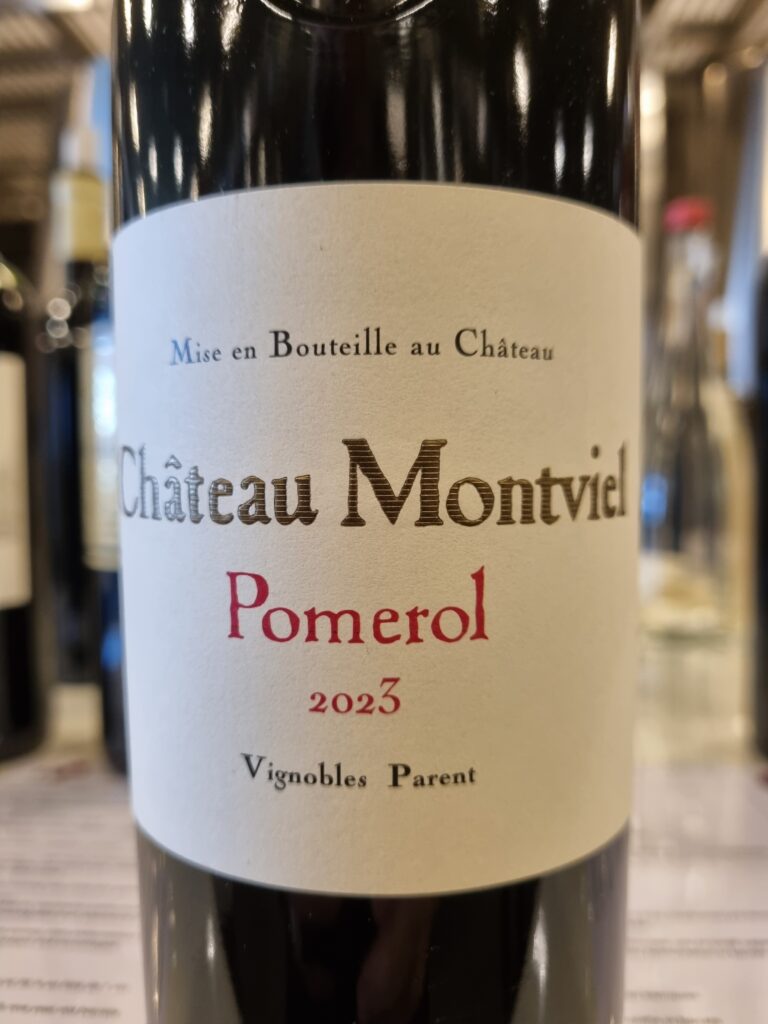
La Grave***1/2
N: A little simple and upfront, but sexy with violet and candied fruit aromas.
P: Stylish, round, and silky. Well-made with good tannin on the finish. Medium-heavy mouth feel. Misleadingly fruity in that this tends to overshadow the wine’s intrinsic depth. The range of flavor may be narrow, but the wine is very accomplished within it.
Latour à Pomerol ***1/2 – ****
N: A clear step up in sophistication in the range of Moueix Pomerols. Although seemingly less open, it is unmistakably Pomerol with plenty of room for development.
P: Medium-heavy mouth feel. Sleek tannin with surprising minerality on the aftertaste. Great balance and structure. Made to last for many years. Classic and uncompromising.
Montviel***1/2
N: Forthcoming rich nose. A toss-up whether it is more floral or fruity (forest fruit). Seductive vanilla nuances as well.
P: Rich on the palate too, with stylish tannin and a good long aftertaste. Considerable balance and finesse. Medium-bodied, well-made, and unmistakably Pomerol.
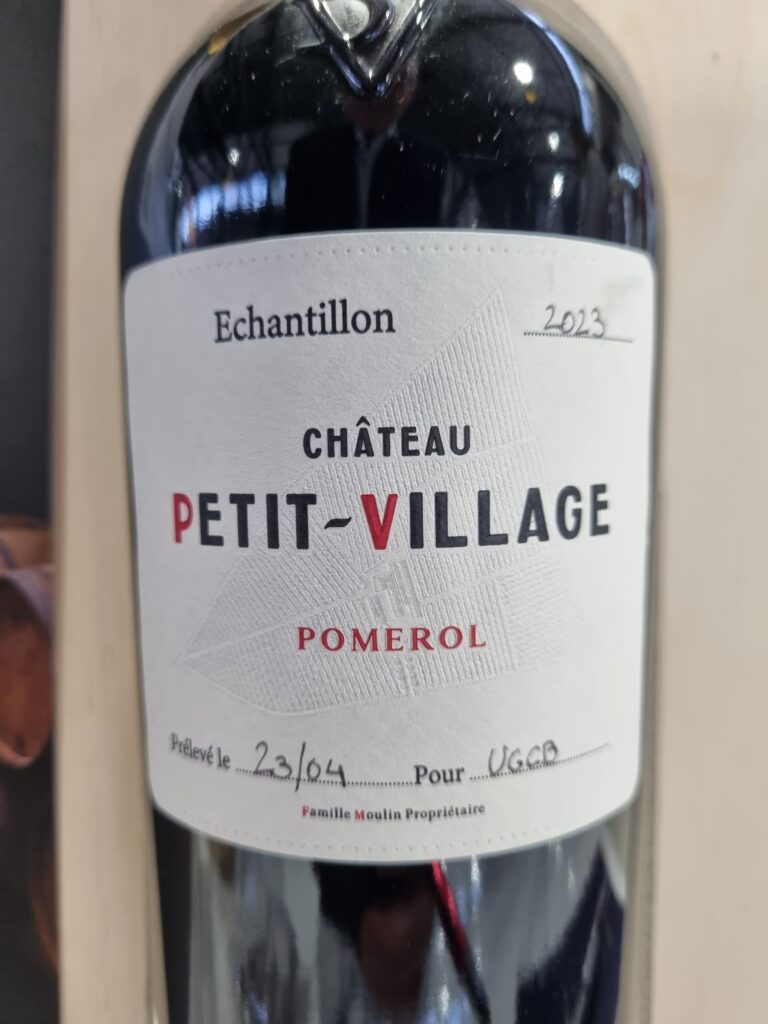
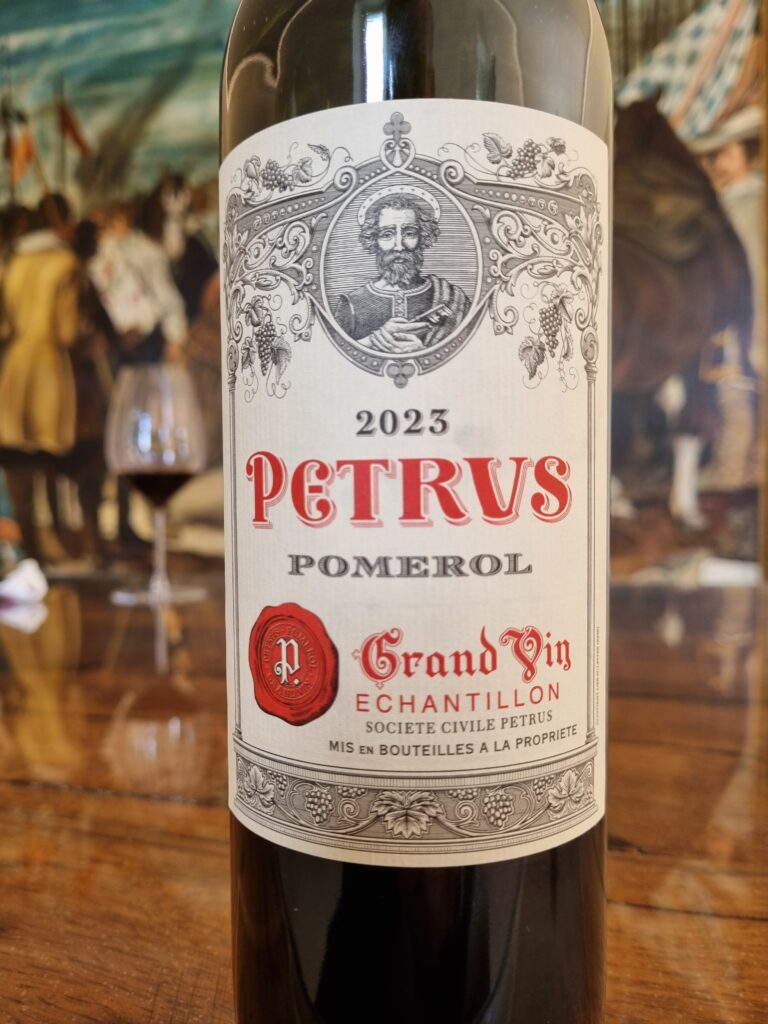
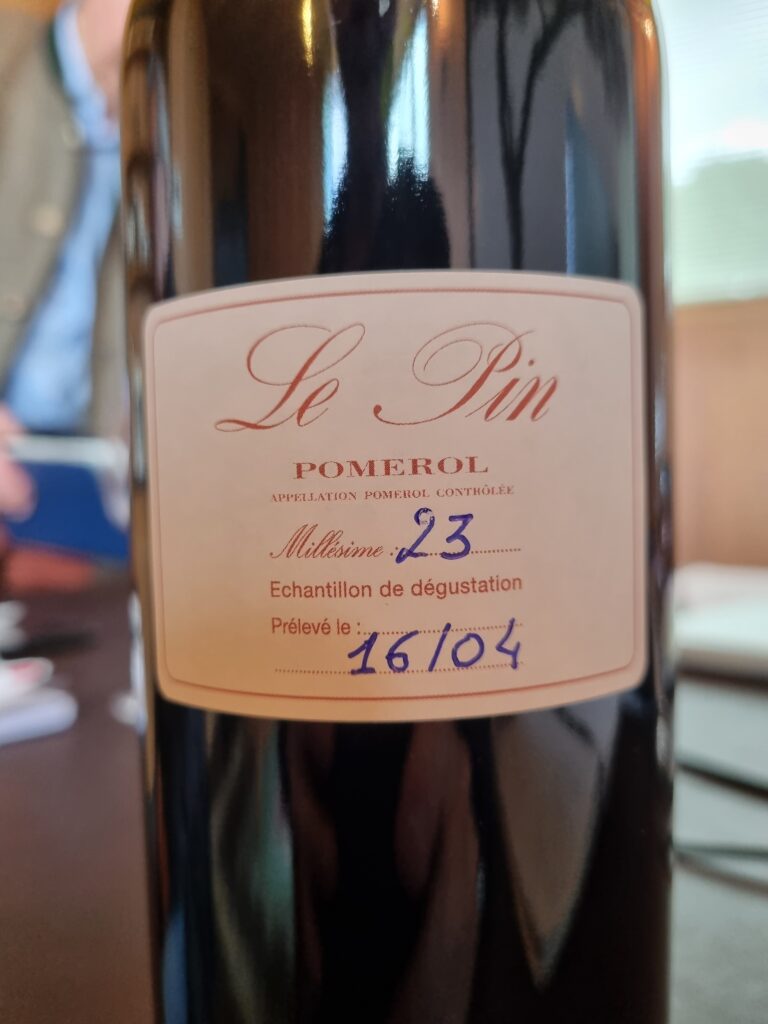
Petit Village***1/2
N: Cranberry and red fruit jelly. Refined and ethereal. Very promising underlying quality.
P: Plummy with the influence of Cabernet Franc out of all proportion to its part in the final blend. Tightly-knit with good length. Medium light body.
Pétrus****1/2
N: Strong, but not overpowering nose with violet and cassis leaf nuances.
P: Very mouthfilling, but well-focused, cool, and restrained with some raspberry flavors. Fairly tannic, but extremely elegant. Creamy and concentrated. The tannin coats the teeth, but is so very gentle. Very long, lingering aftertaste. A wine with great panache and tannin that is pure velvet. Huge ageing potential.
Le Pin ****
N: Soft and ethereal with violet overtones and a whiff of kirsch.
P: Considerable restraint here, but unbelievably soft and caressing on the palate. The plush long aftertaste shows lots of oak that obviously needs time to integrate. This finish is extremely long, but not assertive. The great acidity means that the softness is tempered and that the wine has character as well as seductiveness. Great resonance on the tannin. The acme of power and elegance.
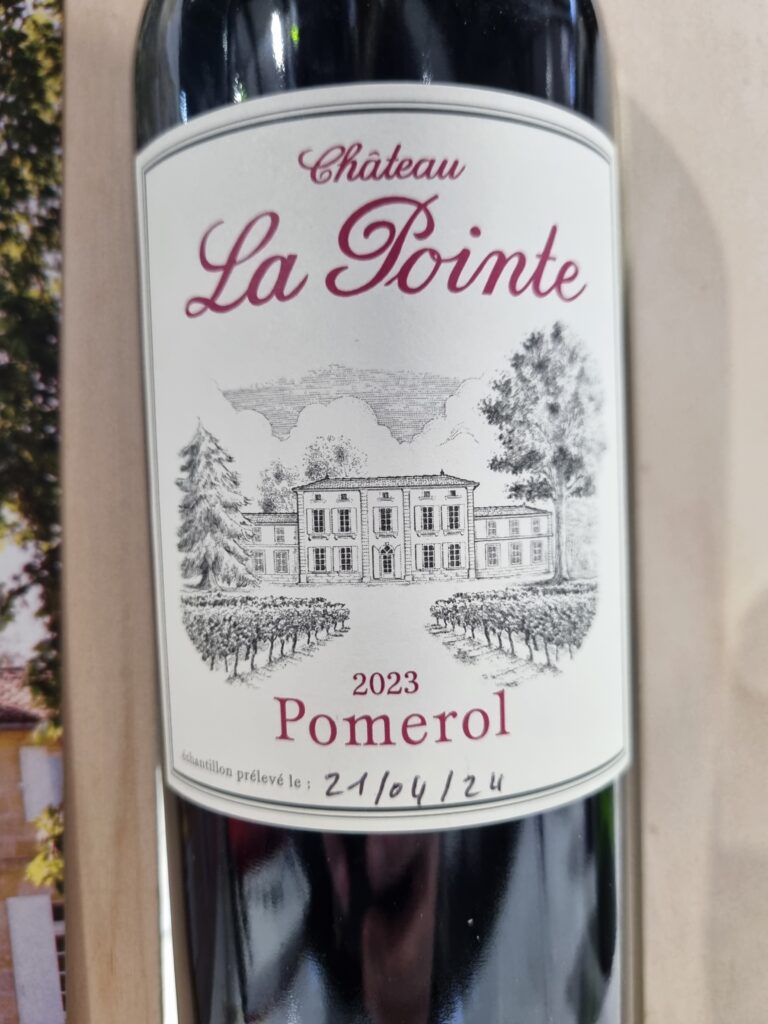
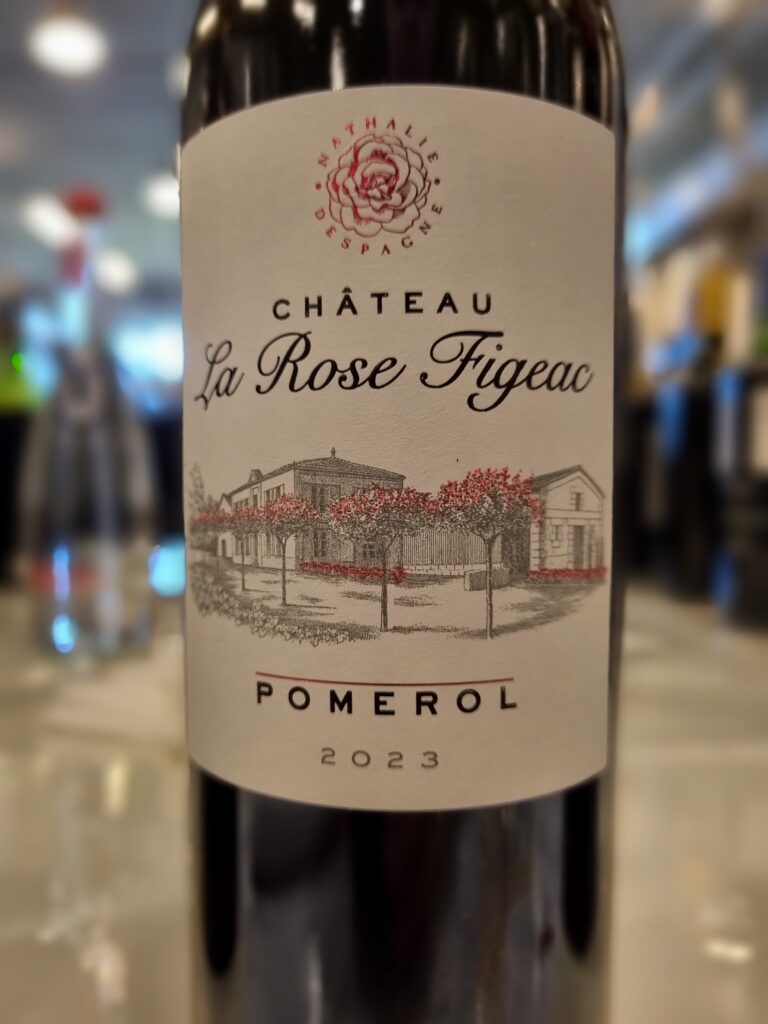
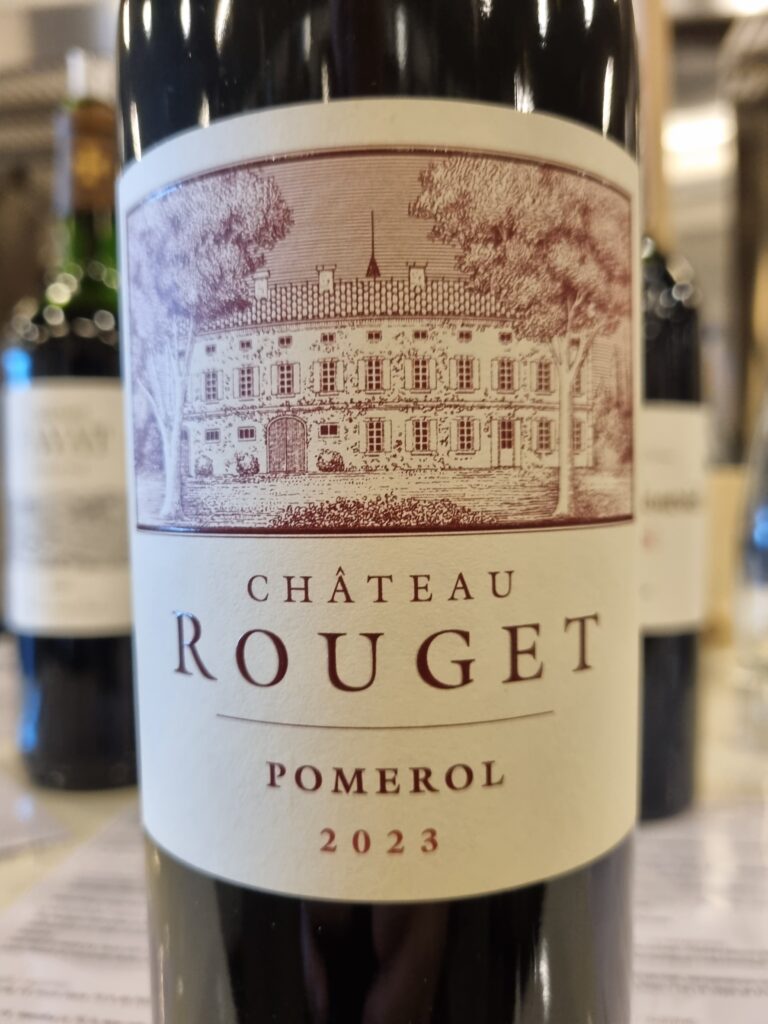
La Pointe***
N: Forest fruit, cherry, and vanilla aromas.
P: Rich and full-bodied with good acidity and a long finish. Easy-going but, on the whole, not terribly typical of its appellation despite a certain creaminess.
La Rose Figeac ***1/2
N: Bright black fruit with subtle vanilla overtones. Not tremendously expressive at this stage, but promising, with some white pepper notes.
P: Melts in the mouth with great sensuality. Extremely lush with some violet and exotic (incense) nuances. Maybe lacking some tension, but you have to love the sweet fruit. Rubbery tannin on the finish. A worthwhile discovery.
Rouget***1/2
N: Intriguing modern-style nose with buttery vanilla along with blackcurrant and candied black fruit.
P: Black fruit and cranberry jelly flavors with round tannin giving way to tannin of a more characterful sort combined with those from oak. Full and generous and will be very good even young although such good tannin also bodes well for the future.
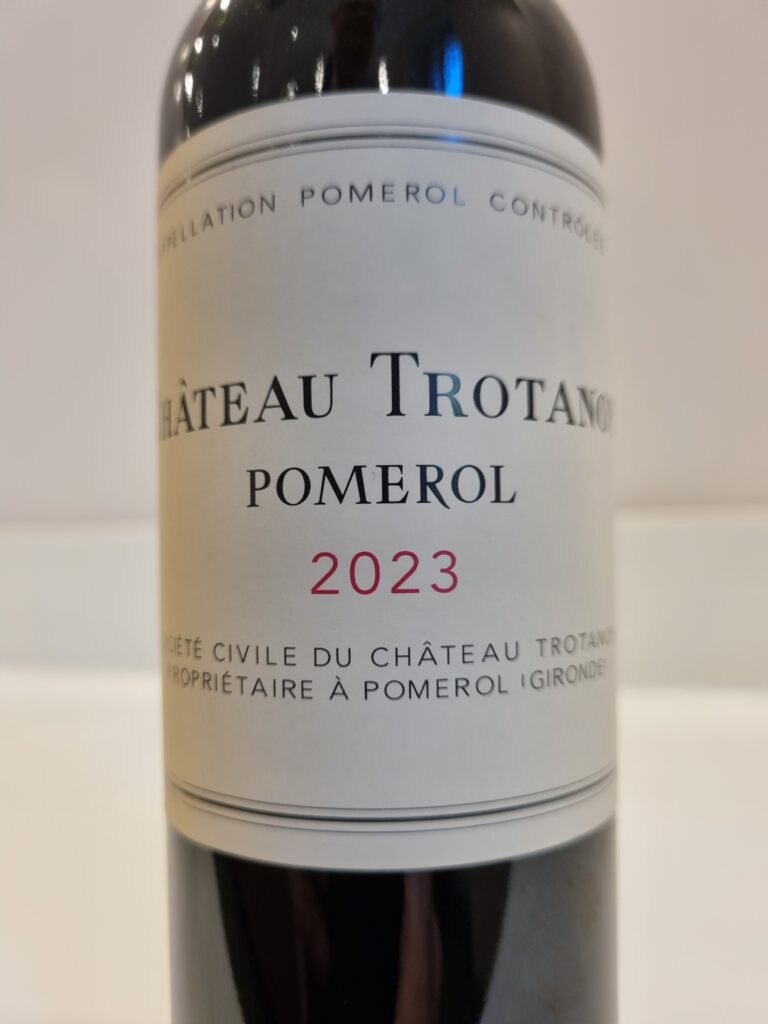
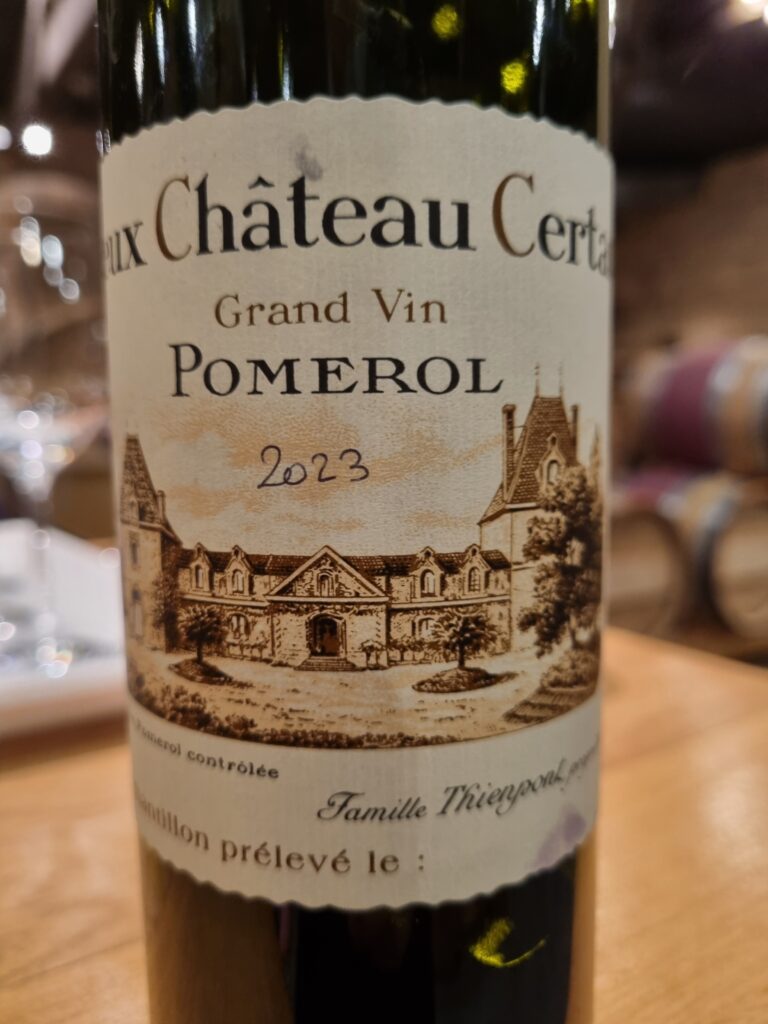
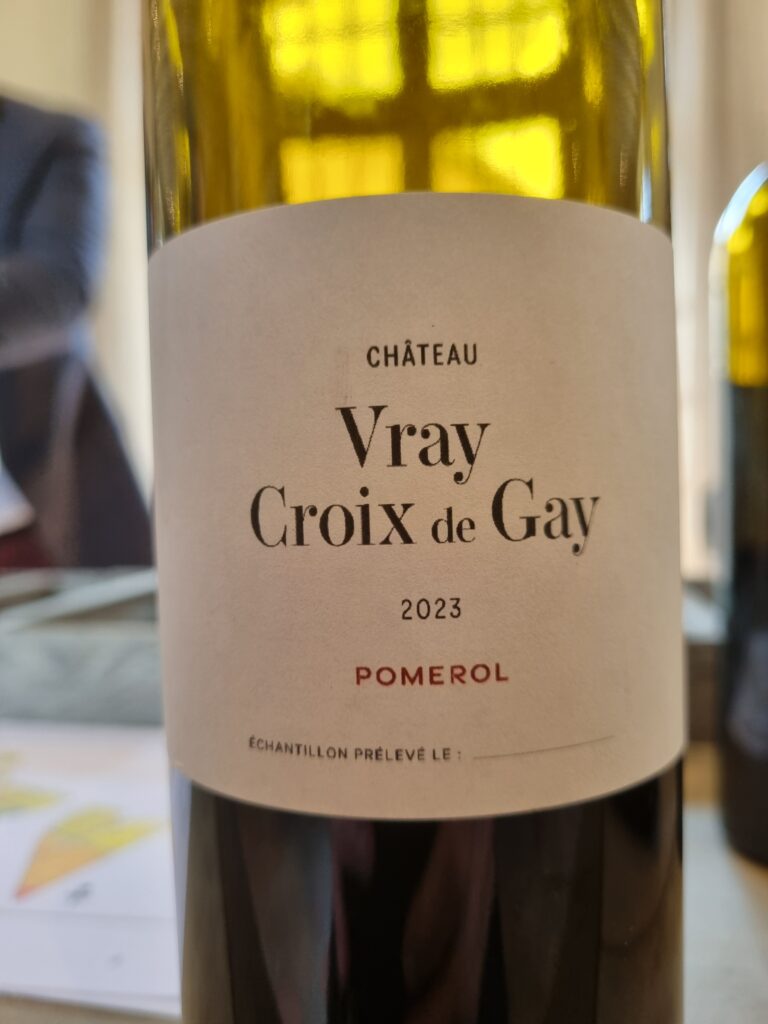
Trotanoy****
N: Not as overtly enticing as the previous Moueix Pomerols at first with some coffee and vanilla overtones due no doubt to new oak. But dig a little deeper and pure black fruit and other aromas come to the fore. The nose is nevertheless fairly closed.
P: This is a big mouthful of wine, a consummate Pomerol i.e. “an iron fist in a velvet glove.” Unabashedly tannic, but what tannins – and so different from those in the Médoc! Made for the long haul. Velvety texture on the characterful commanding aftertaste of astonishing length. Give it a good 30 years!
Vieux Château Certan****
N: Subtle and floral (sample tasted rather cold, so there is surely more to tell).
P: Smooth and velvety, as always, but the tannin seems more prominent than in other vintages. Very long cool aftertaste. Narrow breadth, but very deep within this range. Elegant, with vanilla and almond aromatics to go with the red fruit. Mineral finish. Atypical for the château.
Vray Croix de Gay***1/2
N: Sweet ripe Merlot fruit.
P: Rich, big-breasted, but finishing with an attractive tartness (acidity) and those unique Pomerol tannins. Textbook example of the appellation. Medium length. Lots of oak, but this is not bothersome.
PESSAC-LEOGNAN REDS
Bouscaut – The château produced no red wine in 2023
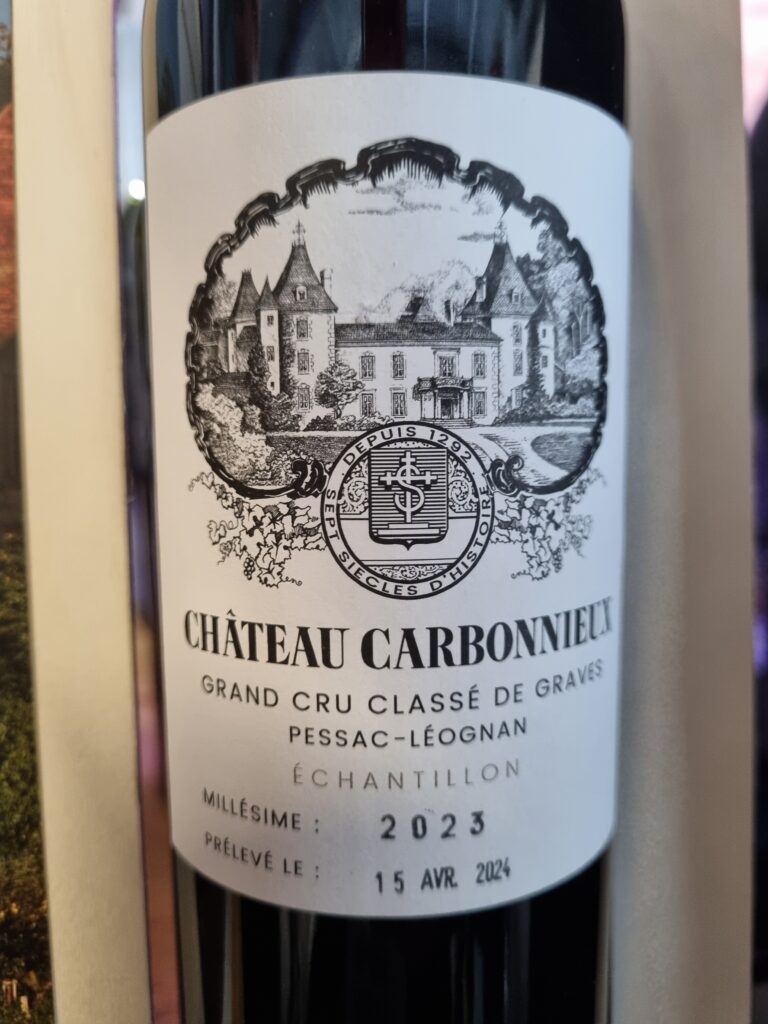
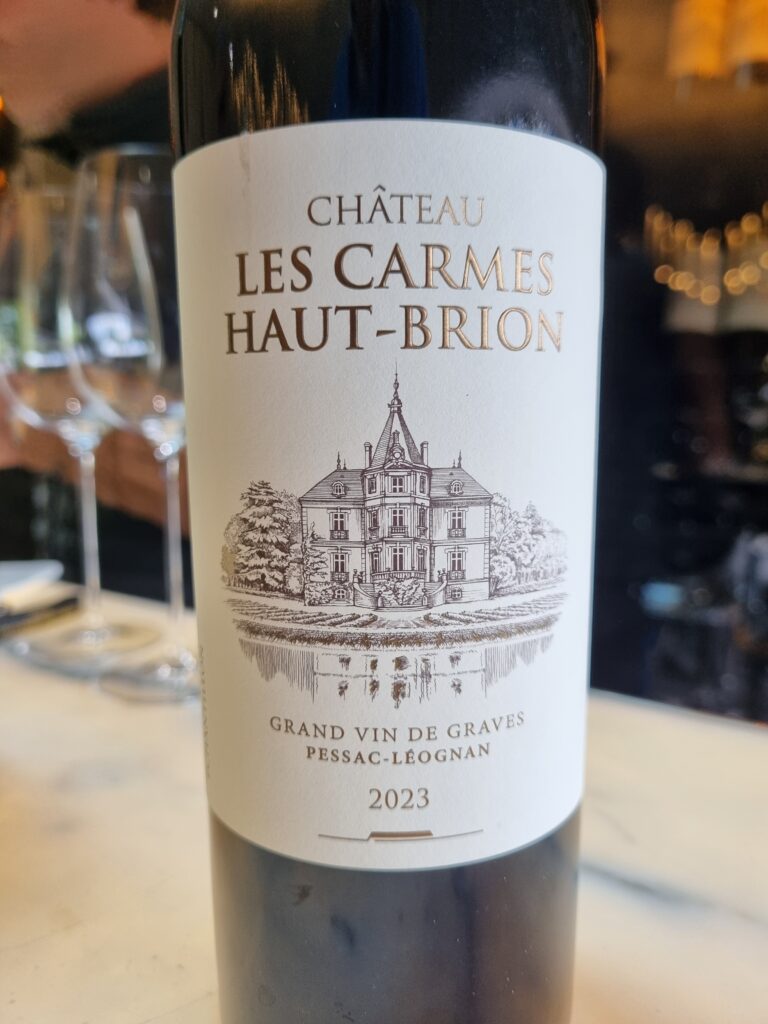
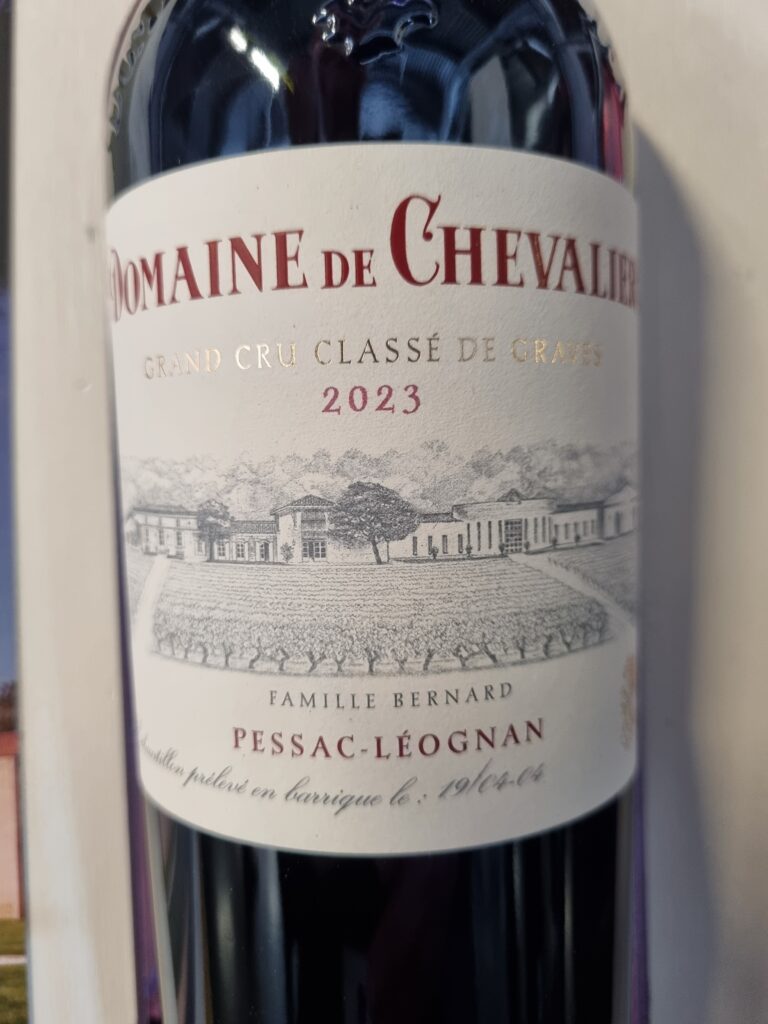
Carbonnieux***
N: Toasty with good fresh varietal Cabernet aromas.
P: Thin body, but with a linear taste profile leading to a medium-long velvety aftertaste. Seems like nothing so much as a very good wine in a lesser year. Nevertheless in classic Left Bank mode. Touch of greenness on the finish, but this in no way disqualifies the wine.
Les Carmes Haut Brion****
N: Tobacco leaves, fresh fruit, and roasted aromas.
P: Seems like a synthesis of the best the Right and Left Banks have to offer. Lovely fresh, floral (iris, violet) overtones. Rich, but lively. Bright acidity to accompany the fine-textured tannin that coats the teeth, cheeks, and palate.
Domaine de Chevalier***
N: Gentle nose just beginning to blossom. Good underlying aromatics.
P: Bit angular and certainly not big-framed. The fine aftertaste makes up considerably for the lack of body. Tealike tannins. Wise winemaking prevailed because heavier extraction would have been a mistake here.
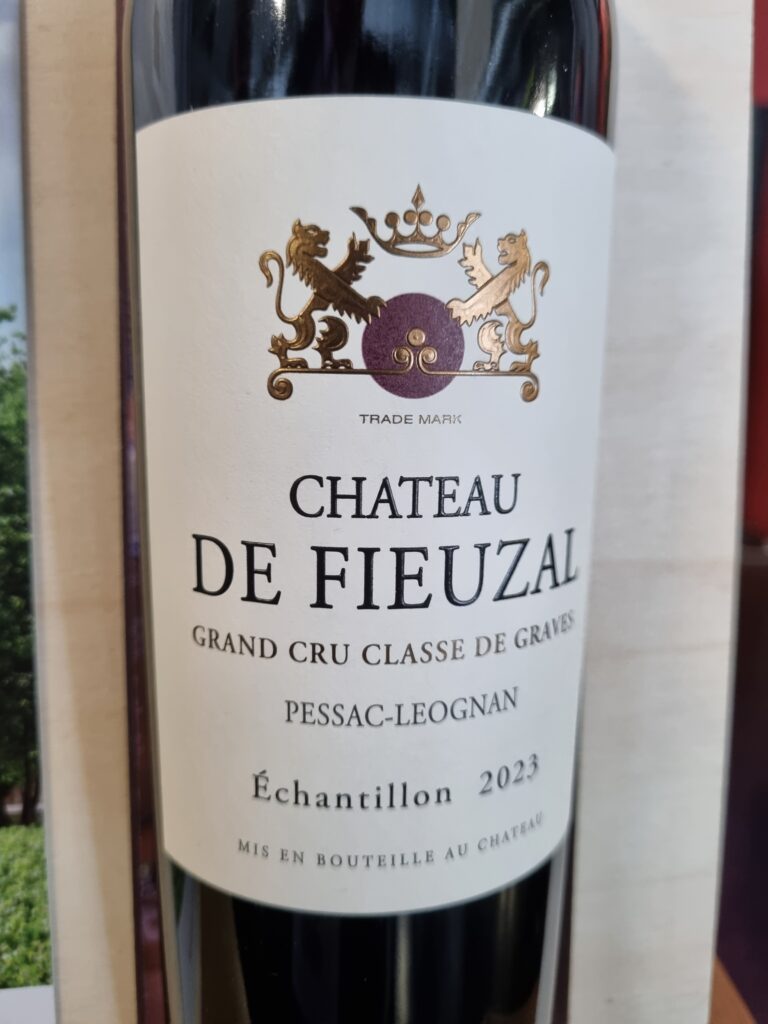
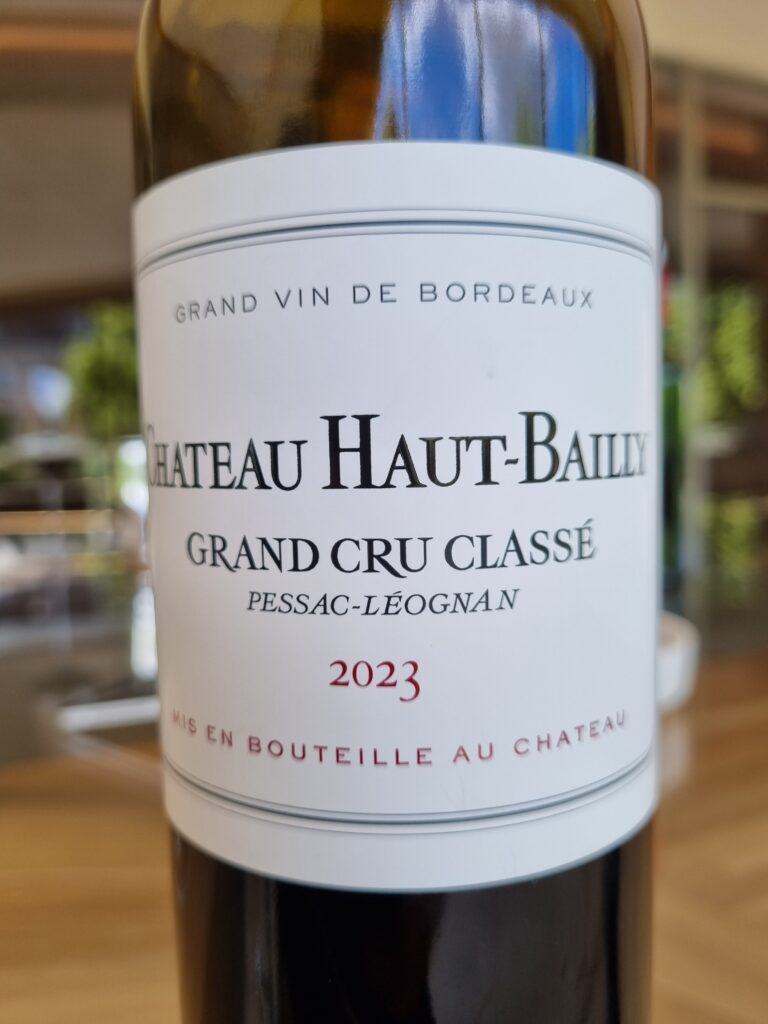
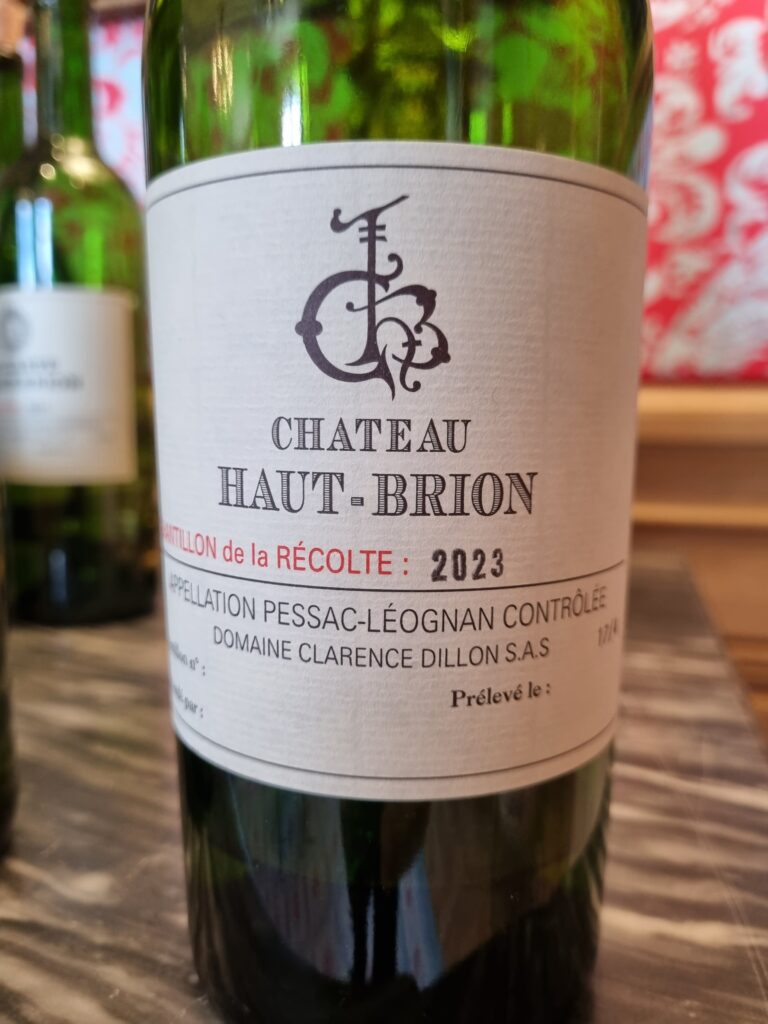
Fieuzal***1/2
N: The soft understated nose is very reminiscent of forest fruit. There’s also a slight cosmetic note.
P: Round and soft, transitioning into a very welcome austerity conducive to structure and length. Some licorice and a gentle grip. Not a rich or big wine, but clearly a success in 2022.
Haut Bailly***1/2
N: Typical Pessac-Léognan nose with blackberry and smoky nuances. Very good.
P: Rich, but with a solid backbone and fine tannic texture. The aftertaste is somewhat dry, but it is also long and delicious. Excellent balance. Floral (violet) uplift on the tail end. A smooth, supple vintage for Haut Bailly.
Haut Brion ****1/2
N: Low-key candied fruit and a little peppermint. Sophisticated and understated.
P: Spreads out beautifully on the palate. A top model in a formal evening gown. Definite cassis overtones. Finds a balance between a certain greenness (rather than an off-putting herbaceousness) and fruit. Superb very fine-grained tannin. Puckery extremely long finish. Superb. Velvety texture, for sure.
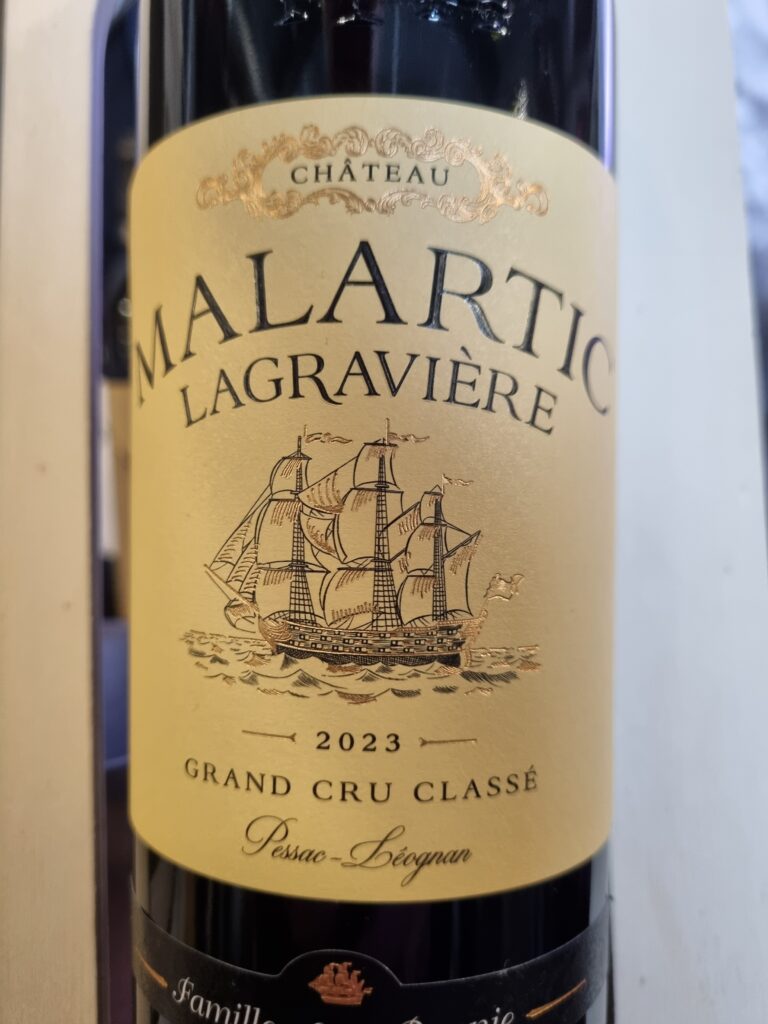
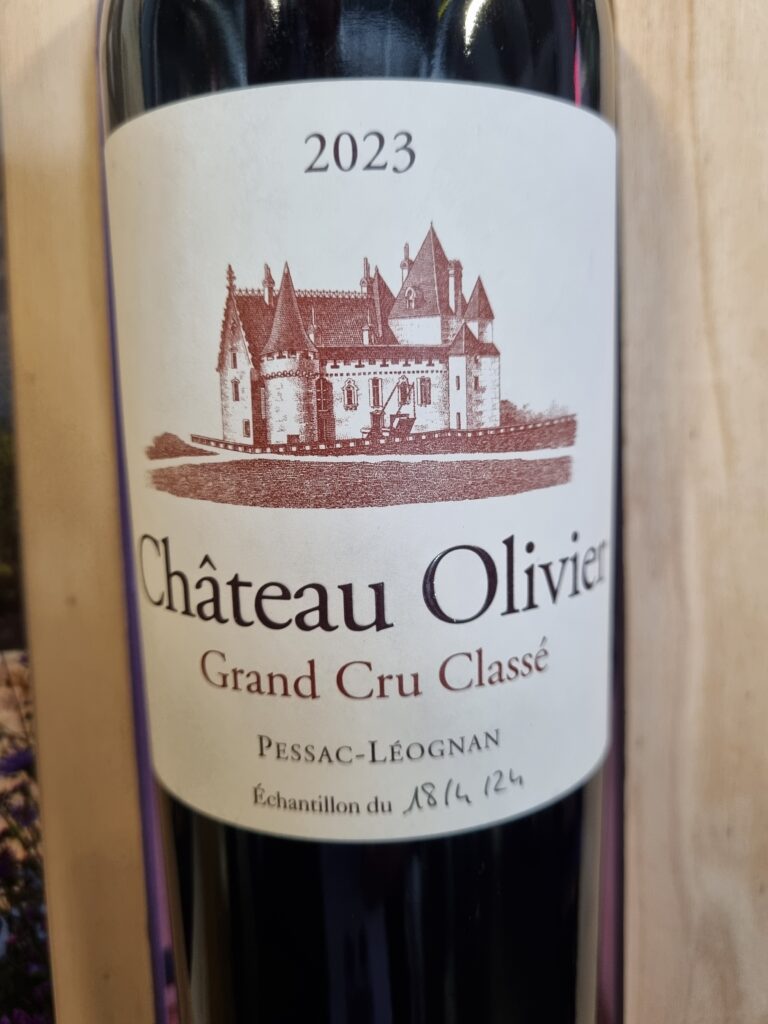
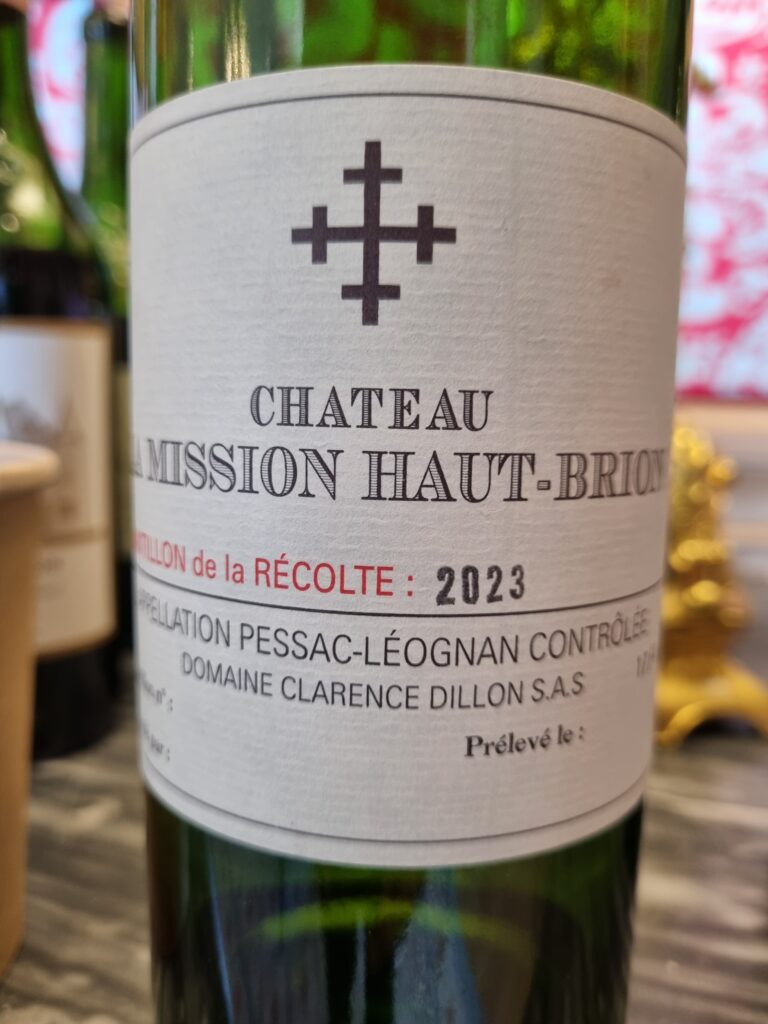
Malartic La Gravière***
N: Fresh and ethereal, but not very expressive.
P: Bright fruit with marked acidity reminding me of a lesser vintage. Tannins arguably too extracted in light of the body. Lacks richness. Very Cabernet, but with less than optimum ripeness.
Olivier***1/2
N: Open, generous, floral, and forthcoming.
P: Velvety, with assertive tannin. Long textured aftertaste. Strong oak, too much at this time. If it can be kept under control, this wine’s intrinsic quality will make it rise among the other Pessac-Léognan great growths. 2022 Olivier has presence and gravitas.
La Mission Haut-Brion****
N: Ethereal old library aromas along with deep dark fruit, good oak, and a touch of mintiness.
P: A big mouthful of wine with lots of tannin displaying marvelous texture. Chocolate and mint on the nose come through on the palate. Long. Serious. Huge potential.
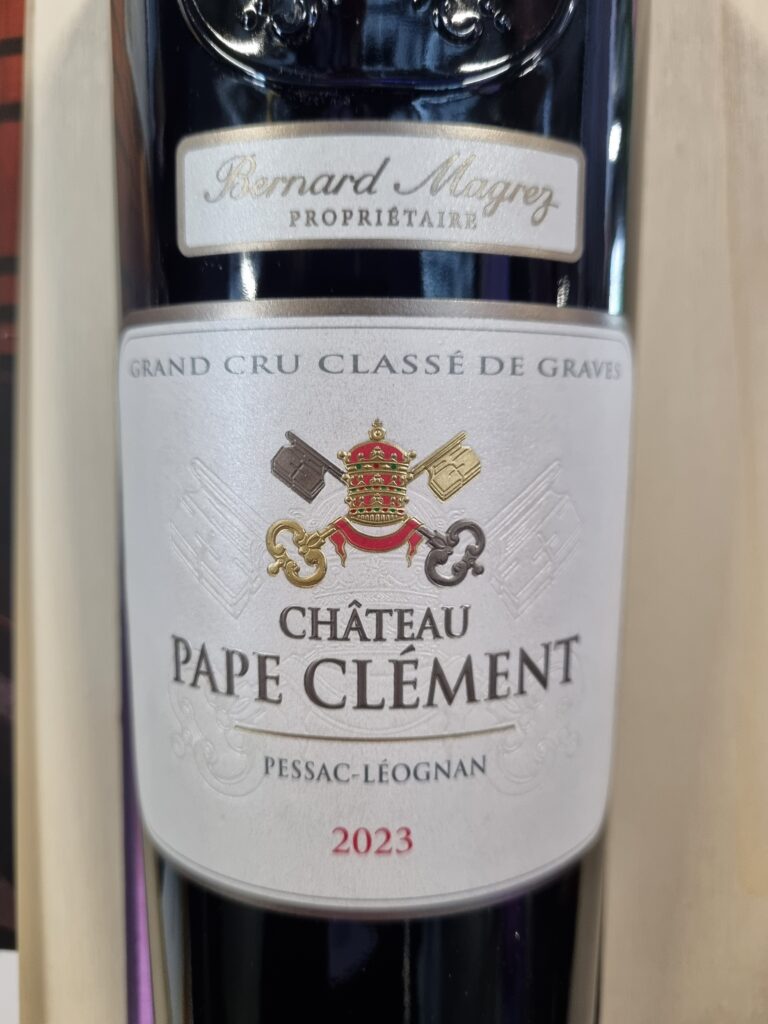
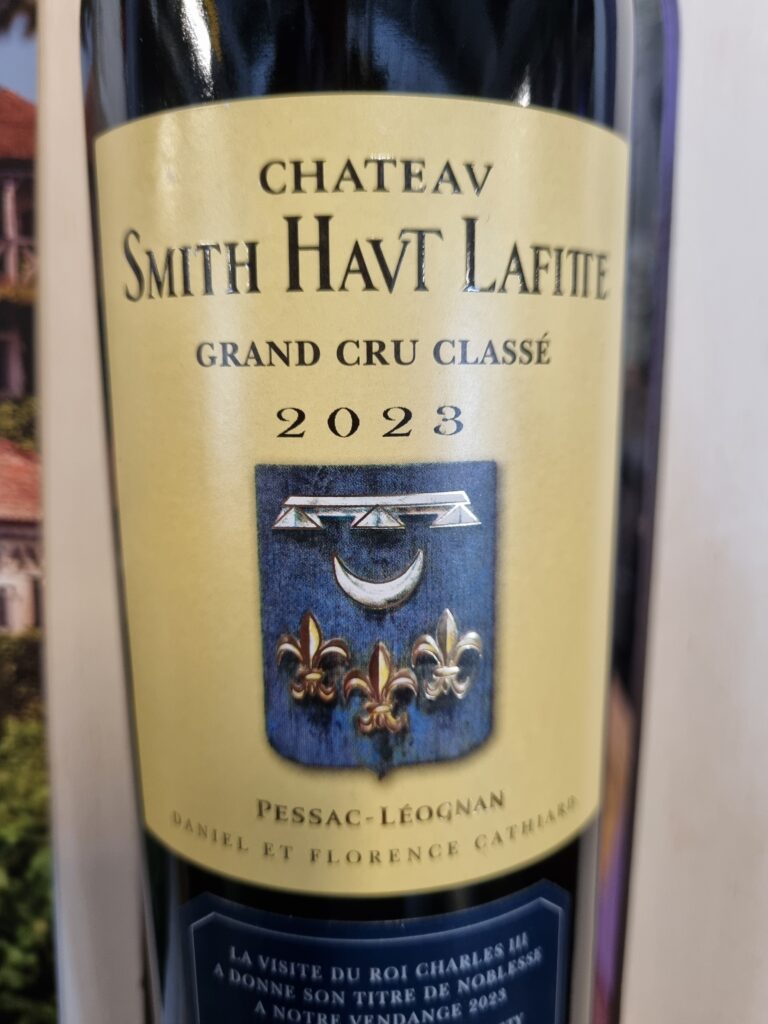
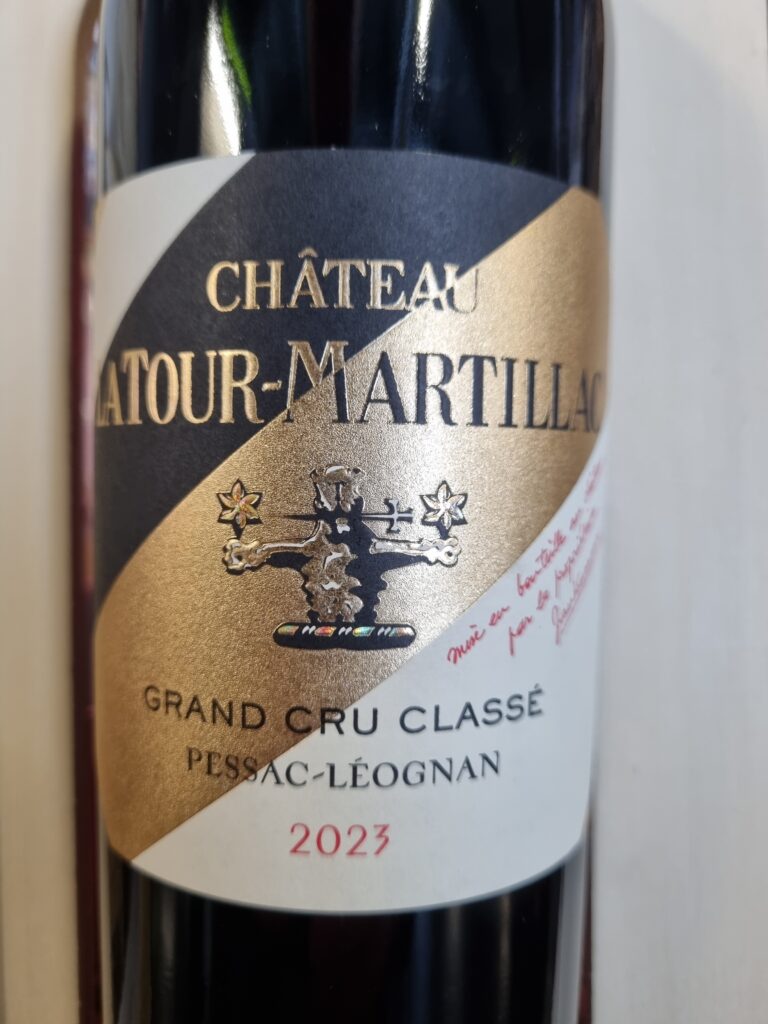
Pape Clément***
N: Not overoaked (a problem in the past). Lovely, pure, and fairly closed, but promising. Cherry-vanilla and tobacco nuances.
P: Soft, then penetrating. Nice progression on the palate into an aftertaste with tannic overload (extraction and oak). Unrelenting dry finish. Ultimately unbalanced because the finish is out of kilter with the rest of the taste profile.
Smith Haut Lafitte***1/2
N: Fruit forward with good lively wildberry aromas
P: More stuffing than most Pessac-Léognan classifieds this year with a slick fruitiness. Somewhat unctuous going into a rather hard aftertaste due mainly to new oak. Still, there’s plenty of fruit to back that up.
La Tour Martillac***
N: Fresh and ethereal, but not very expressive at this stage.
P: Bright fruit and marked acidity. Perhaps too much tannin in light of the body. Cabernet character predominates, but this does not seem to be very ripe.
HAUT MEDOC & MARGAUx
You will notice that there are only two wines of Margaux here. That is because during 10 days of intense travelling around Bordeaux to try to fit in as much as possible, I did not manage to make it to the UGC tasting of Margaux great growths.
However, I did visit the appellations two most famous estates…
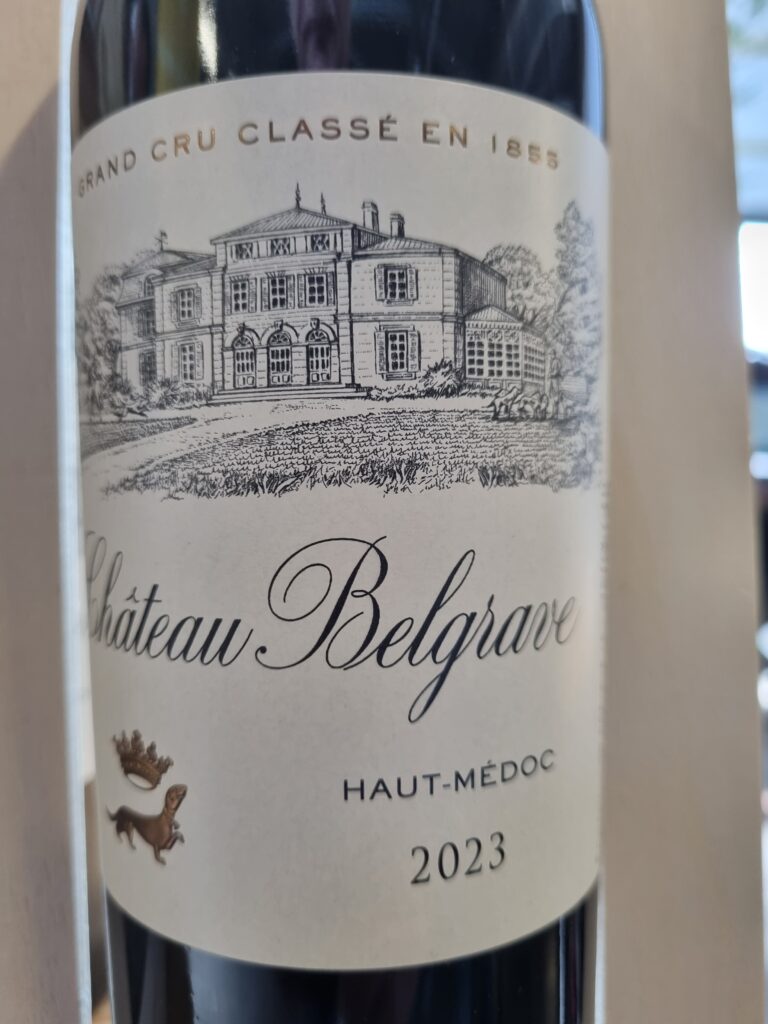
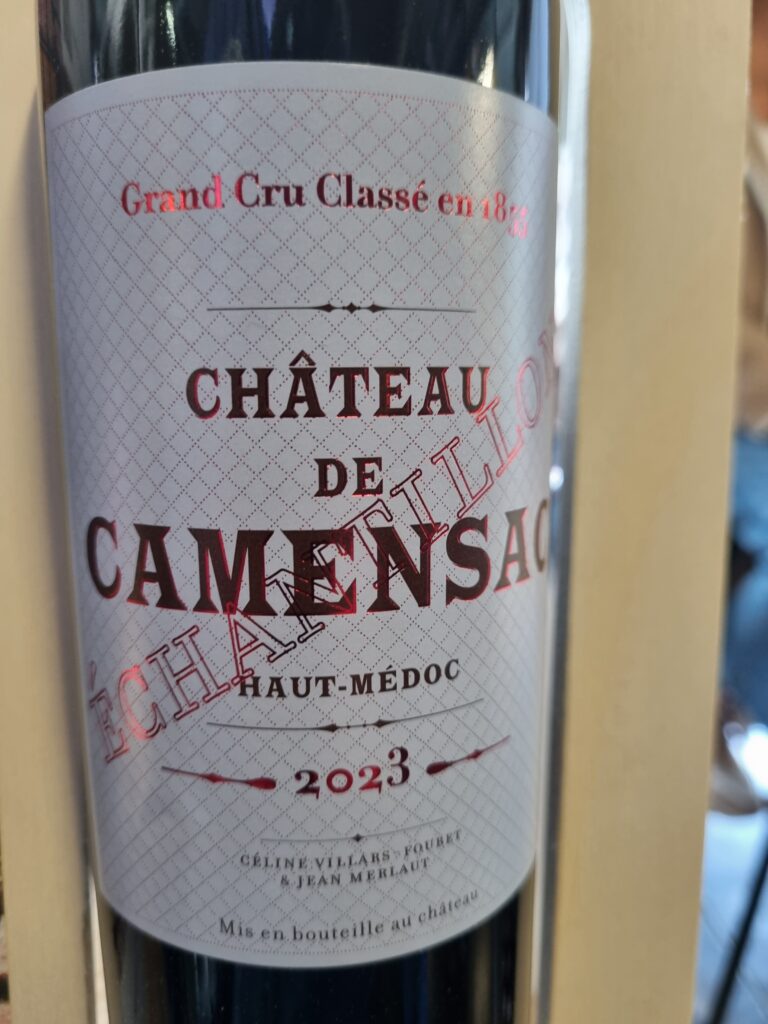
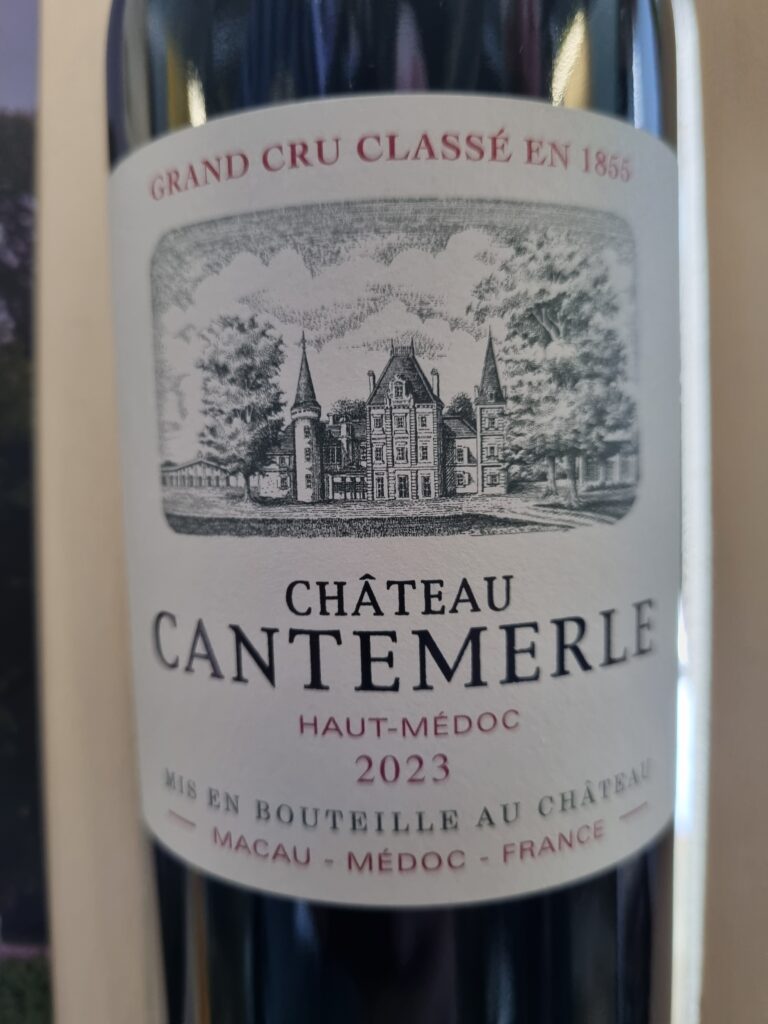
Belgrave***1/2
N: Charming and elegant with pure understated cassis aromas.
P: Interesting balance. Very fluid and drinkable. Natural. Good volume of flavor. Welcoming fruit and a fine medium-long aftertaste. An unadulterated serious Médoc with well-extracted tannin. A successful wine and a good showing for Belgrave.
Camensac**
N: Unremarkable nose of an unoaked petit Médoc. True to its terroir but not much more.
P: Angular, harsh, rough tannin. Not the level of a classified growth. This is due, in my opinion to poorly or overly-extracted tannin.
Cantemerle*** to ***1/2
N: Soft and simple.
P: Much more character on the palate. Svelte and velvety, but a Médoc in minor mode. The English would view this as the perfect luncheon claret because of its lightness and drinkability. Strawberry and red fruit flavors and a cool aftertaste. As always, a dependable quality-price ratio.
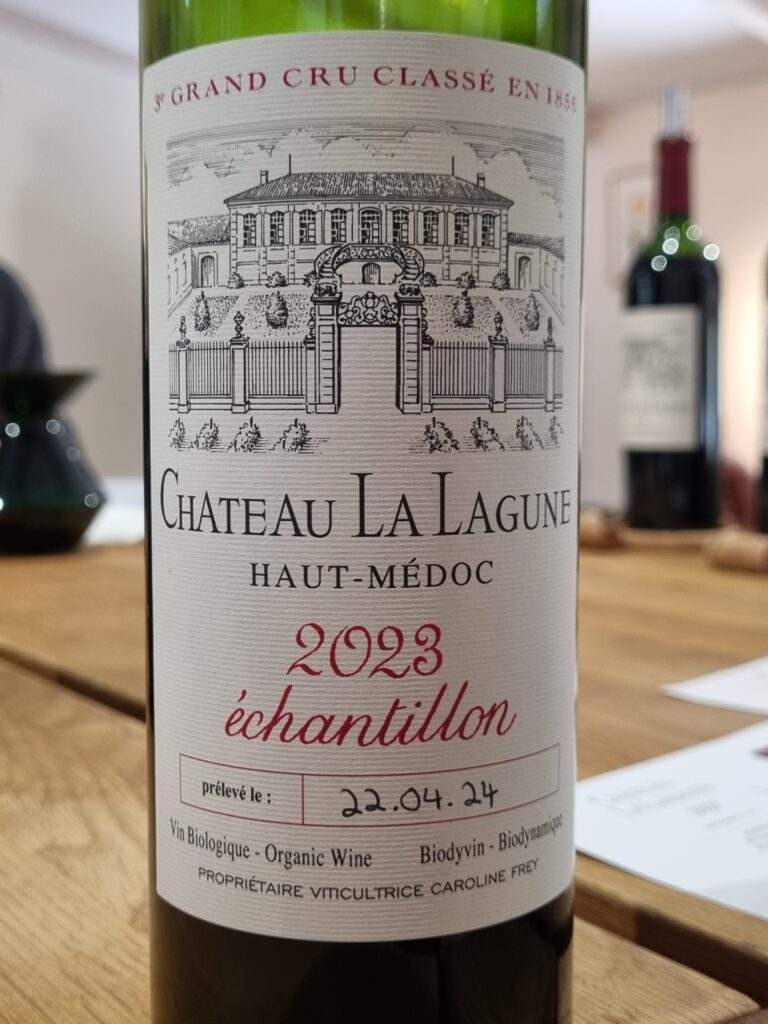

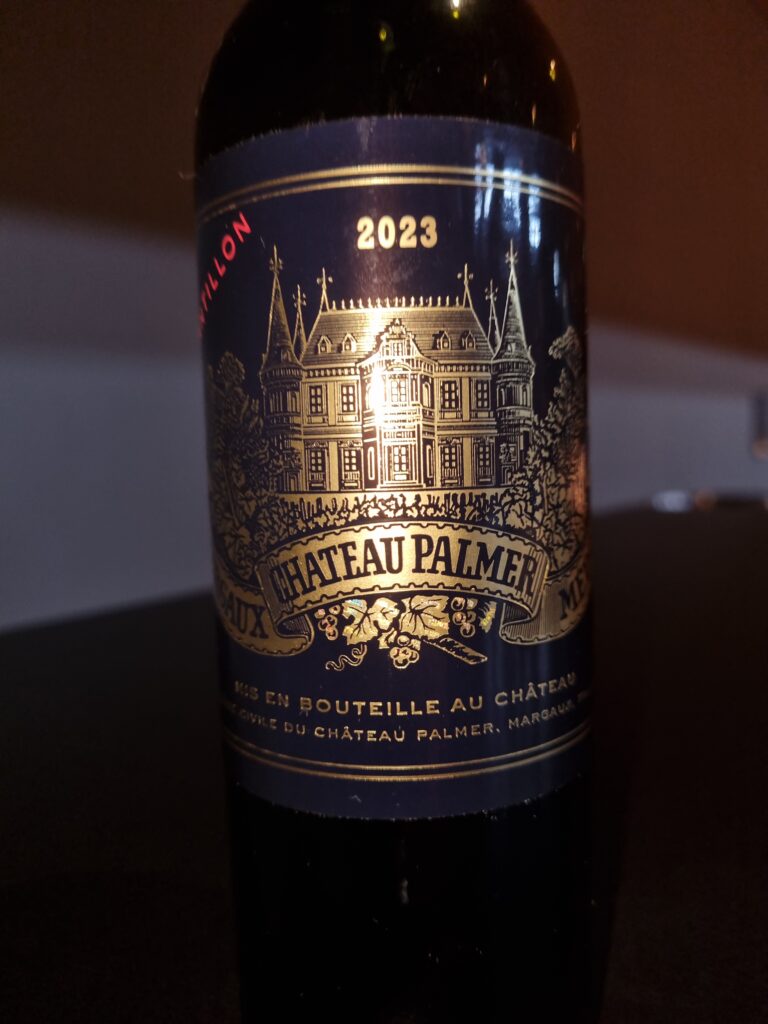
La Lagune***1/2
N: Pure elegant nose evoking fresh blackberries.
P: Very Cabernet with some spicy and floral notes. Converges towards a puckery aftertaste. The flavor profile is not wide, but deep. Some menthol on the aftertaste.
Margaux****
N: Spicy as well as fruity.
P: Light body. Model of elegance. So soft that the tannin very much takes a back seat. Not one look to for power. Cool aftertaste with the stamp of the fantastic terroir. This having been said, I feel that this is not a major success for the château.
Palmer****
N: Lovely scent with well-integrated oak.
P: Round, sensual, silky, and aristocratic with very fine tannin. Medium-heavy mouth feel with fresh blueberry flavors. Attractively tart and appetizing aftertaste. Will show well relatively young.
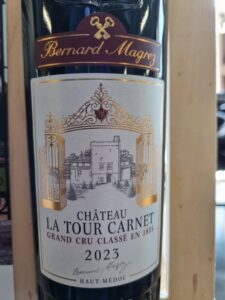
La Tour Carnet**
N: Sweet fruit and oak, but not too much of the latter.
P: Less massively oaked than in some previous vintages, but the dryness from new barrels is definitely there. A more modern style that features brutal tannin on the finish. Somewhat hollow to boot. A different winemaking strategy would be welcome.
SAINT JULIEN
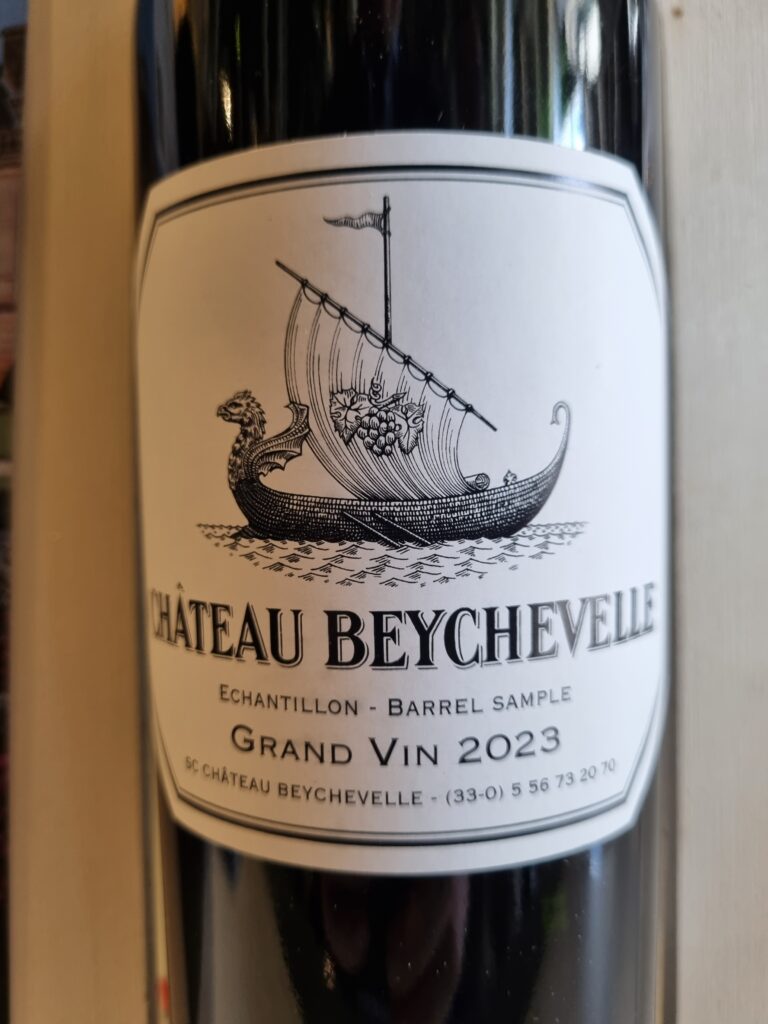
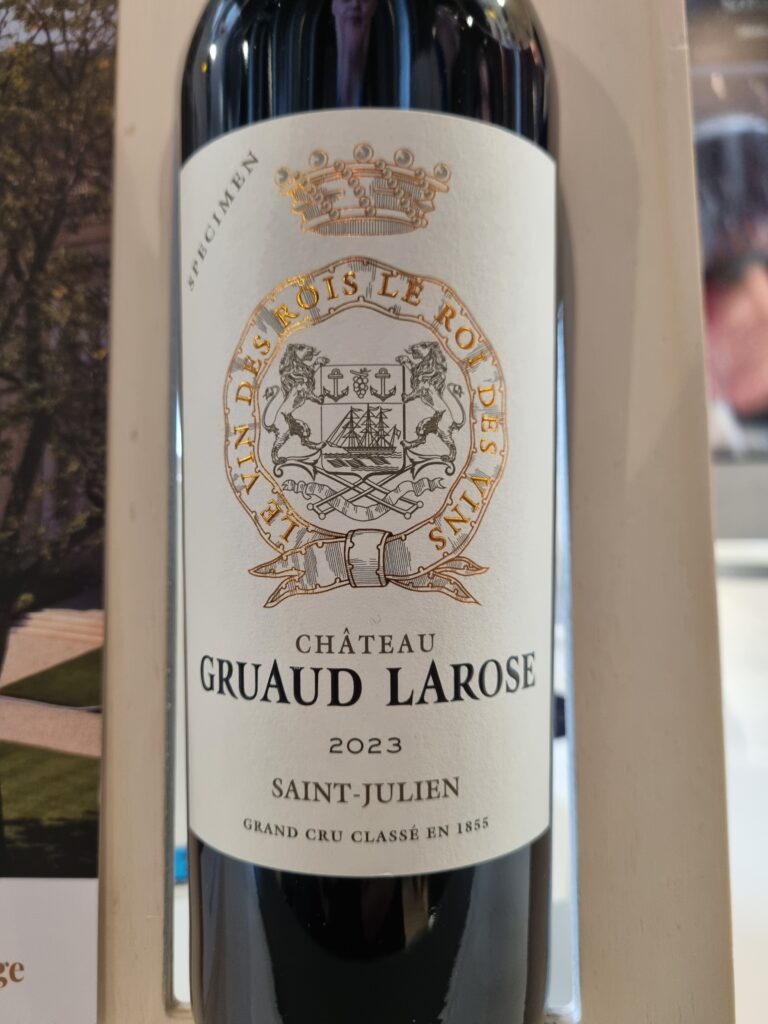
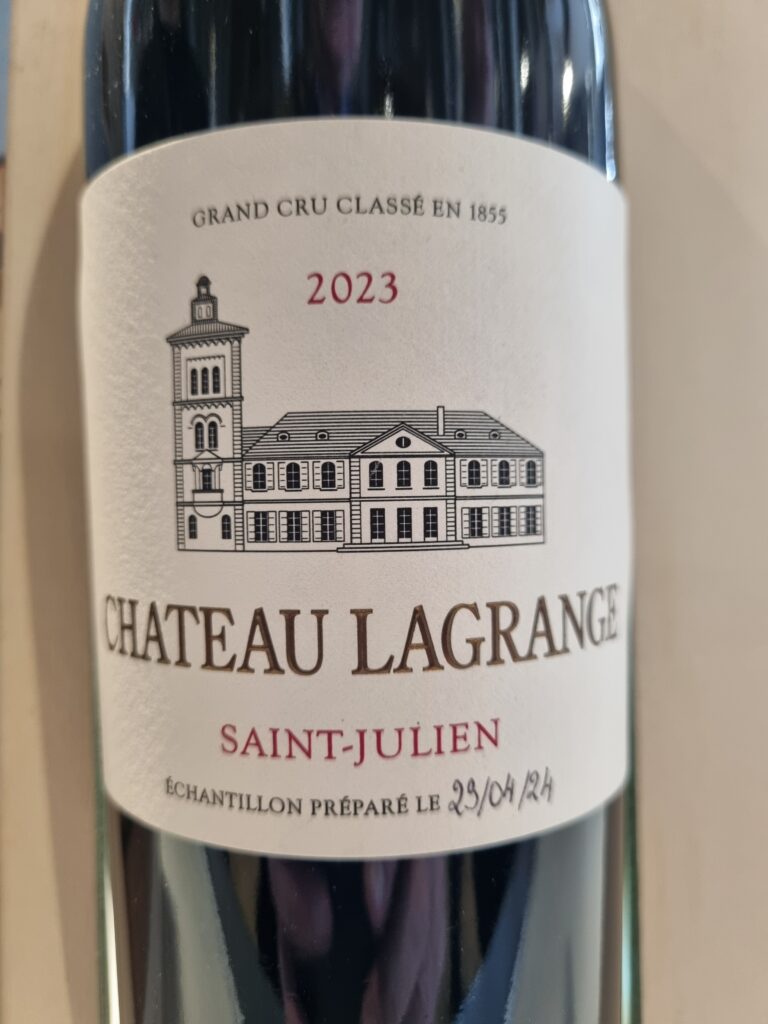
Beychevelle***
N: Oak and cassis aromas that are ethereal without being complex.
P: Better on the palate with vibrant acidity and good length. Narrow breadth but good resonance and fine fresh finish. Well-made, but not exciting.
Branaire Ducru***1/2 (label not shown)
N: Brambly, very much in character for this estate. Sweet fruit and oak. Sophisticated, low key, and fresh.
P: Lively and very fruity with good acidity for an aftertaste that is nevertheless not quite up to the overall flavor profile. However, this is a fine, well-made, charming Médoc with good balance.
Gruaud Larose*** – ***1/2
N: Mostly closed, but there’s a subtle very Saint Julien nose that is quite floral in this vintage (rose)
P: Big, chunky, and generous, but lacks richness. A little hollow, but displays a long aftertaste somewhat overshadowed by oak at present. The dip on the middle palate reflects a lack of backbone.
Lagrange***
N: Muted at present. Soft underlying Cabernet fruit.
P: Better on the palate with delicious tannin. Pure, thirst-quenching quality, but a short aftertaste. Blackcurrant flavors. Fine tannin, but extraction seems to have been rather timid. Best enjoyed young.
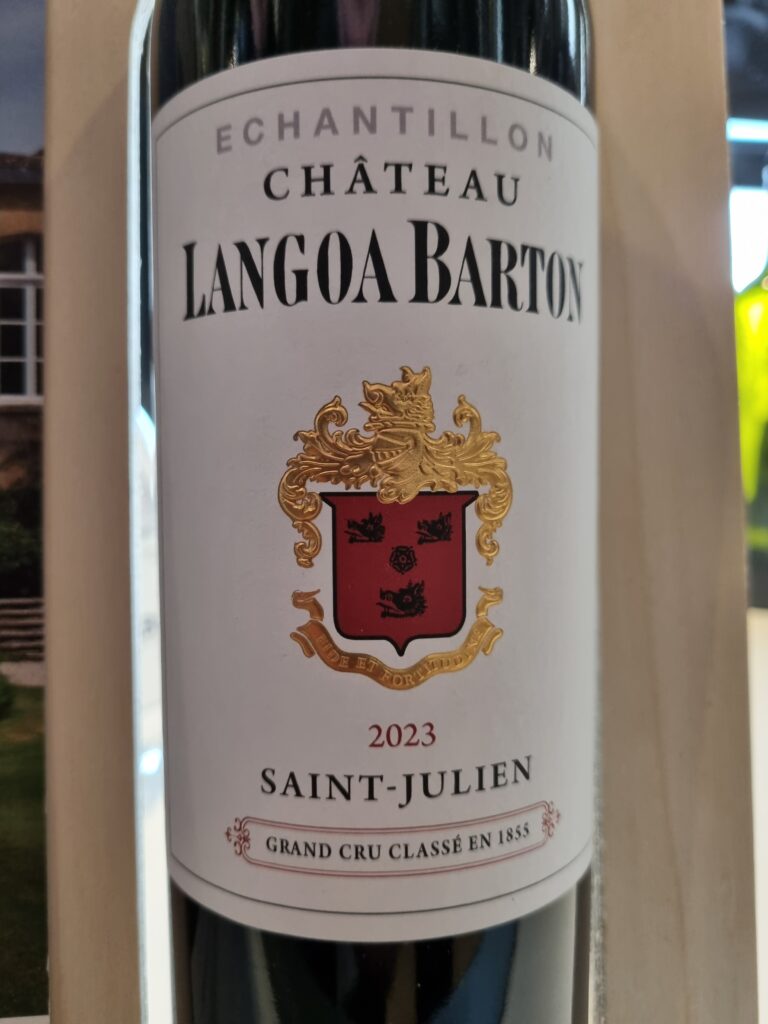
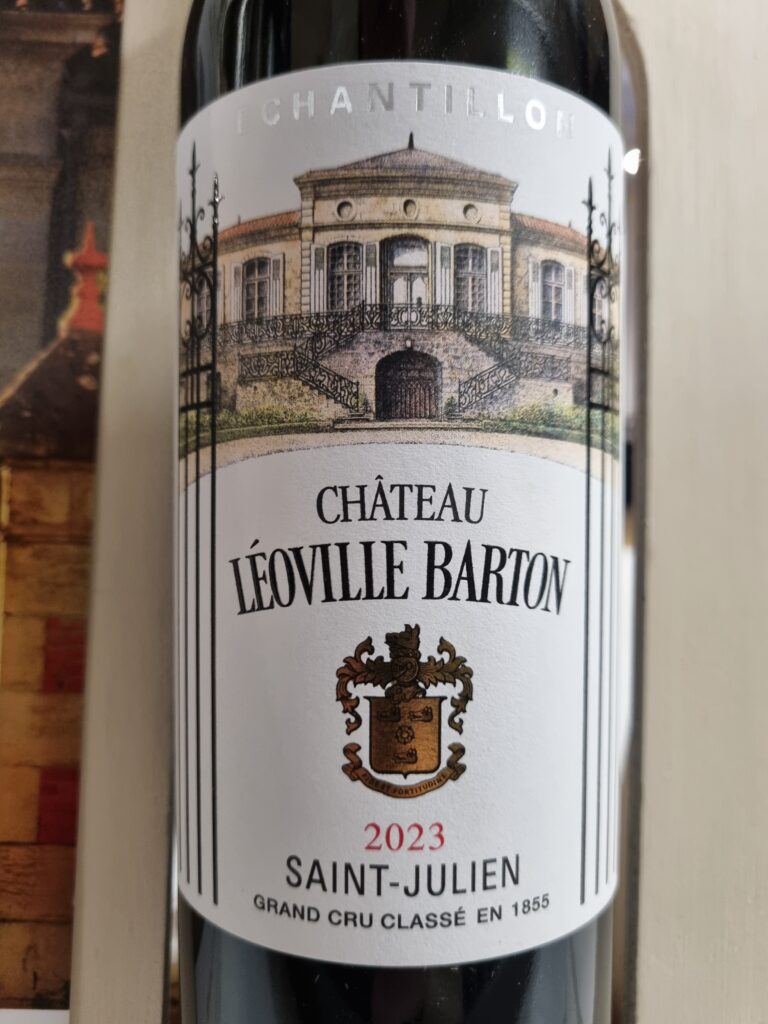
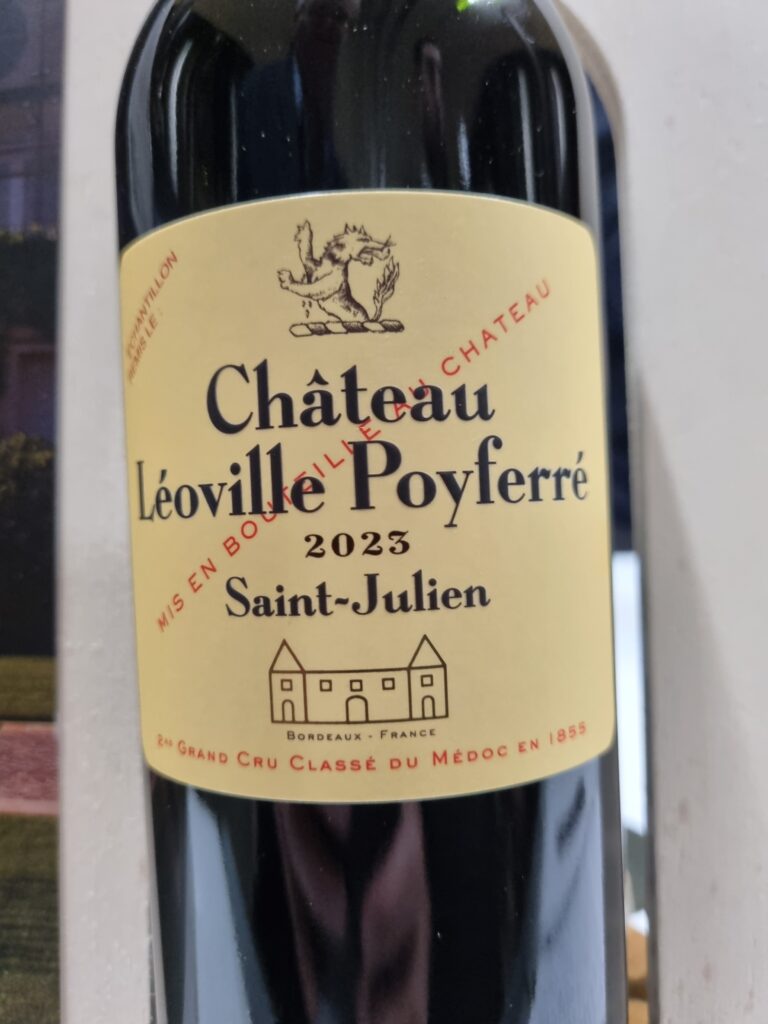
Langoa Barton*** – ***1/2
N: Sweet fruit, but slightly green and with some coffee nuances. Focused but not assertive.
P: Good structure and fruit, even if on the thin side. Elegant and light, but also solid. Great aftertaste.
Léoville Barton***1/2
N: Great Cabernet fruit and spiciness.
P: Svelte and develops beautifully on the palate. Dynamic with great acidity, as well as superb texture and length. A classic wine whose only shortcoming is not to have the length of great years.
Léoville Poyferré***1/2
N: Open and with a perfumed (cosmetic) quality. Feminine and seductive.
P: Rich and round. Tremendously fruity with a restrained, measured aftertaste. Medium body. Refreshing and very drinkable. Ideal for mid-term ageing.
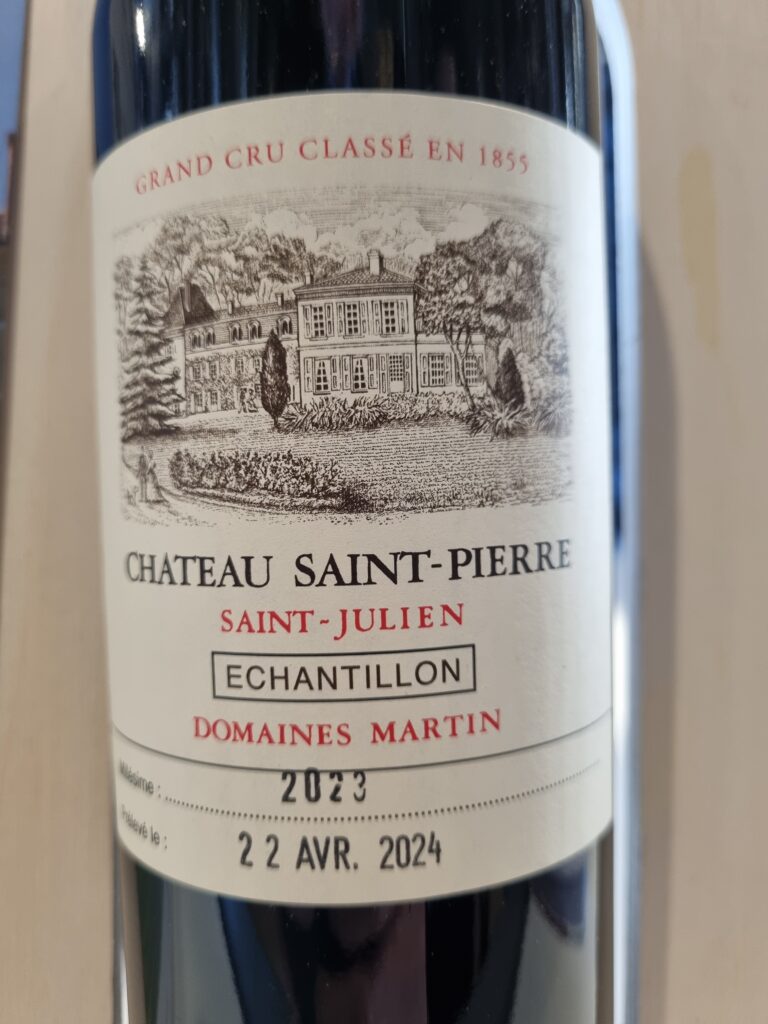
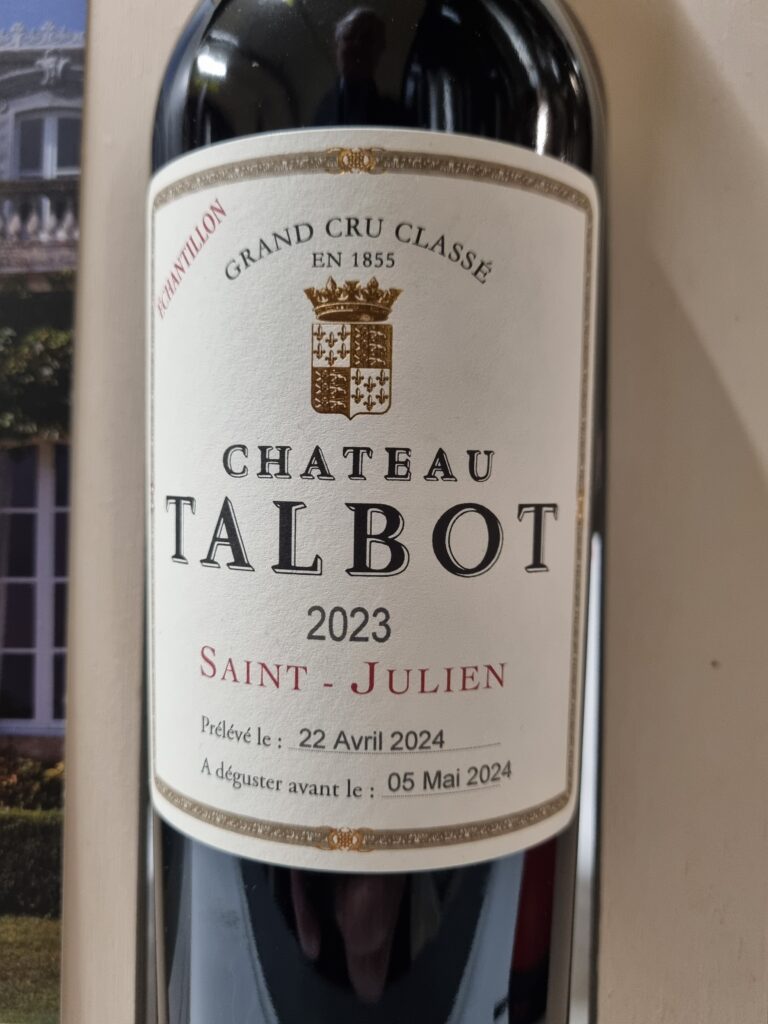
Saint Pierre***
N: Upfront, but not very subtle fruit.
P: Tightly wound and exuberant with good tannic texture. The aftertaste is not long, but this is a wine for Cabernet lovers with heaps of fruit that will deliver even when young. Too much oak at present, however this will surely integrate over time.
Talbot***
N: Fresh roasted aromas indicative of heavy toast on barrels. There is sweet fruit though to back this up, and even some truffle nuances.
P: The oak comes through even more strongly on the palate, where it dominates black fruit flavors. This overreach is probably temporary and the wine deserves retasting down the line.
PAUILLAC & SAINT ESTEPHE
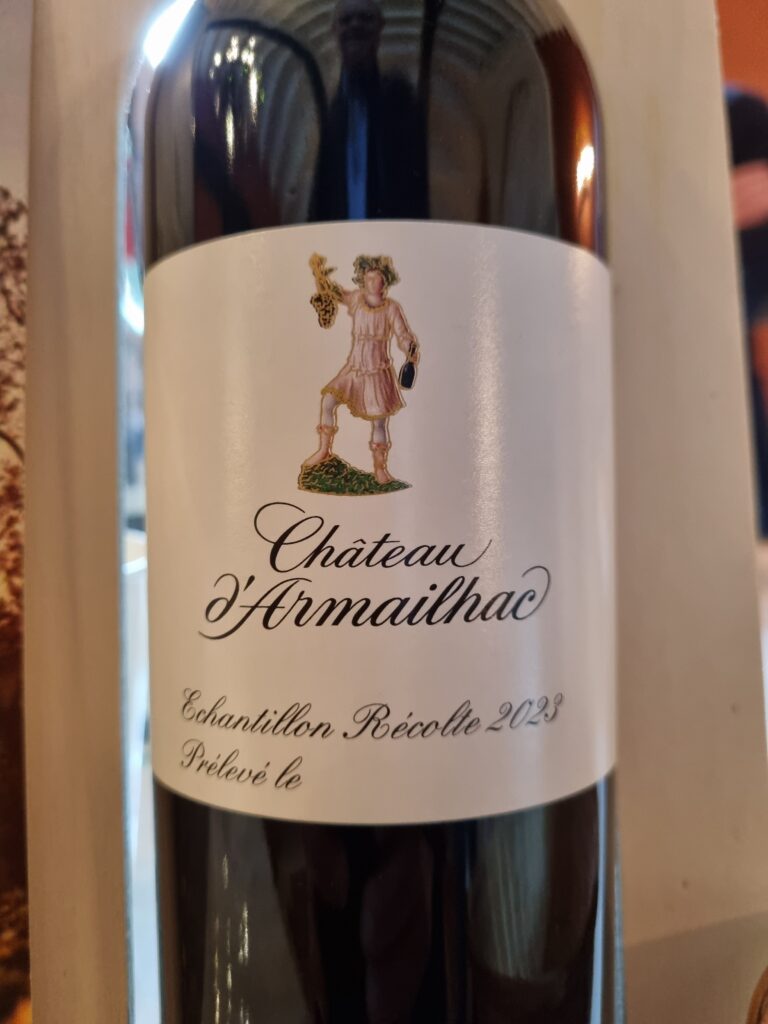
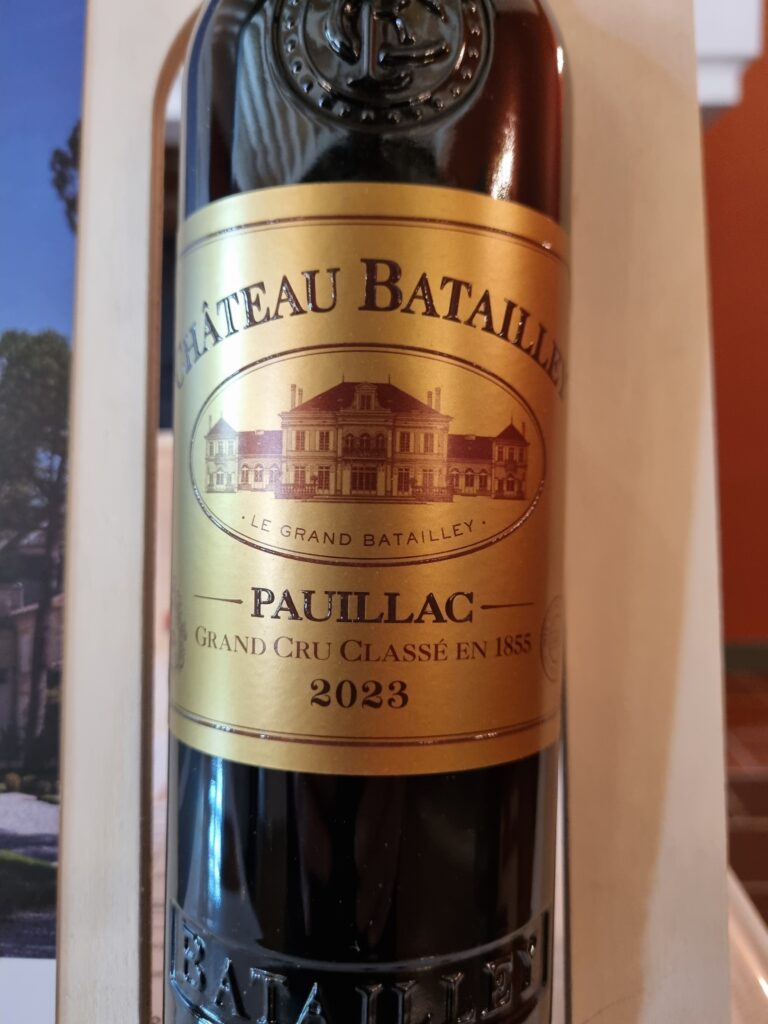
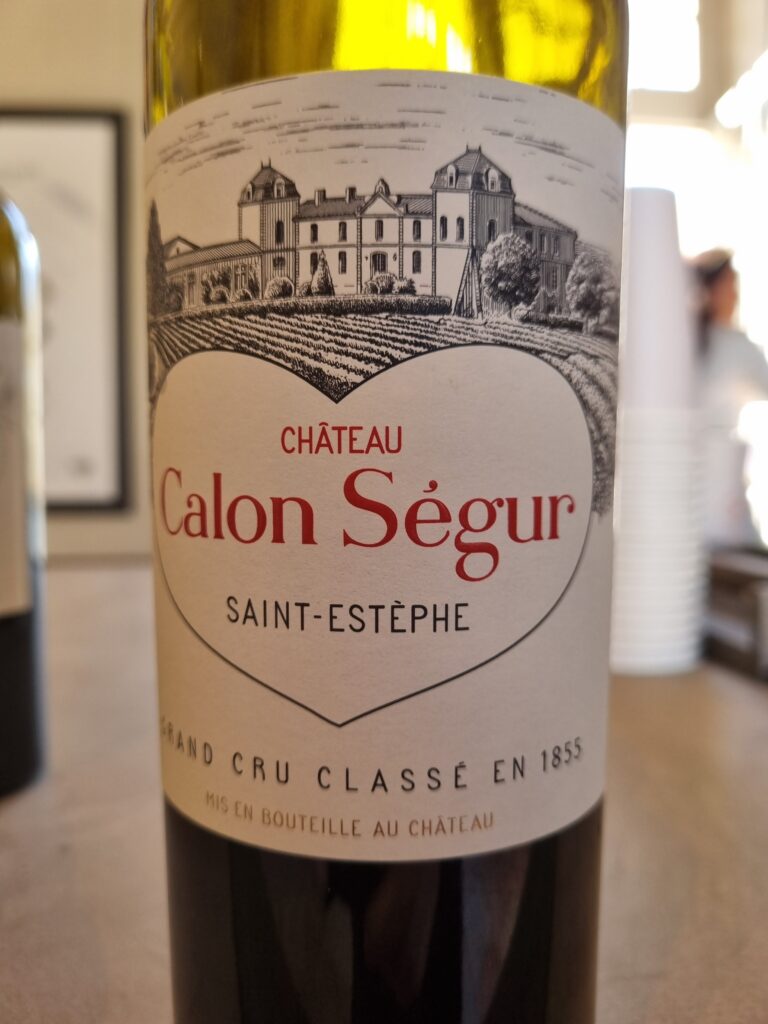
Armailhac***
N: Deep characterful nose. Good toasty oak to match the fragrant berry fruit and floral notes.
P: Not quite so endearing on the palate, but full-bodied and spreads out with red candied fruit flavors. Impression of softness and then tannin. Mineral rather than dry finish. May deserve an upgrade over time.
Batailley***
N: Cassis leaves and some alcohol.
P: Very rich and ripe with great tannic texture on the finish. Big and powerful, but less finesse than other Pauillacs in this vintage. Fine-grained tannin on the sweet finish. One of the better fifth growths in the appellation, but not top of the list this year.
Calon Ségur***1/2
N: Deep wildberry nose redolent of ripe Cabernet along with some fruit blossom aromas.
P: Waves of flavor. Compact with archetypal and very good Médoc tannin. Leather and iron notes. The development on the palate is, however, not the smoothest, despite this being a good wine.
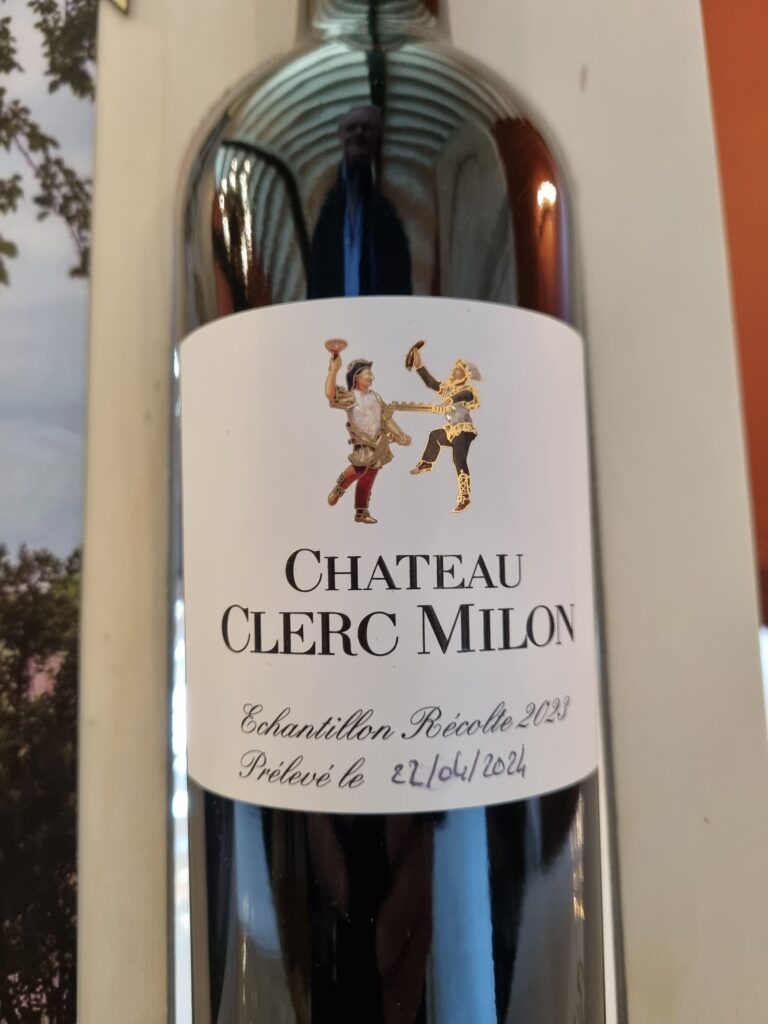
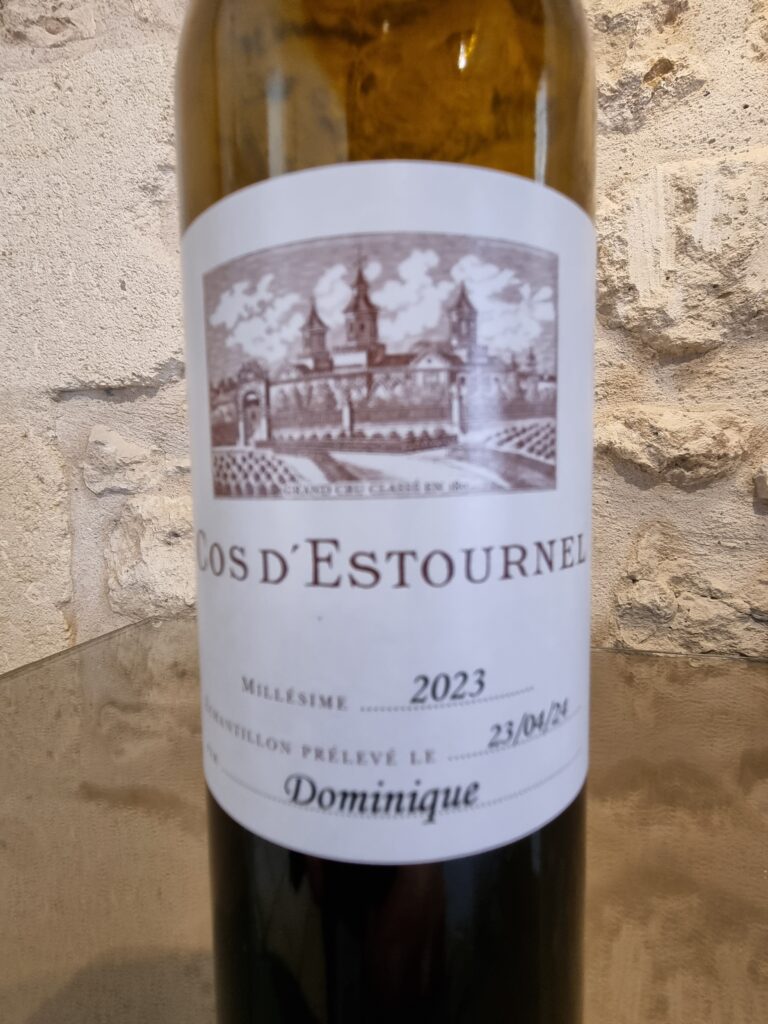
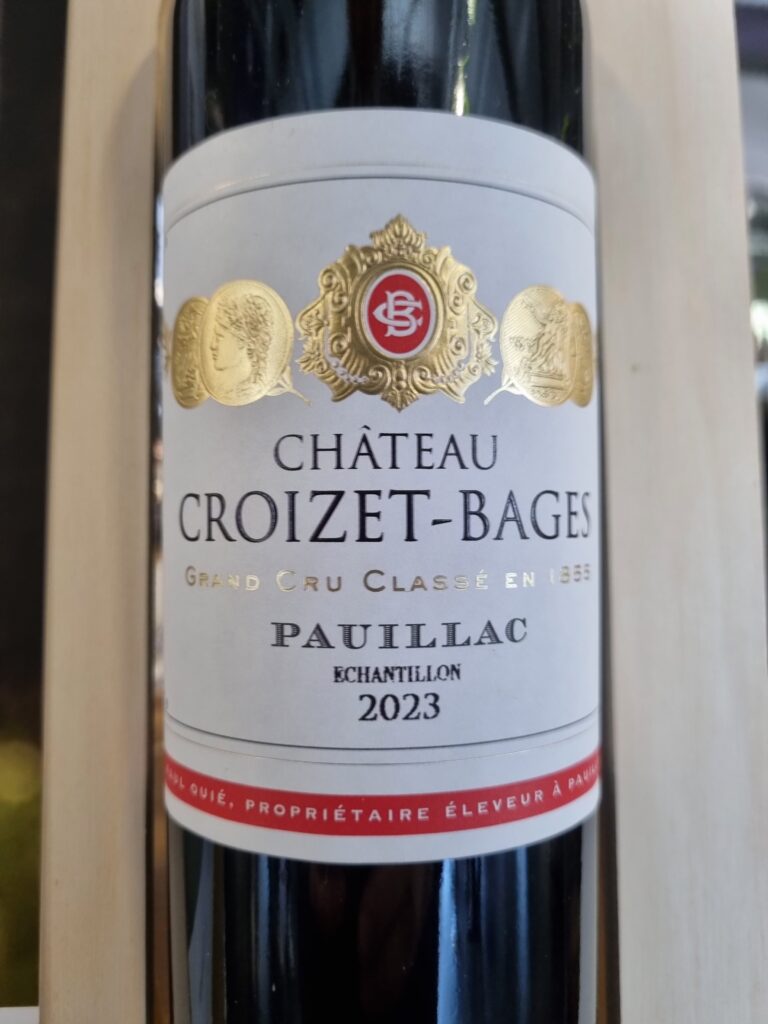
Clerc Milon***1/2
N: Very classy, pure, seductive nose with the inevitable Pauillac hallmarks (graphite, cigar box) as well as pure, understated fruit.
P: As big and round as d’Armailhac, but with more acidity and, especially, length. Tastes like a varietal Cabernet Sauvignon. Luscious.
Cos Labory **1/2 (label not shown)
N: Subdued dark fruit with noticeable presence of alcohol.
P: Tannin here is decidedly tough and it is a moot point whether age will round it out. I have no doubt that the change in ownership (acquisition by Reybier of Cos d’Estournel just across the road) will alter this chateau’s taste profile for the better in the near future.
Cos d’Estournel***1/2 – ****
N: Closed and uncommunicative at this time.
P: Ah, much more expressive on the palate! Bright candied red and black fruit flavors with wonderfully-textured tannin. Plush. Starts out chunky then shows considerable elegance with that great tannin.
Croizet Bages**
N: Upfront fruit and oak without good definition.
P: Lively, with a little gas, and then thirst quenching until the aftertaste, which is disappointingly hard in light of the overall flavor profile. Relatively uninteresting and the finish is off-putting.
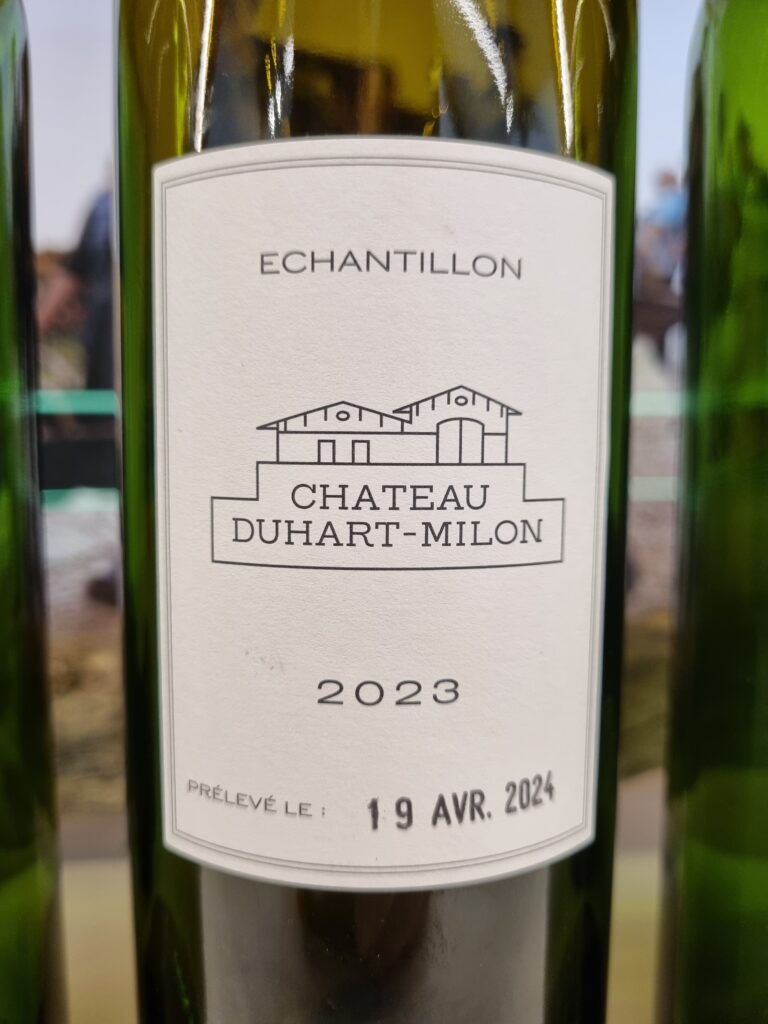
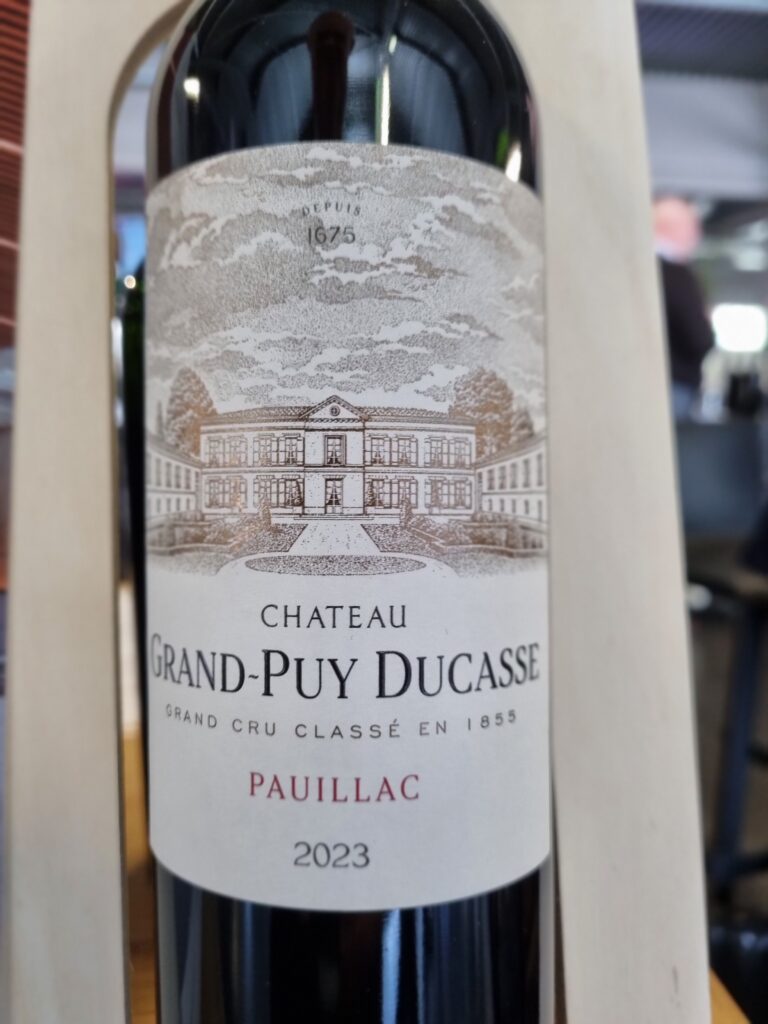
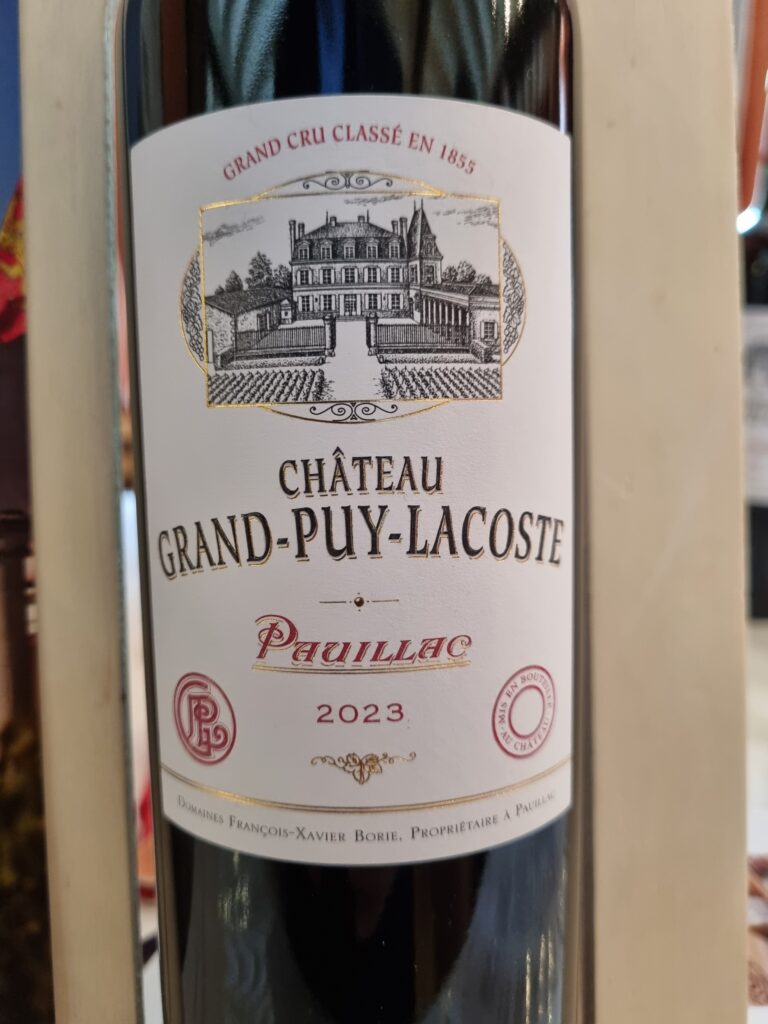
Duhart Milon***1/2
N: Chalky nose with sweet fruit starting to blossom.
P: Big mouth feel, aromatic, and unctuous although not big-framed. Black fruit flavors as expressed only in the Médoc. Elegant and seems more simplistic than it really is. Fine violet nuances like it’s older brother, Lafite, with velvety tannin to boot. Interesting that this should always be put before les Carruades in the line-up at the château.
Grand Puy Ducasse** to **1/2
N: Toasty oak and roast coffee aromas presently overshadow sweet blackcurrent fruitiness, although not by a great deal
P: Starts out round, but dips rather precipitously into marked acidity and rough tannin.
Grand Puy Lacoste***
N: Bright fruit and some alcohol.
P: Trademark fine-grained tannin, but not a stellar showing for the estate. Soft into velvet tannin and long aftertaste nevertheless. Probably needs revisiting to be re-evaluated.
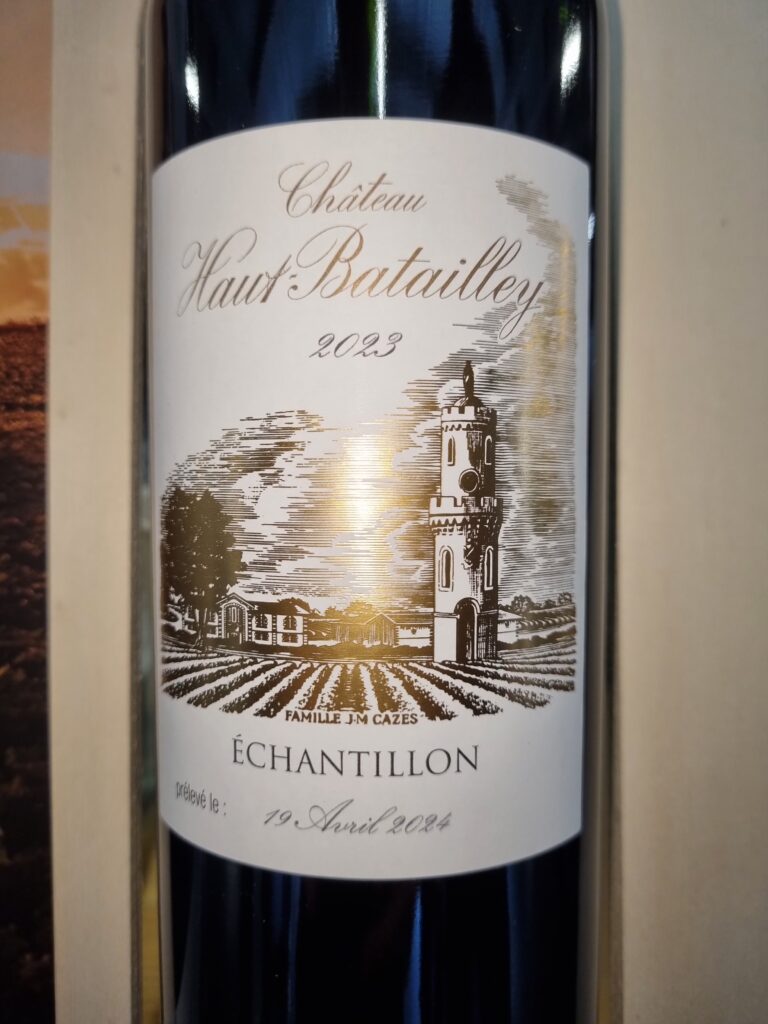
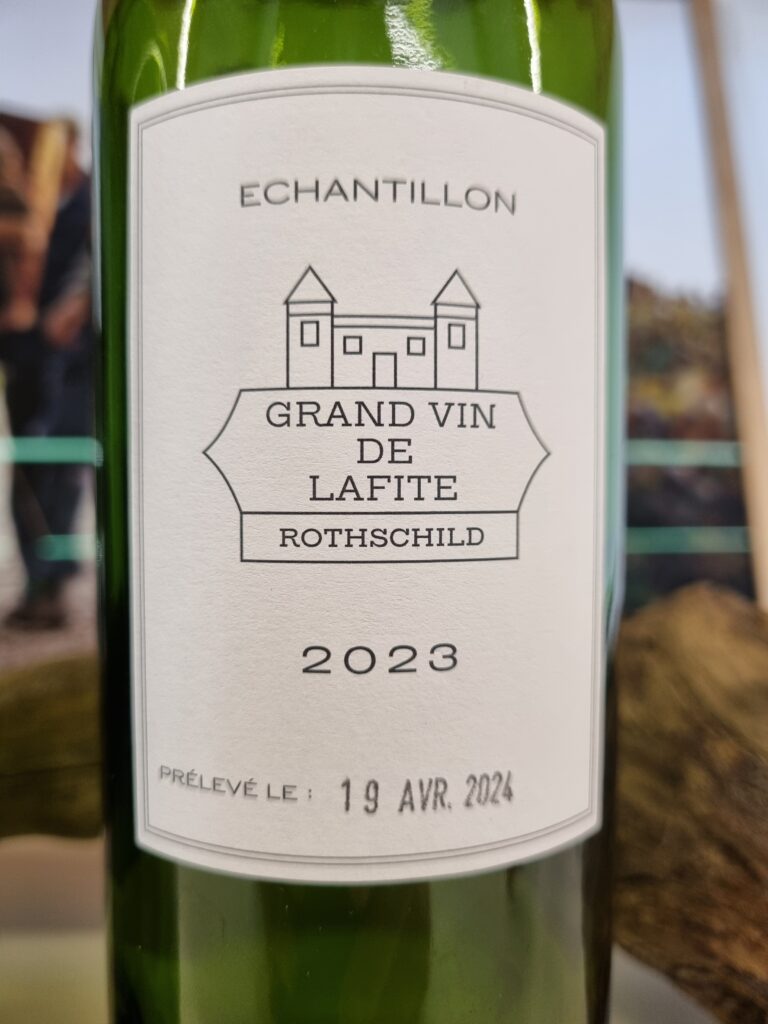
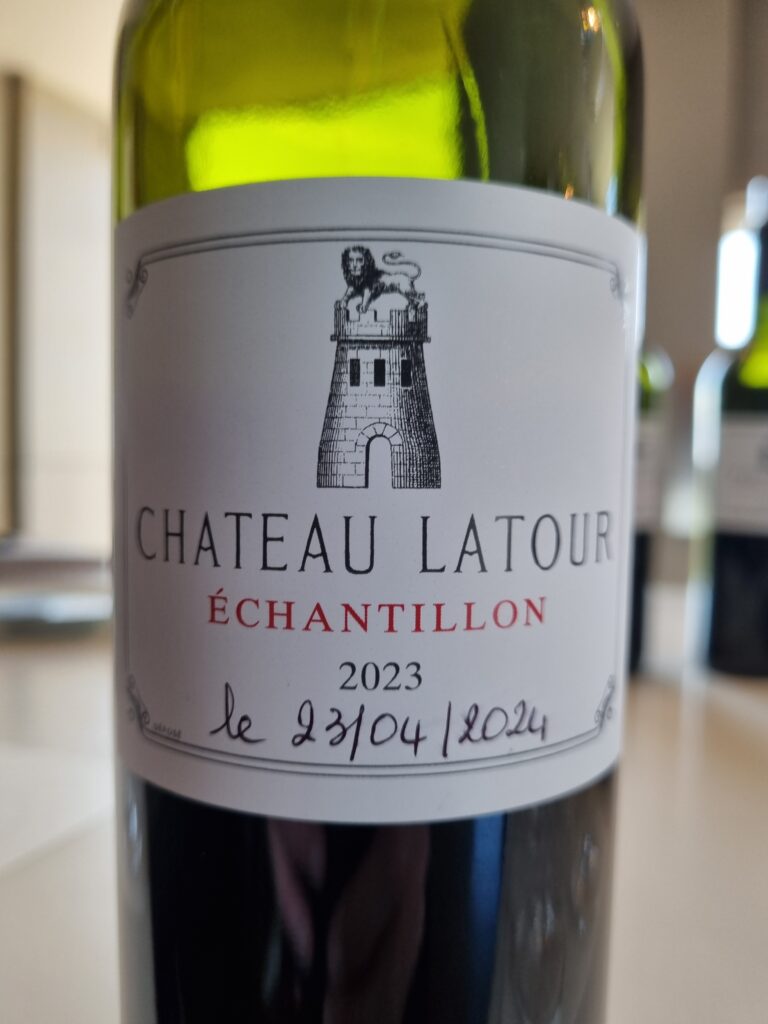
Haut Batailley***1/2
N: Appealing classic nose of ripe blackberry.
P: Good tension, albeit relatively short. Very well-made with good acidity. Spreads out on the palate. Seems like there’s a family resemblance with Lynch Bages. Chewy with waves of “sweet” blackcurrant. Very good. Haut Batailly is on the rise!
Lafite Rothschild****1/2
N: Unmistakable wonderful floral aromas (especially violet) unique to this great wine. Some graphite nuances. Ultimate refinement.
P: Graceful, pure, aristocratic, resonant, and well-structured with a seamless development on the palate. The tannin seems harsher than usual for Lafite, but this may be a misleading impression. Slick texture on the aftertaste and the spring flower aromatics follow through from the nose.
Latour**** – ****1/2
N: Understated blackcurrant nose along with lead, peony, and iris nuances.
P: Unabashedly showing fine acidity with inimitable velvety tannins that grip with tenderness. Medium body. Seems a middling vintage for Latour. Elegant more than powerful. Black cherry and cassis flavors and, of course – noblesse oblige – a very long aftertaste.
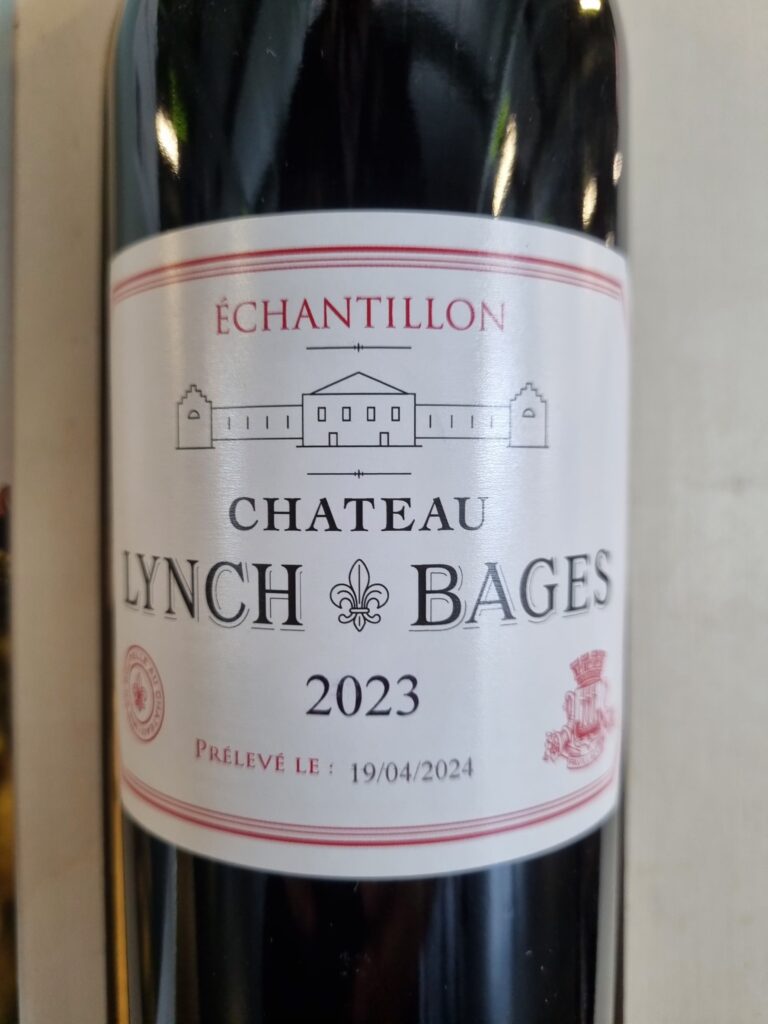
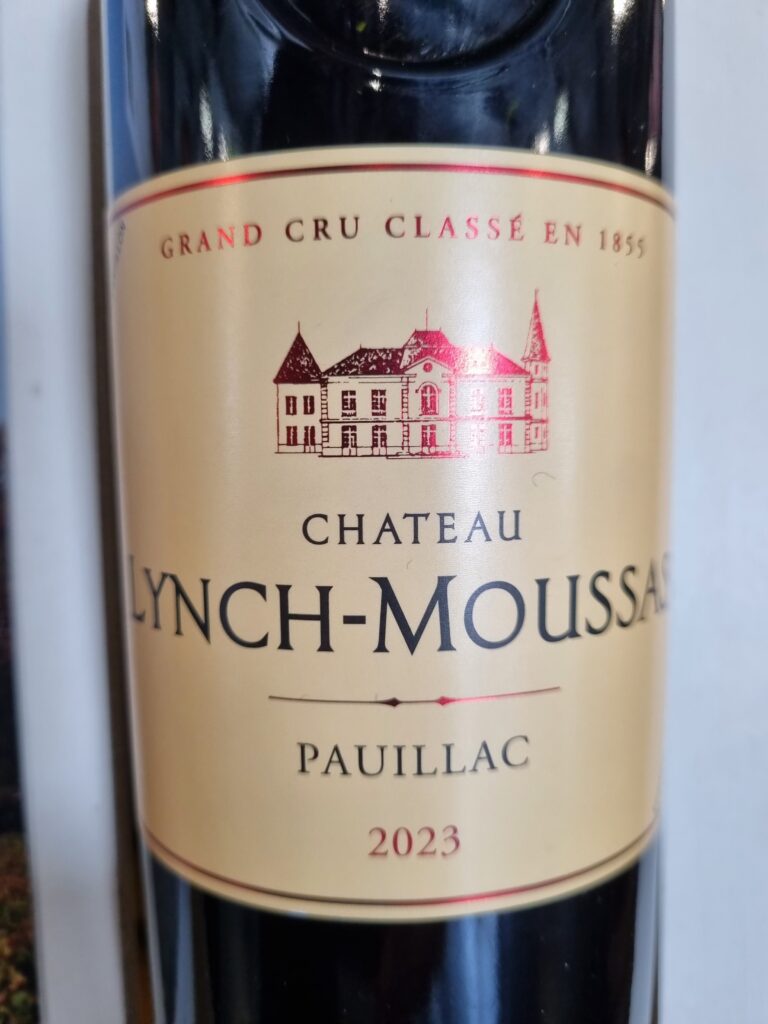
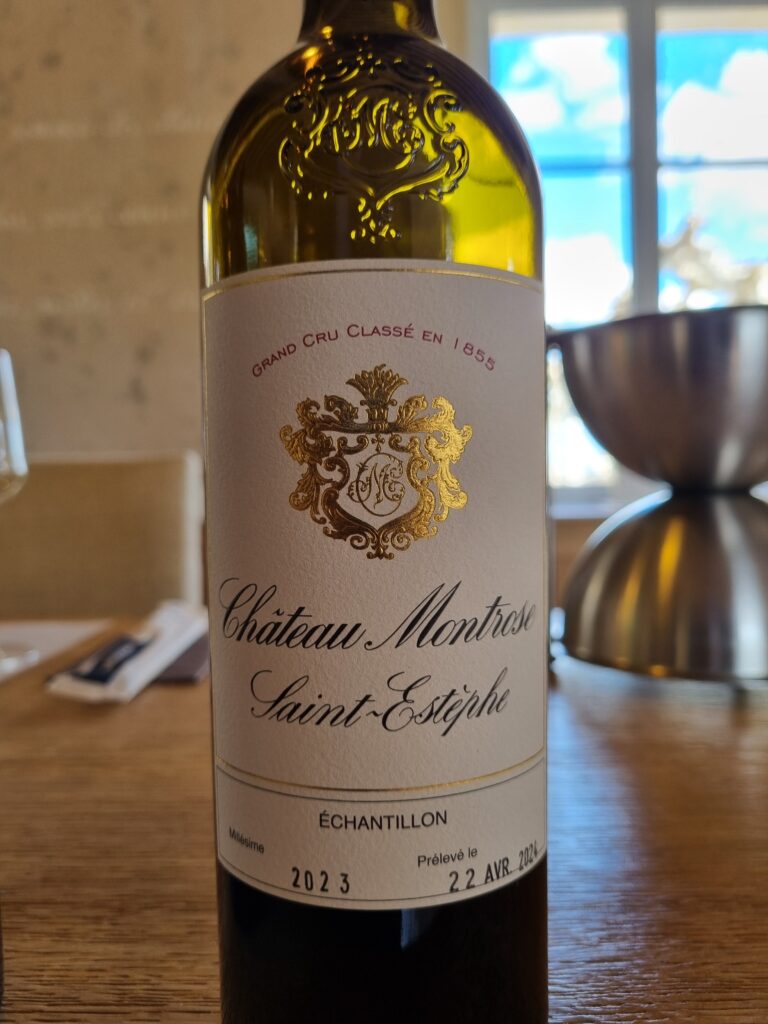
Lynch Bages***1/2
N: Cool, enticing nose of tobacco, toasty oak and, of course, blackcurrant,
P: Melts in the mouth and then has good Pauillac tannin on the aftertaste. This is not a great vintage for Lynch Bages, but it is well-made and in the much-loved style of the château. Blackcurrant rules here and the finish is, in any event, long.
Lynch Moussas***
N: Inky, mysterious, and brooding. Fresh, with blackcurrant leaf aromas.
P: Soft and well-structured, going into a fairly oaky aftertaste, but that fits into the framework. Seems on the light side at first, but the seriousness shows through on the delicious finish which has a fine texture.
Montrose****1/2
N: Lovely, open blend of fruity and vanilla aromas. Sophisticated and very appealing.
P: Cherry-vanilla with tannins of the highest order. Cashmere. Very long sensual aftertaste that unfolds by degrees. Delightful.
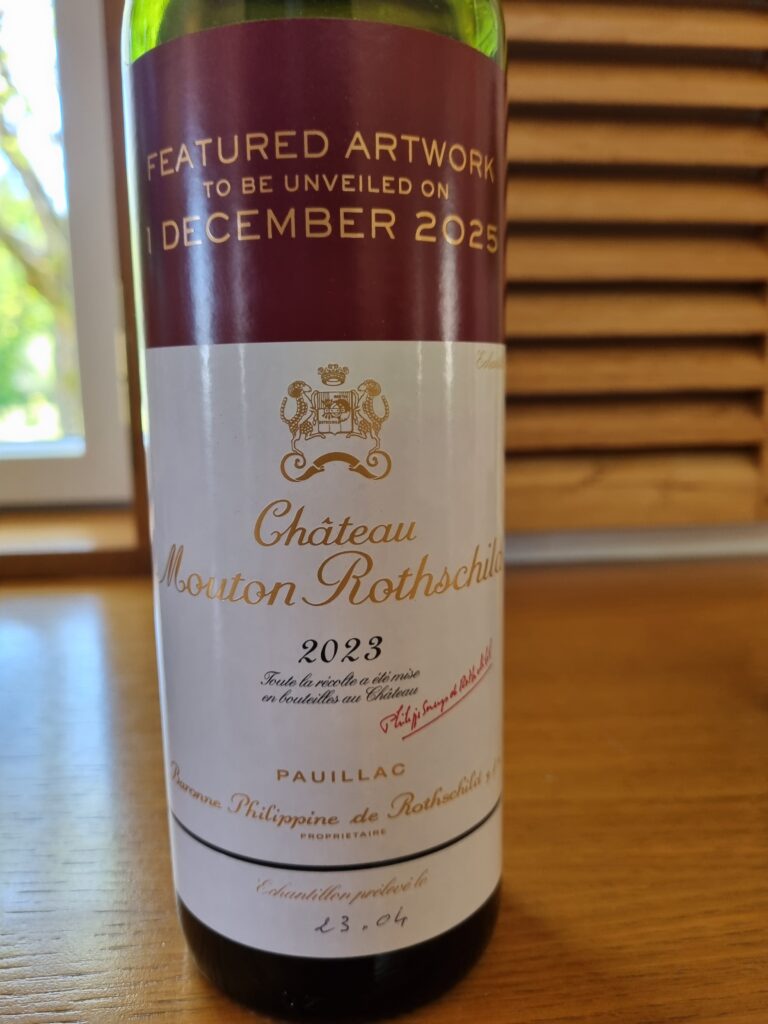
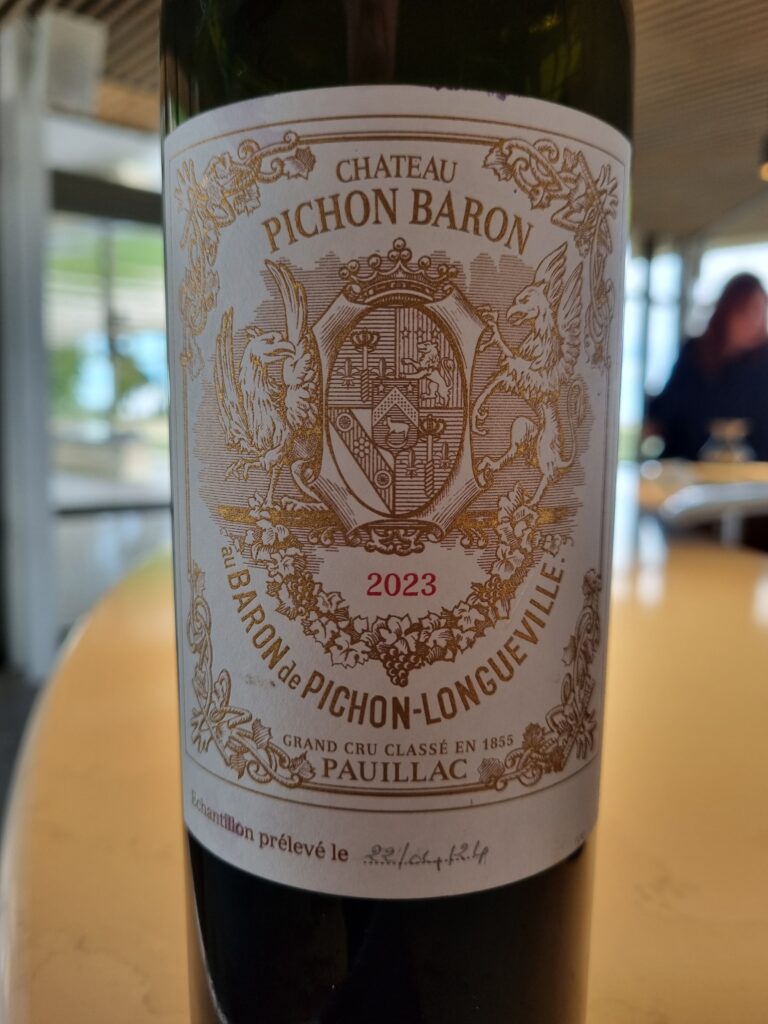
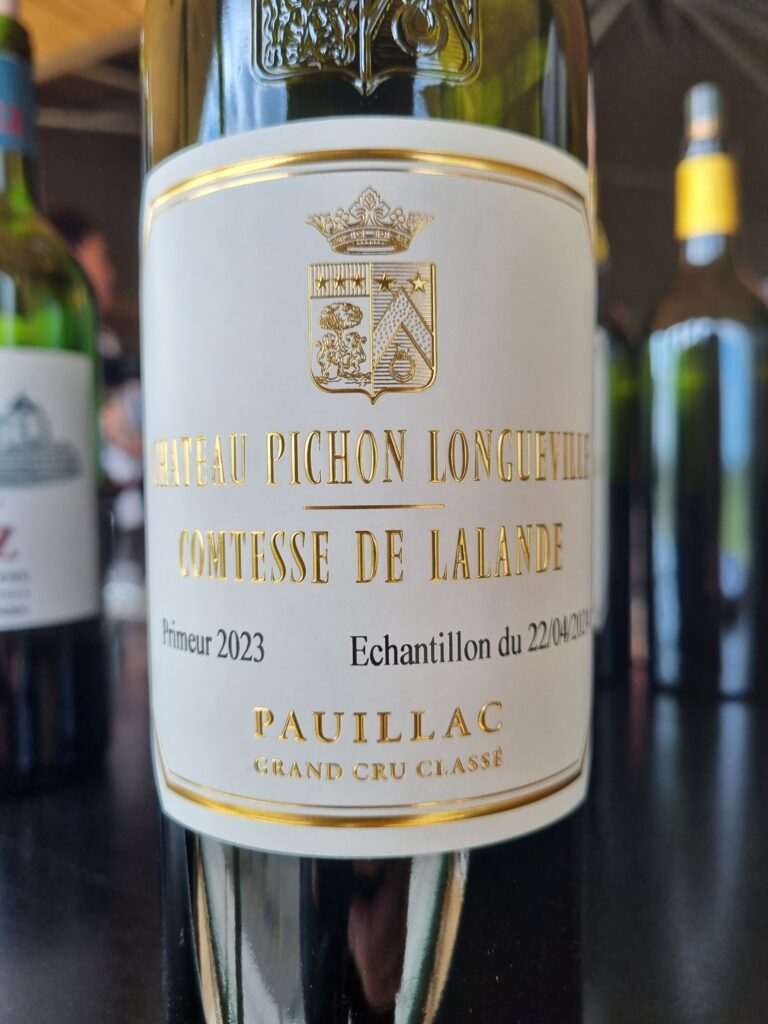
Mouton Rothschild****1/2
N: Utterly sweet and pure with some “old library” nuances.
P: Chunky, meaty, and big while also showing great refinement. That tannin just doesn’t let go, but it’s hold is loving. Coats the teeth and the entire mouth. Typical flavors of blackberry and cassis with incredible freshness. One for the long haul. Super-long aftertaste with some black olive nuances.
Phélan Ségur*** (label not shown)
N: Dense and mysterious.
P: Bright fruit with fine-grained tannin which nevertheless comes across as too dry at the present time. I’ve been more enthusiastic about other recent vintages of Phélan Ségur, which have held their own with classified growths, so I’m a little disappointed and need to retaste this down the road.
Pichon Baron****
N: Fresh, pure, and soft aromas typical of Pauillac (graphite). Restrained oak. Very promising.
P: Tight structure and bursting with flavor. Tobacco and lead overtones as well as humus/forest floor nuances. Superb texture. Classic.
Pichon Comtesse****
N: Subtle coffee aromas complemented by black fruit, especially ethereal blackcurrant.
P: Mouthfilling with fresh acidity and velvety fine-grained tannin. Round attack expanding into a smooth, slightly creamy aftertaste. Great Cabernet fruit and unique tannin. The antithesis of a Napa Cab.
